


Books in series

Astounding Stories of Super-Science, March 1930
1930

Astounding Stories Of Super Science April 1930
2009

Astounding Stories of Super-Science, Volume 5
1930

Astounding Stories of Super-Science, July 1930
1930

Astounding Stories of Super-Science, Volume 8
1930

Astounding Stories of Super-Science, September 1930
1930

Astounding Stories of Super-Science, October 1930
1930

Astounding Stories of Super-Science
1930

Astounding Stories of Super-Science, December 1930
1930
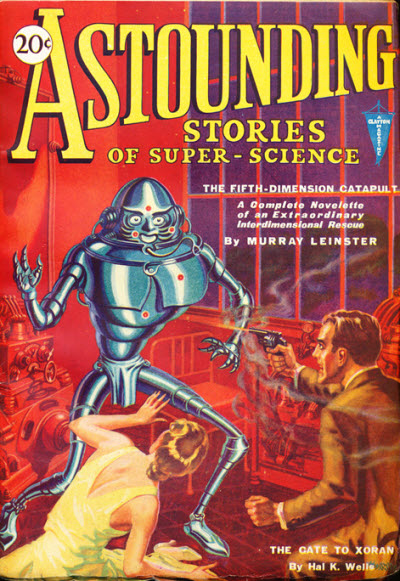
Astounding Stories of Super-Science, January 1931
Booktrack Edition
1931
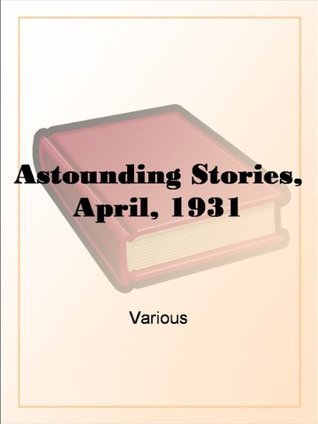
Astounding Stories, April 1931
1931
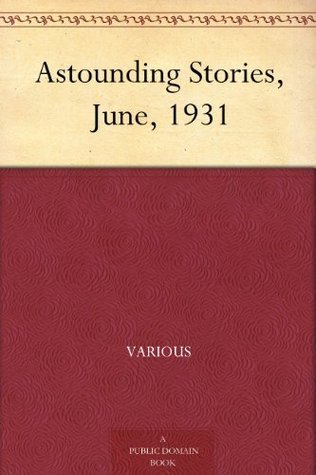
Astounding Stories, June 1931
1931
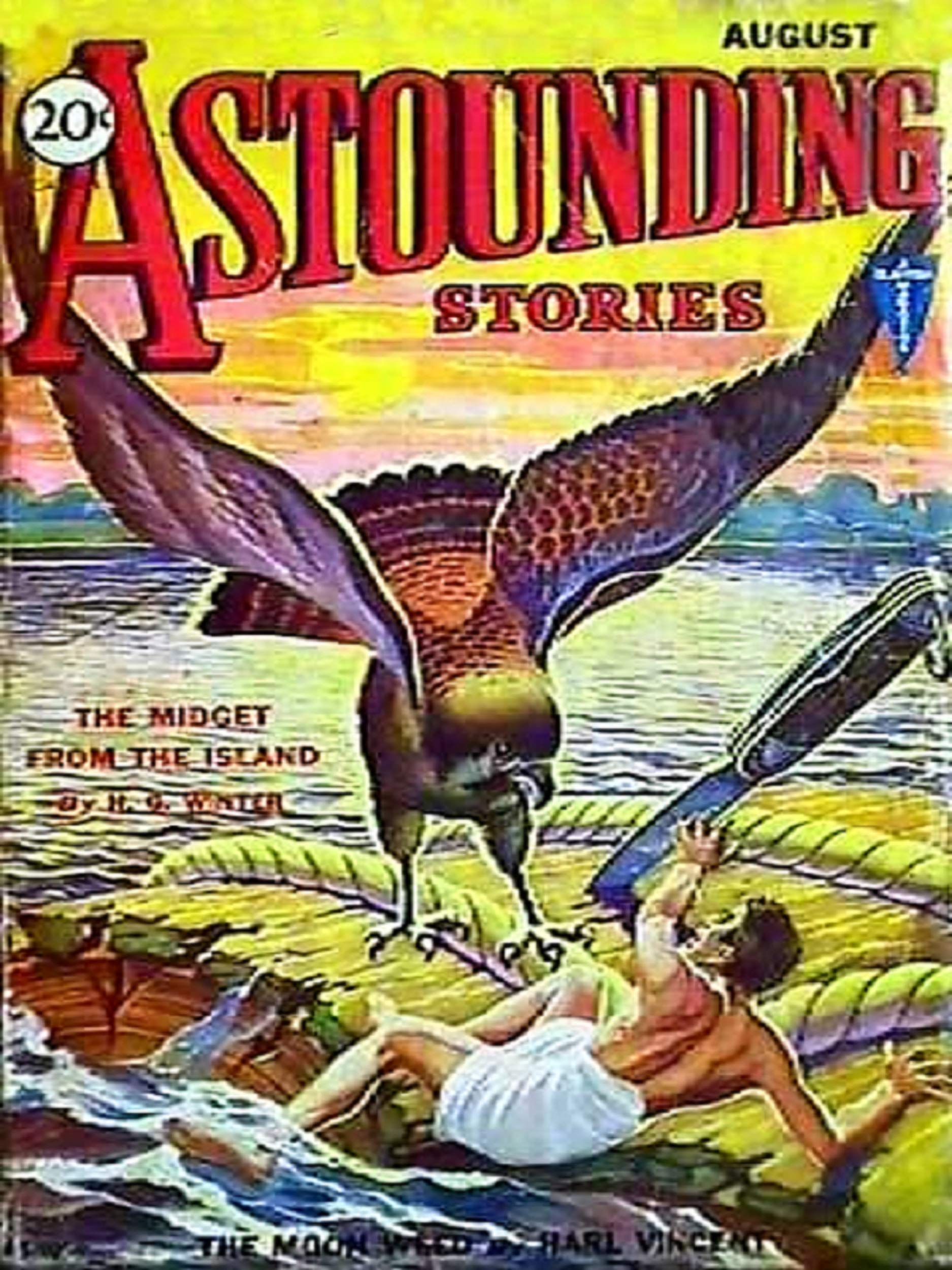
Astounding Stories, August 1931
1931
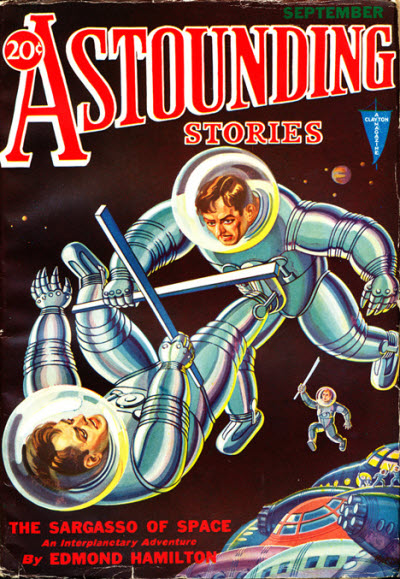
Astounding Stories, September 1931
1931
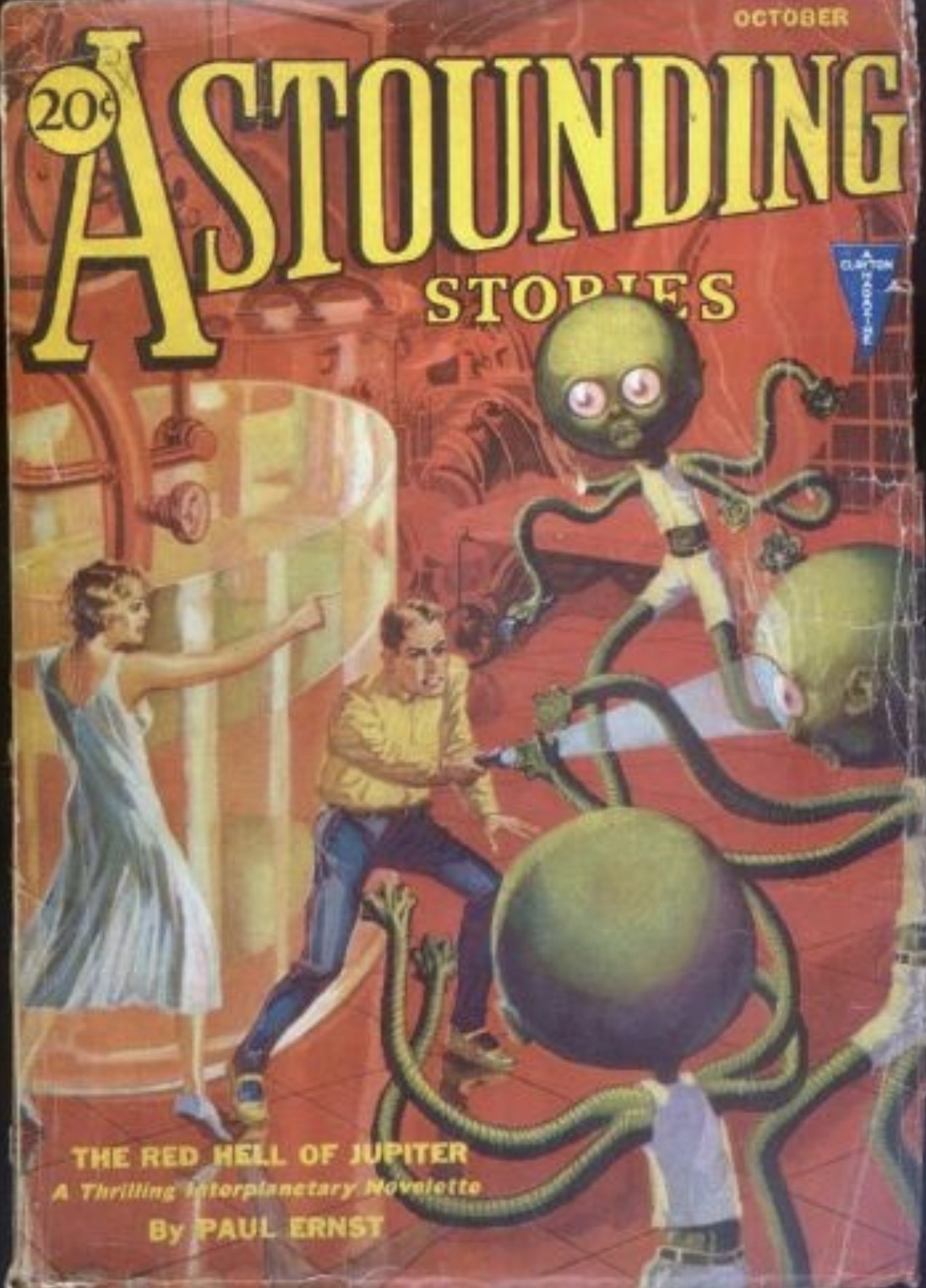
Astounding Stories, October 1931
1931
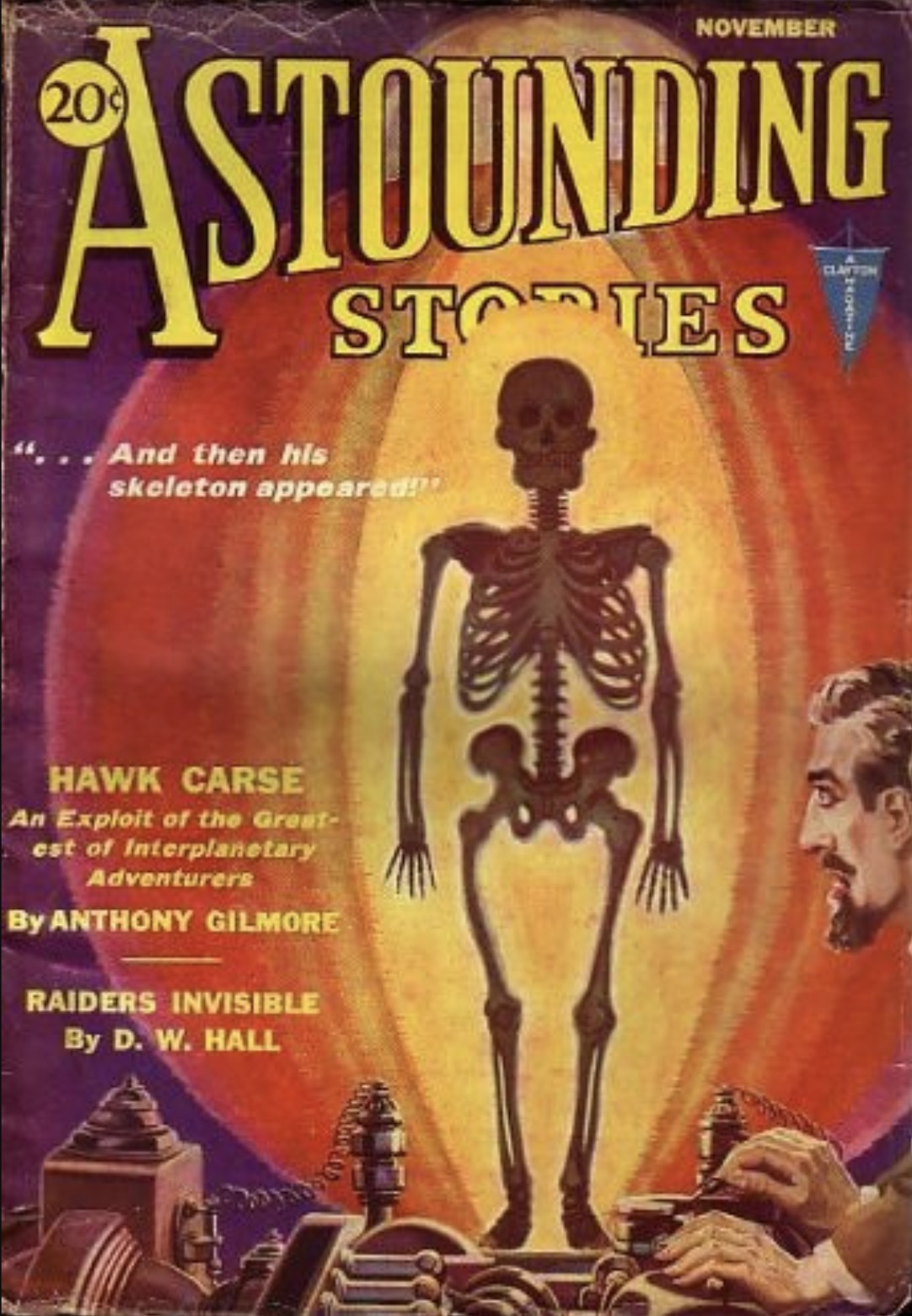
Astounding Stories, November 1931
1931
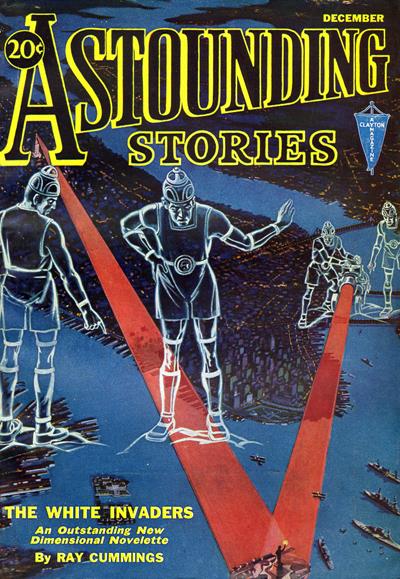
Astounding Stories, December 1931
1931
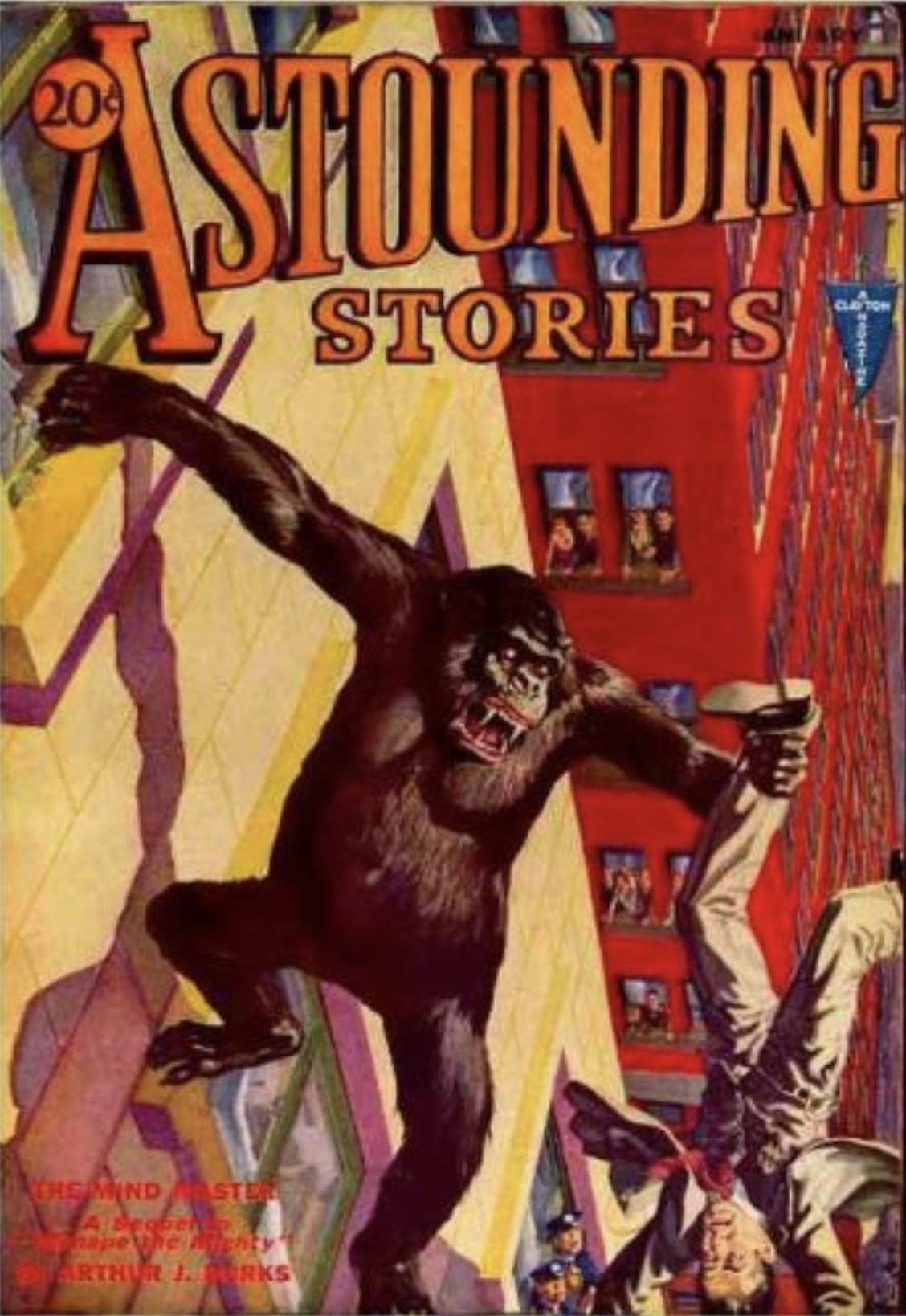
Astounding Stories, January 1932
1932
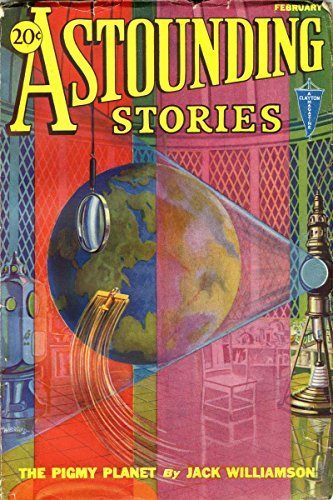
Astounding Stories, February 1932
1932
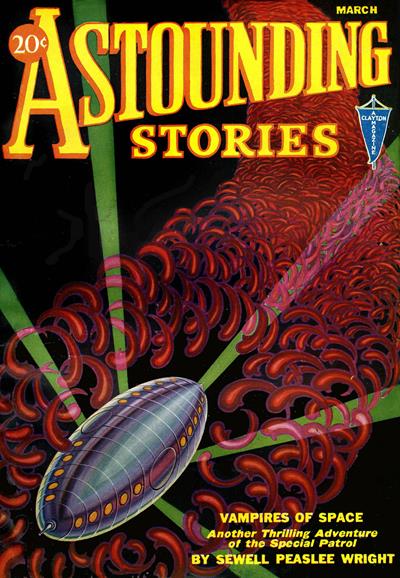
Astounding Stories, March 1932
1932
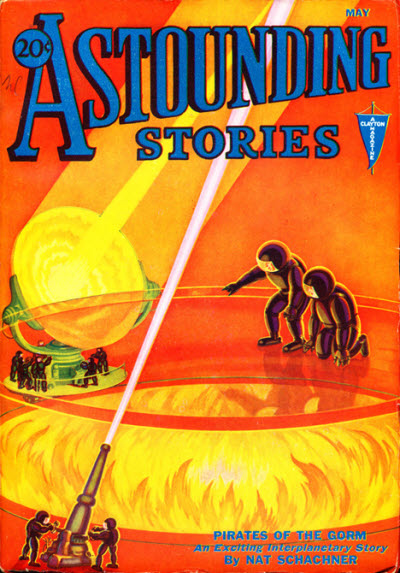
Astounding Stories, May 1932
1932
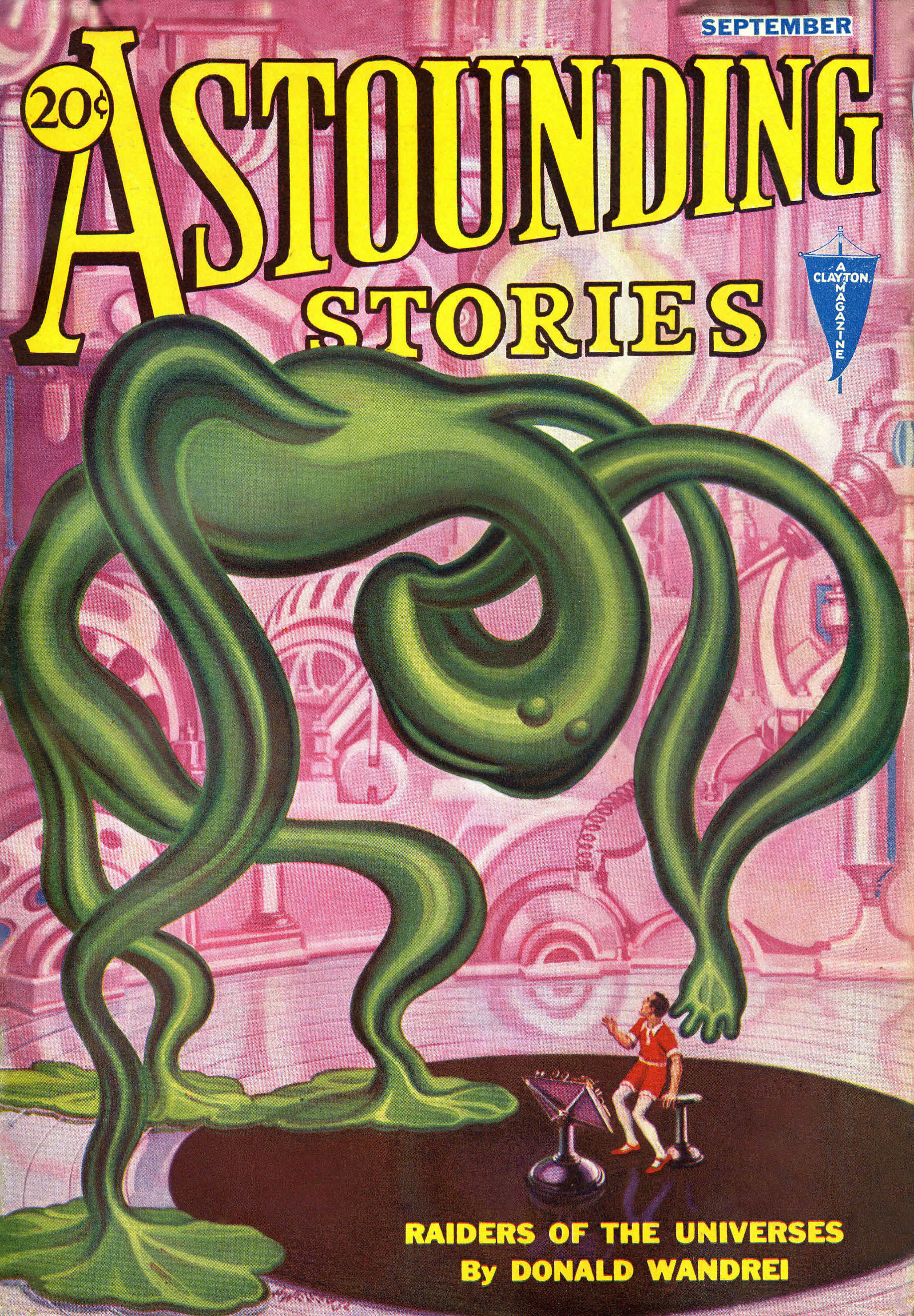
Astounding Stories, September 1932
1932
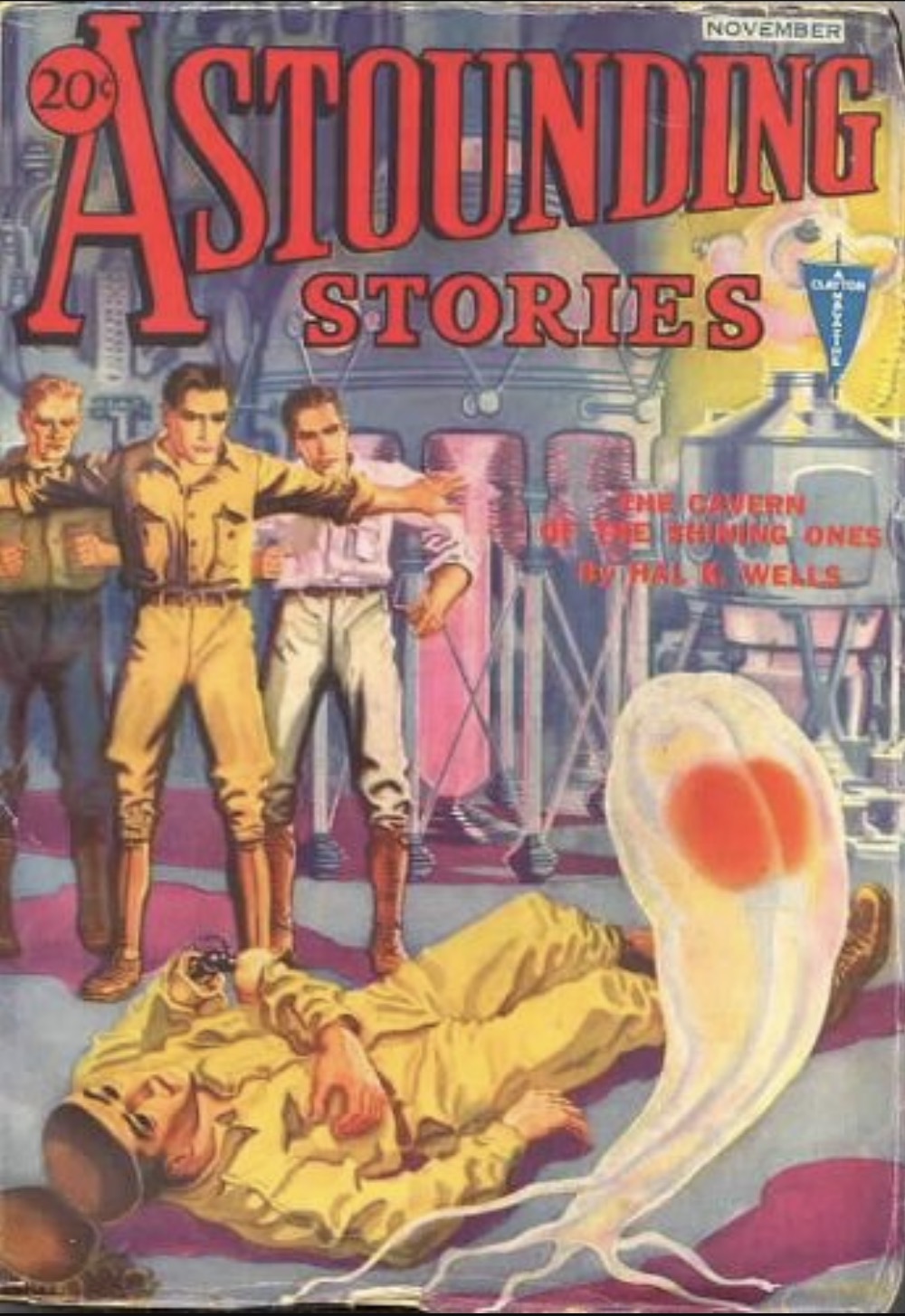
Astounding Stories, November 1932
1932
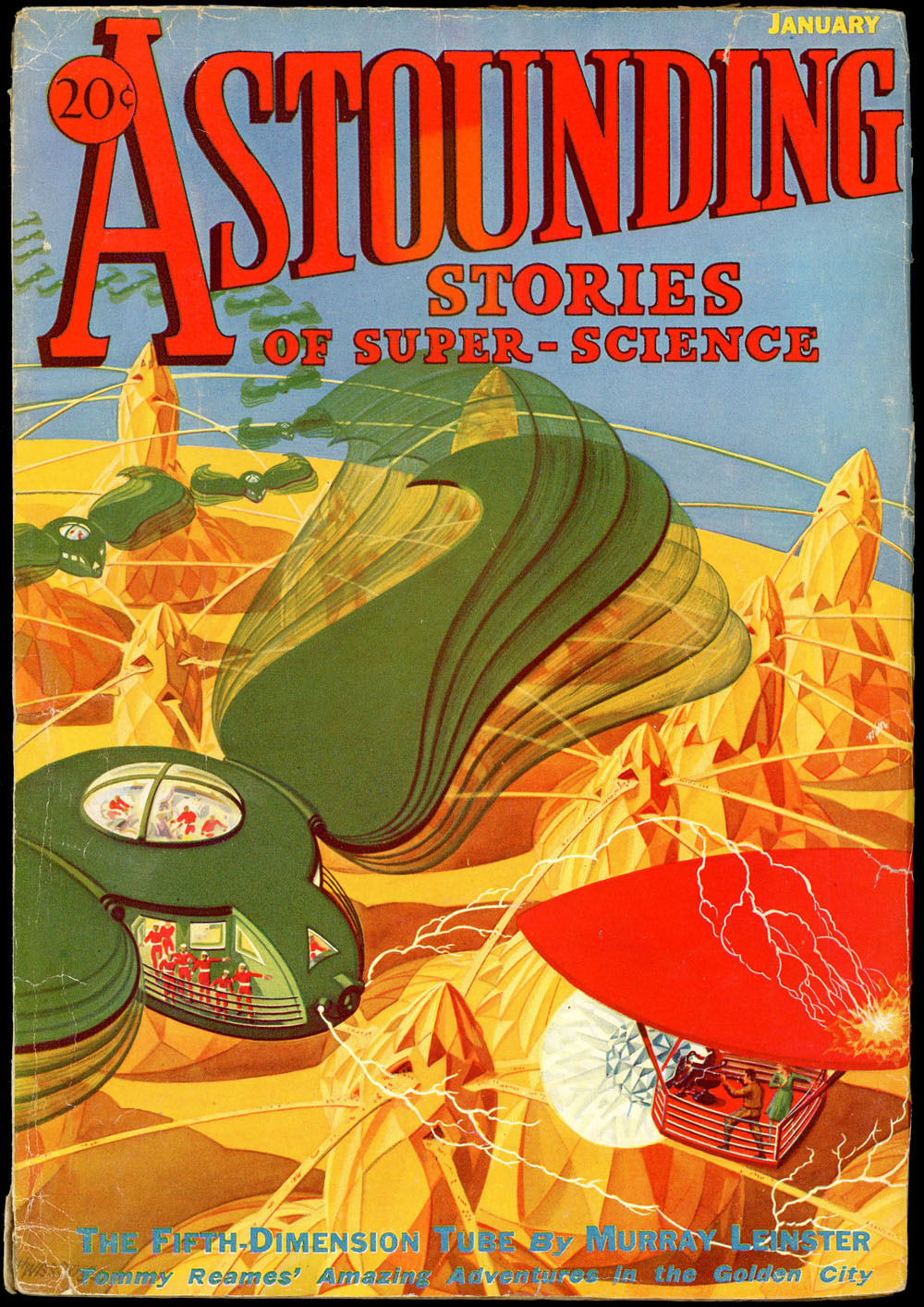
Astounding Stories of Super-Science, January 1933
1933
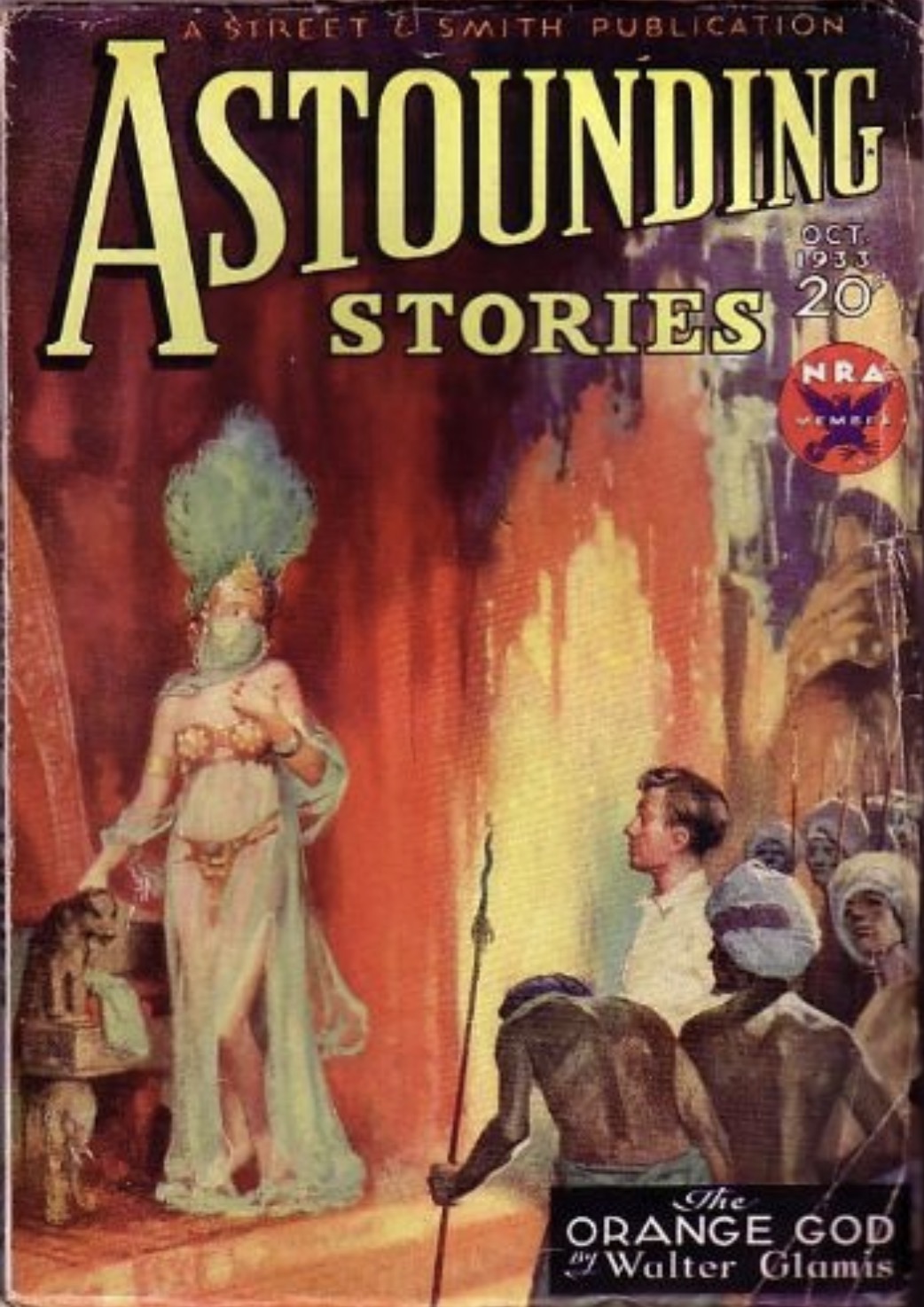
Astounding Stories, October 1933
1933
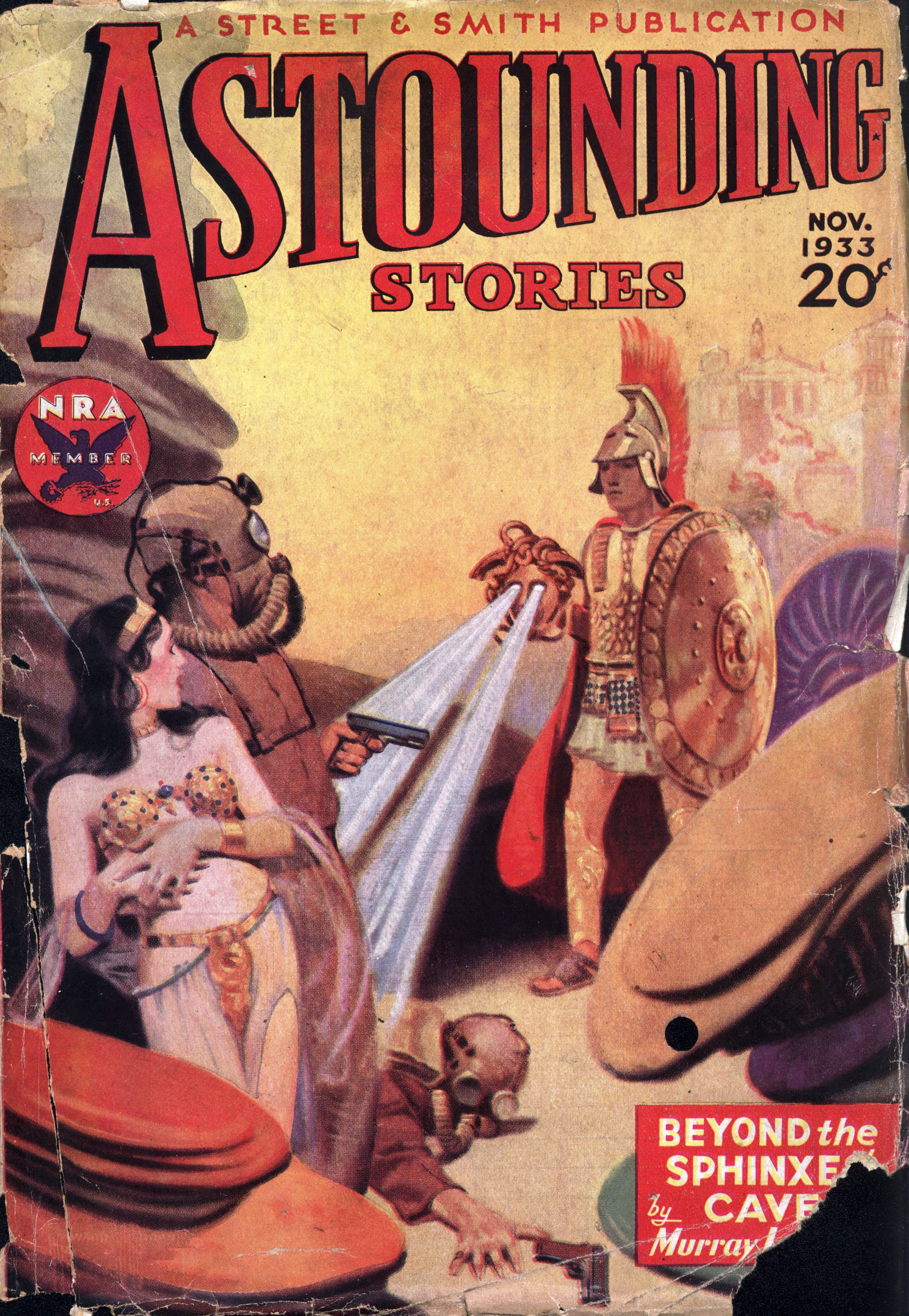
Astounding Stories, November 1933
1933
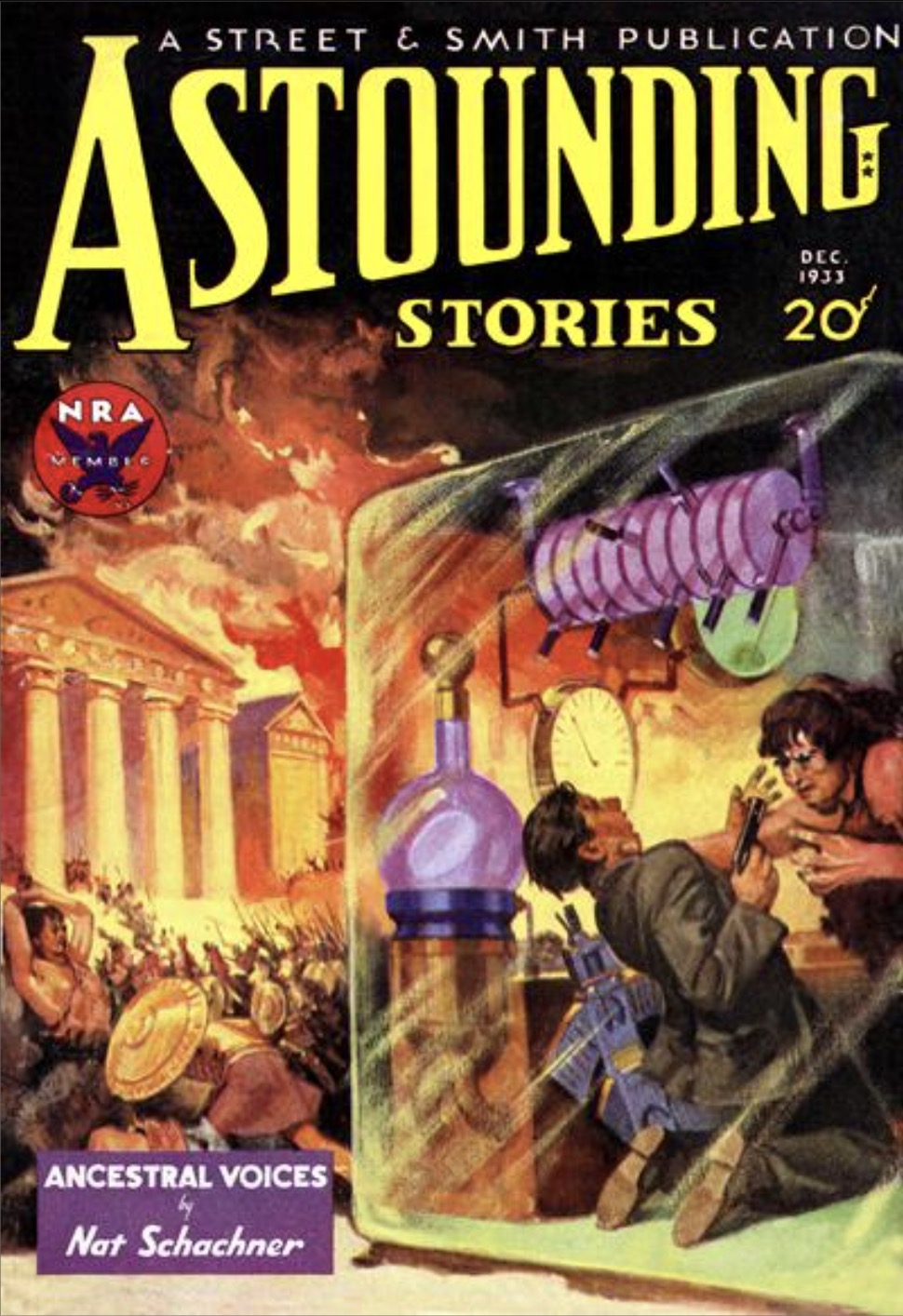
Astounding Stories, December 1933
1933
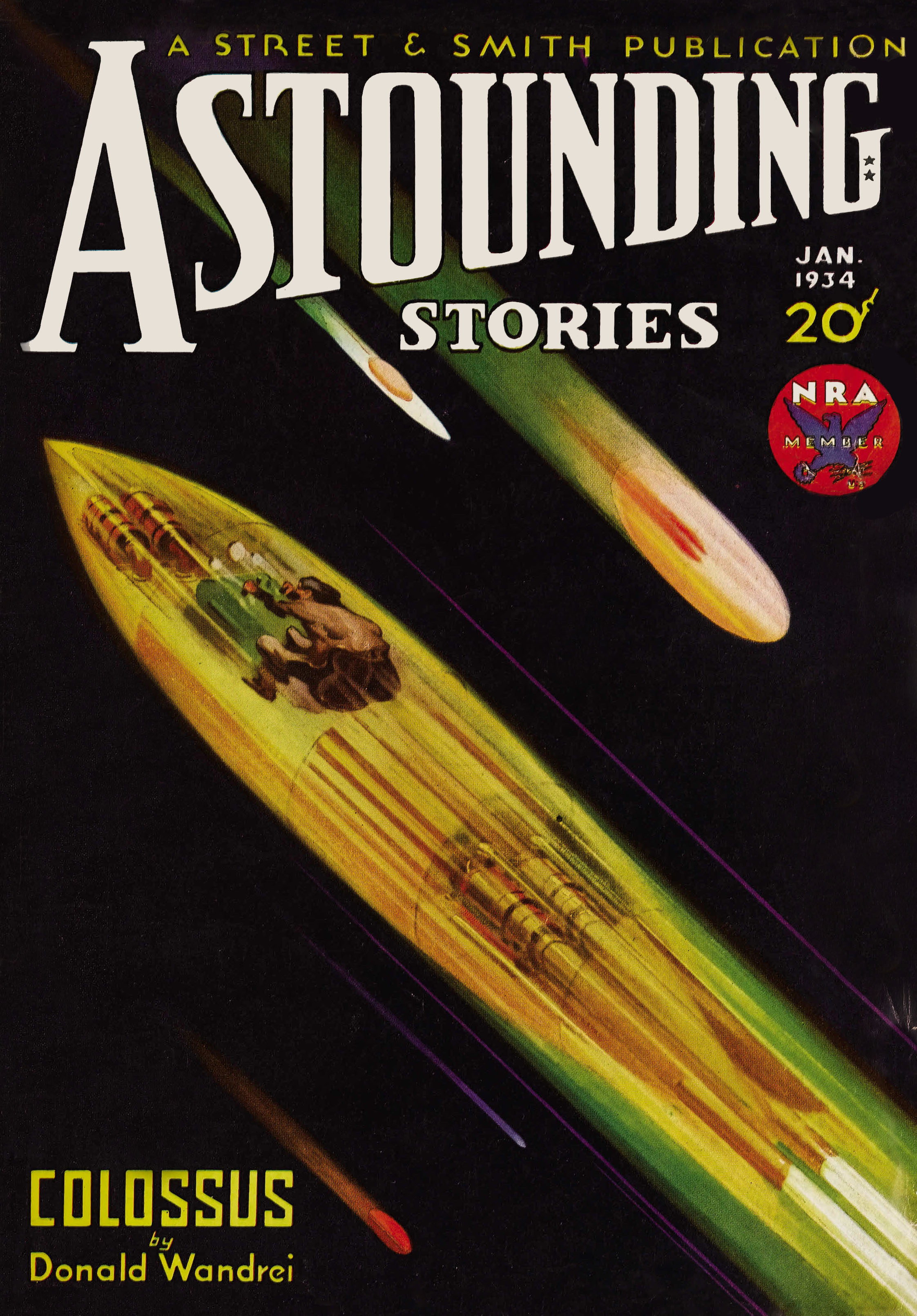
Astounding Stories, January 1934
1934
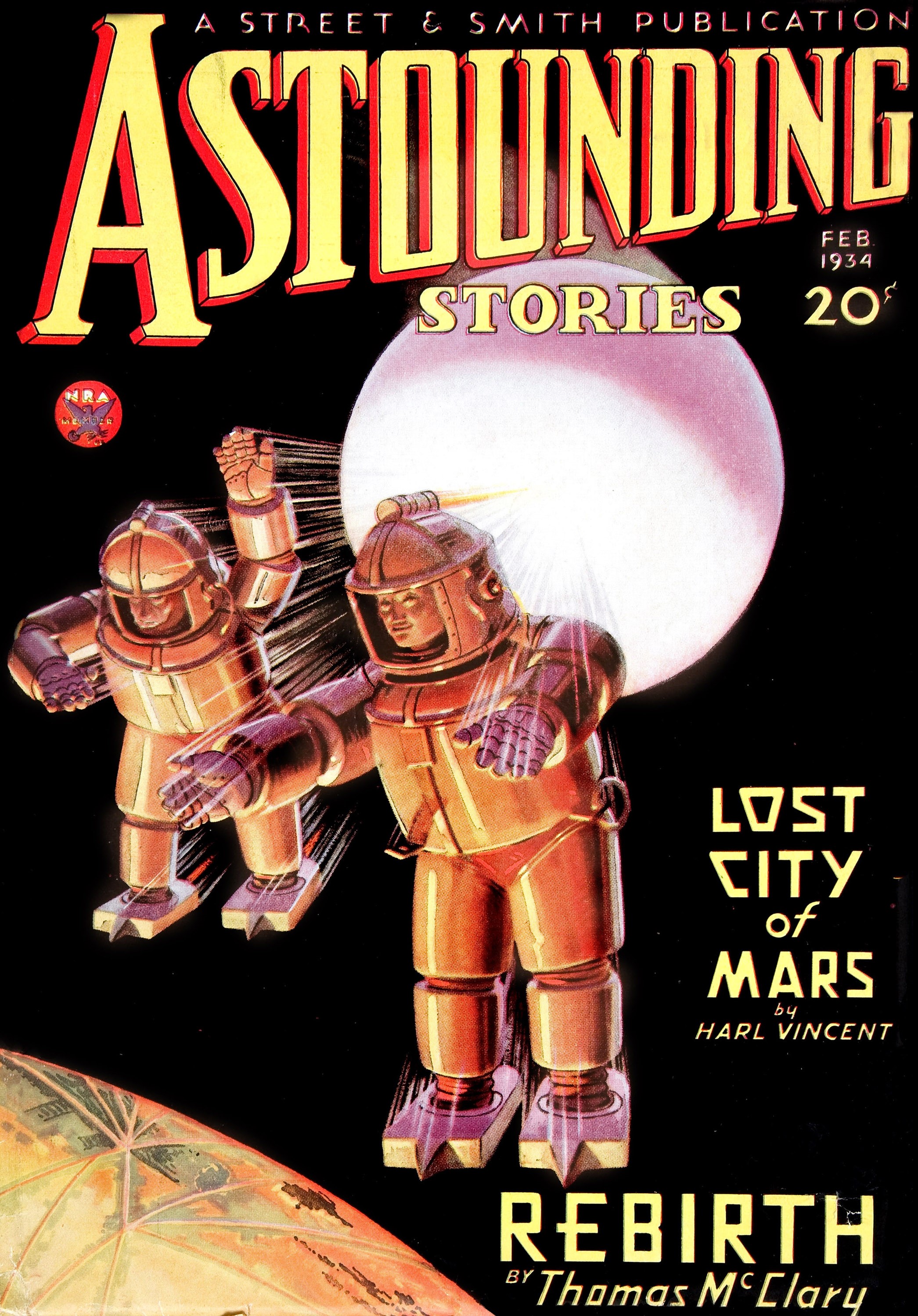
Astounding Stories, February 1934
1934
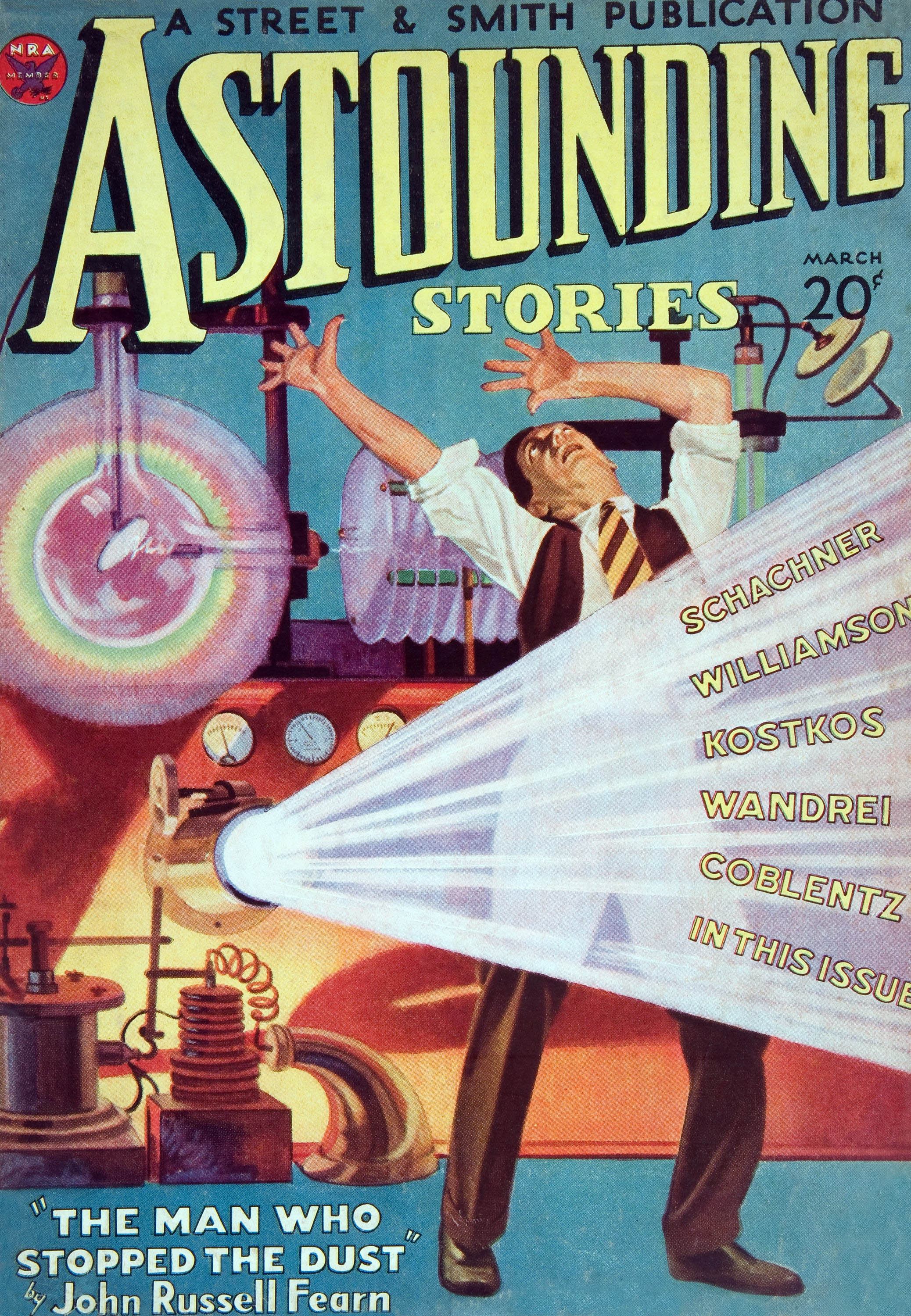
Astounding Stories, March 1934
1934
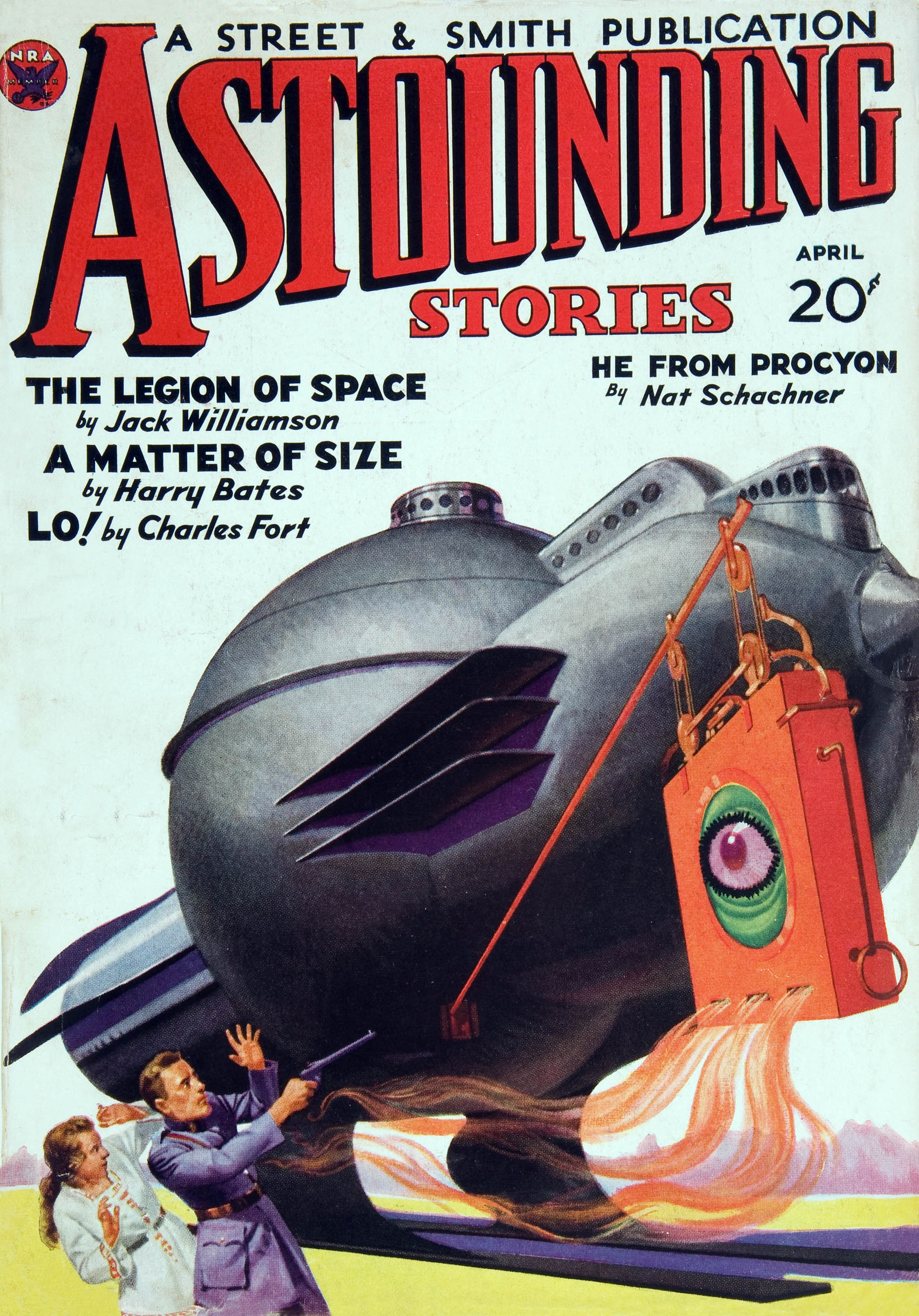
Astounding Stories, April 1934
1934
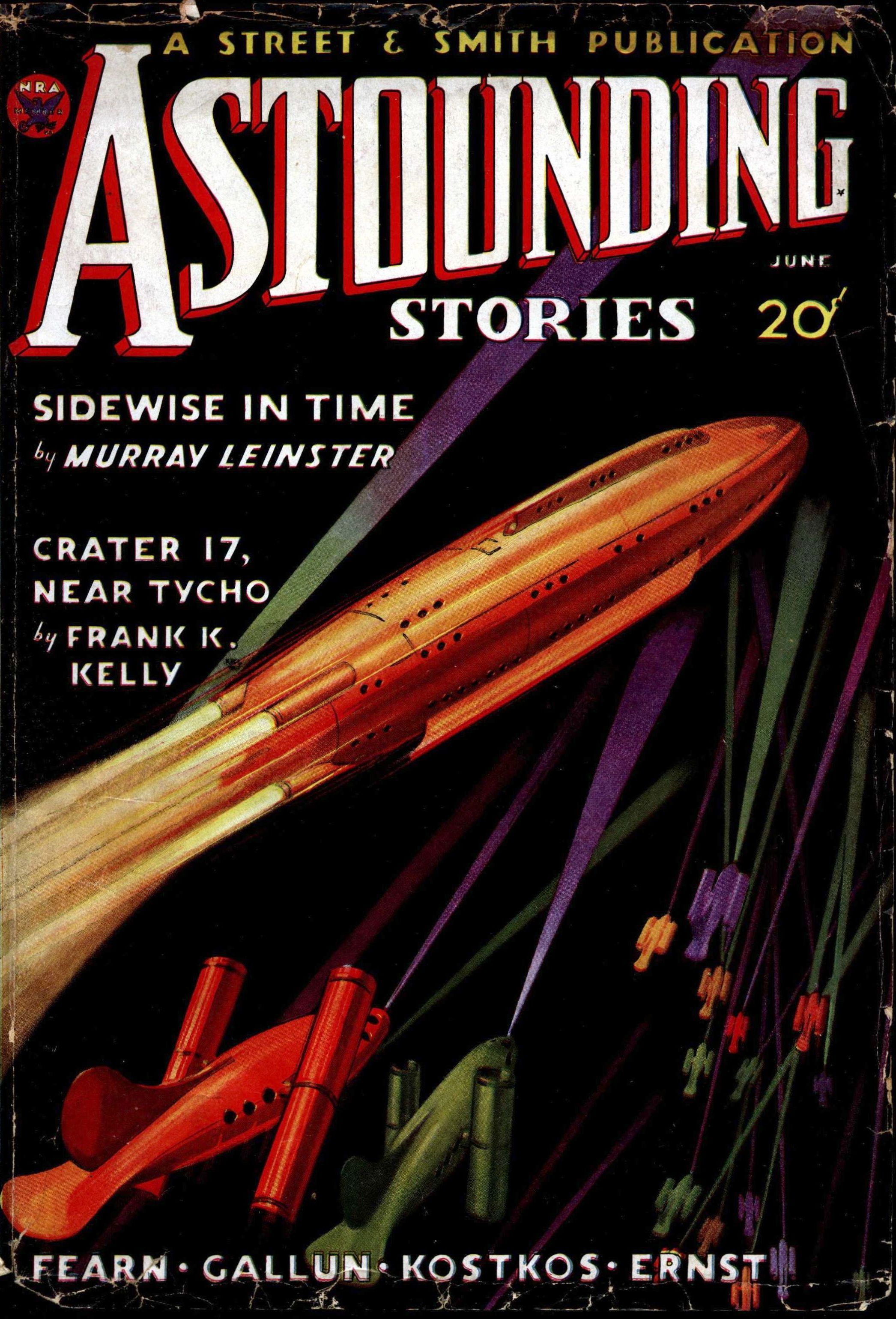
Astounding Stories, June 1934
1934
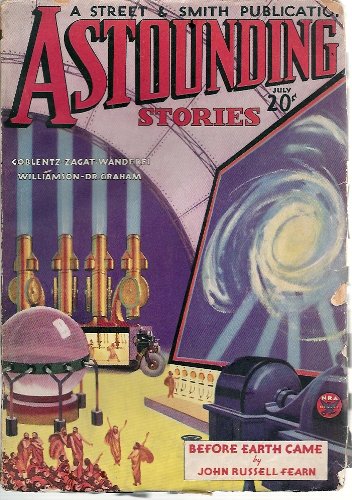
Astounding Stories, July 1934
1934

Astounding Stories, August 1934
1934
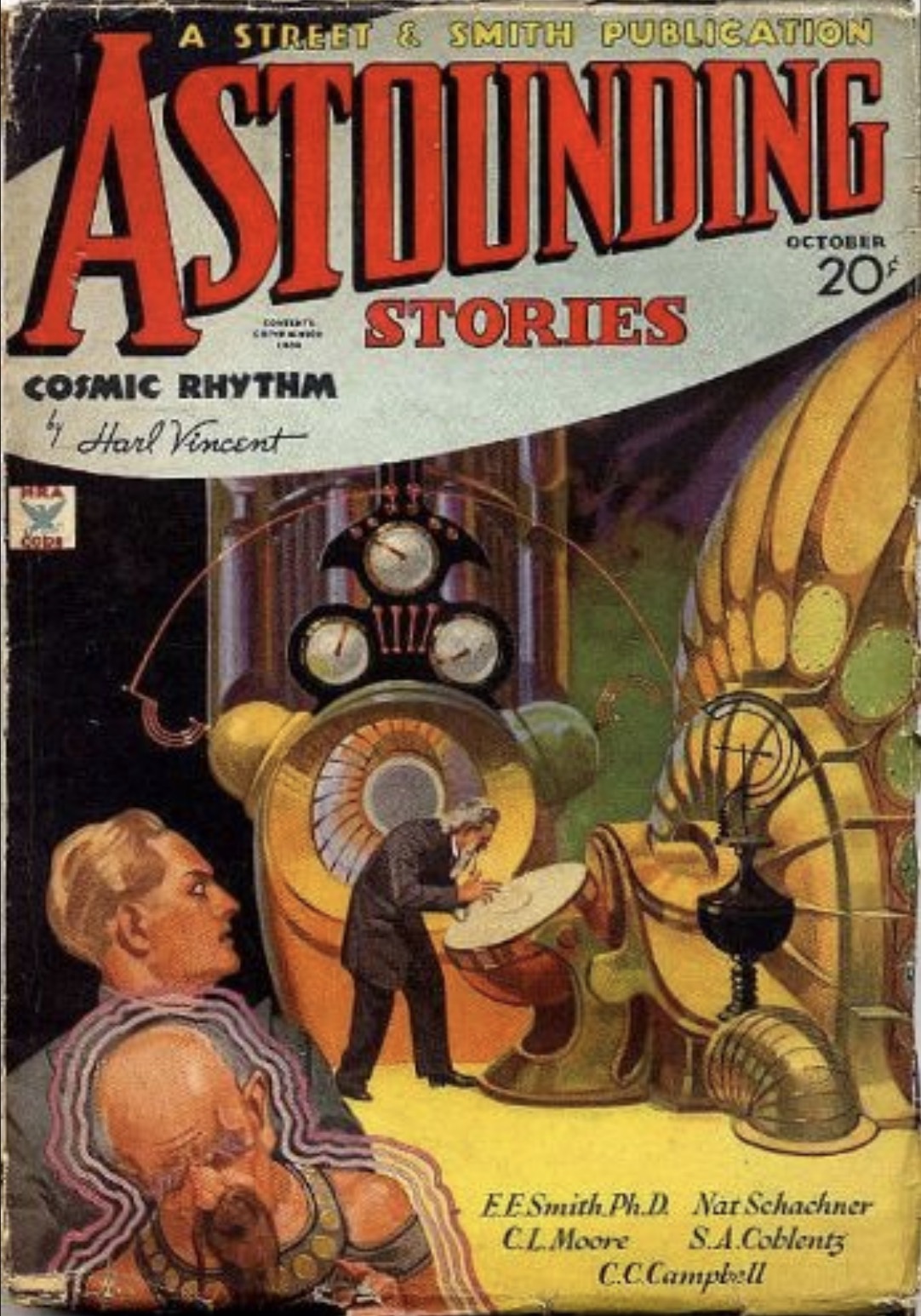
Astounding Stories, October 1934
1934
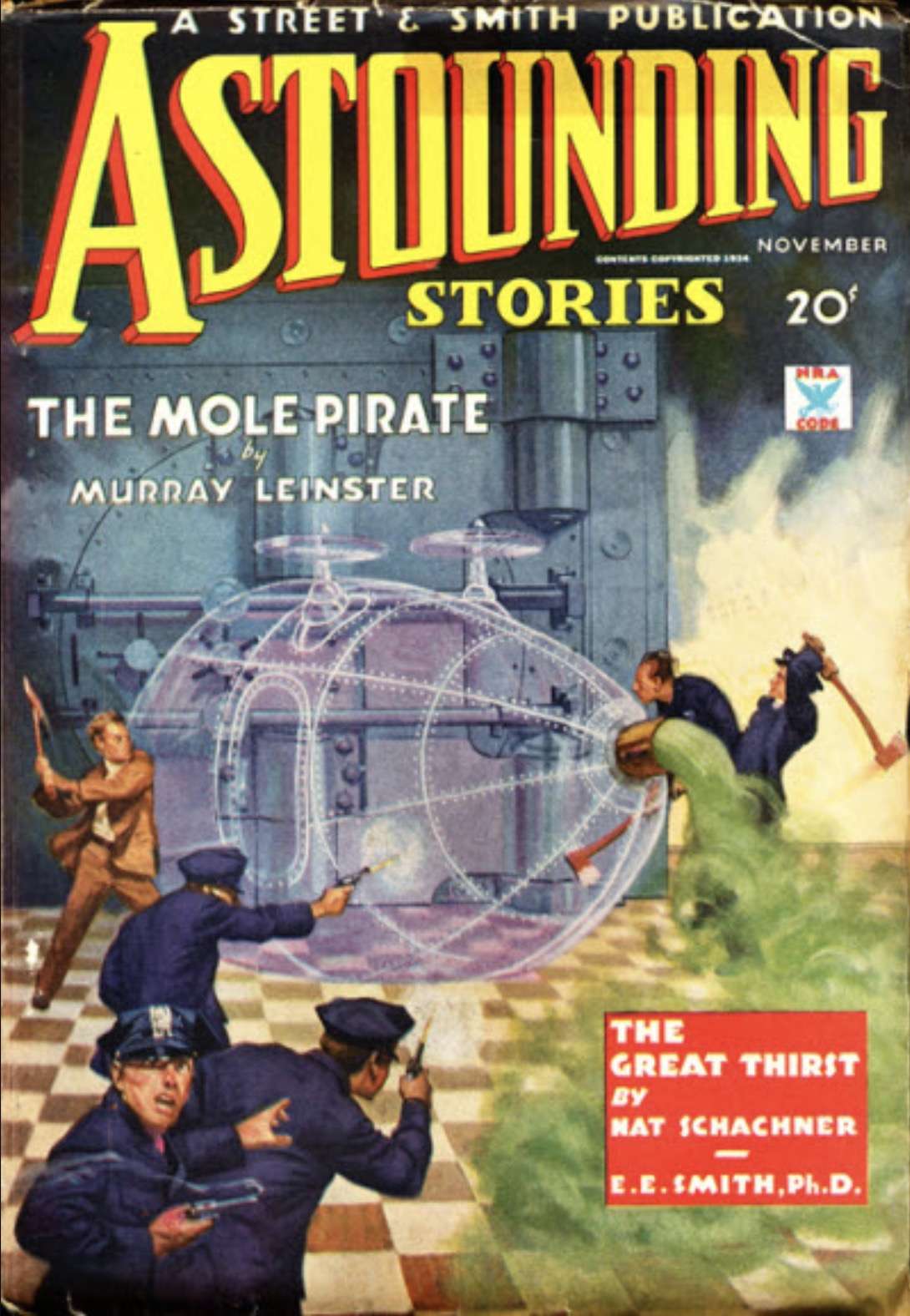
Astounding Stories, November 1934
1934
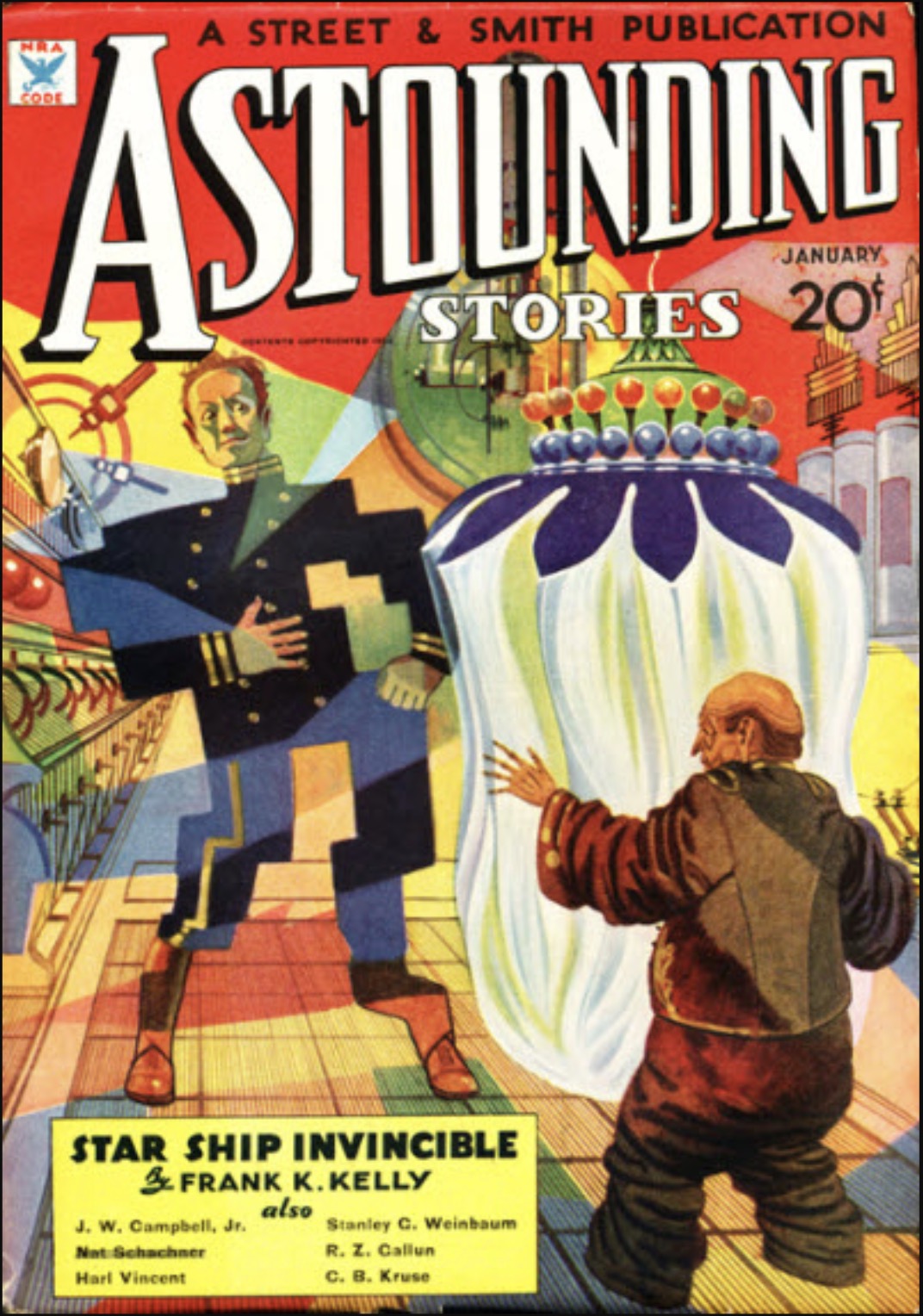
Astounding Stories, January 1935
1935
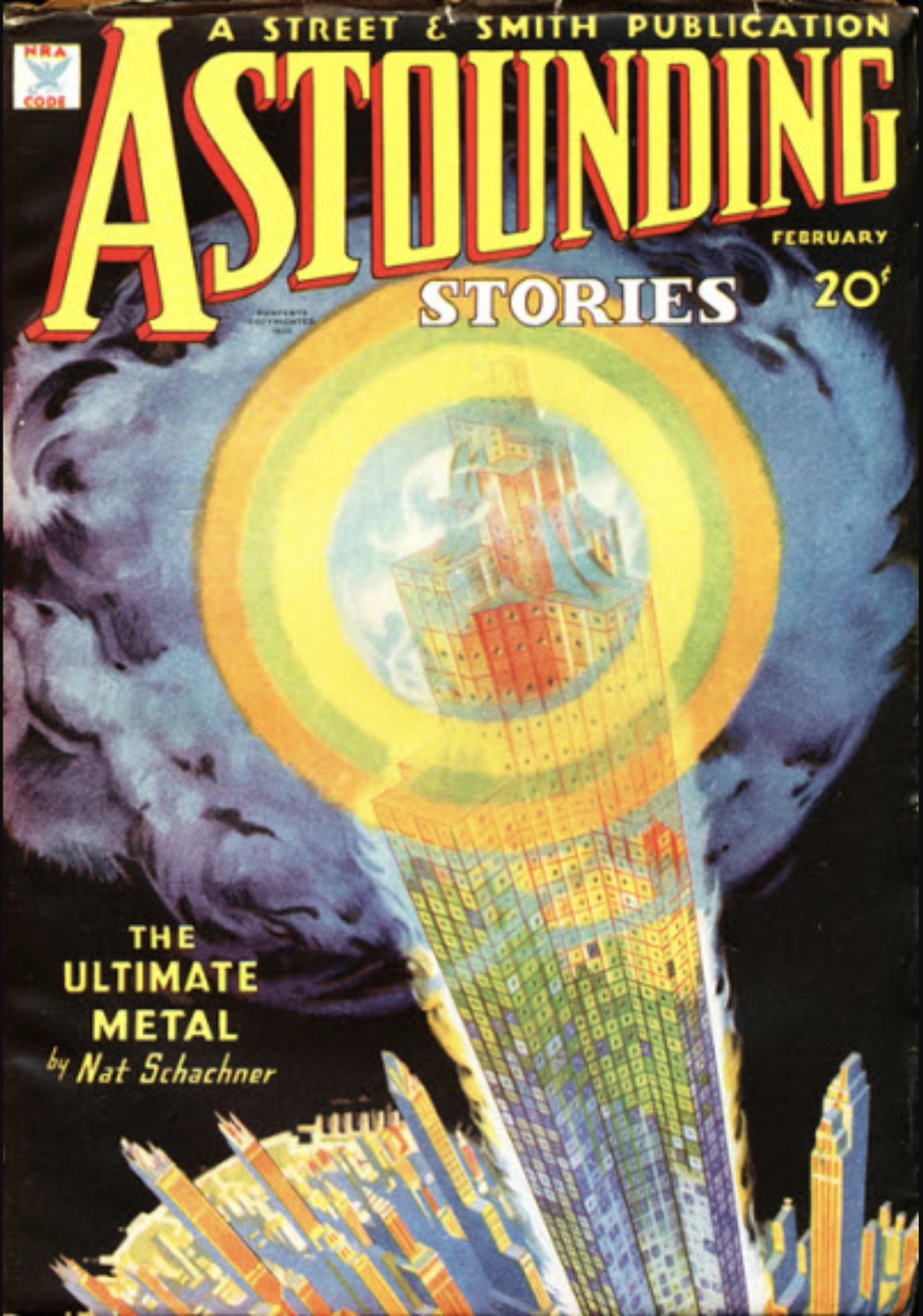
Astounding Stories, February 1935
1935
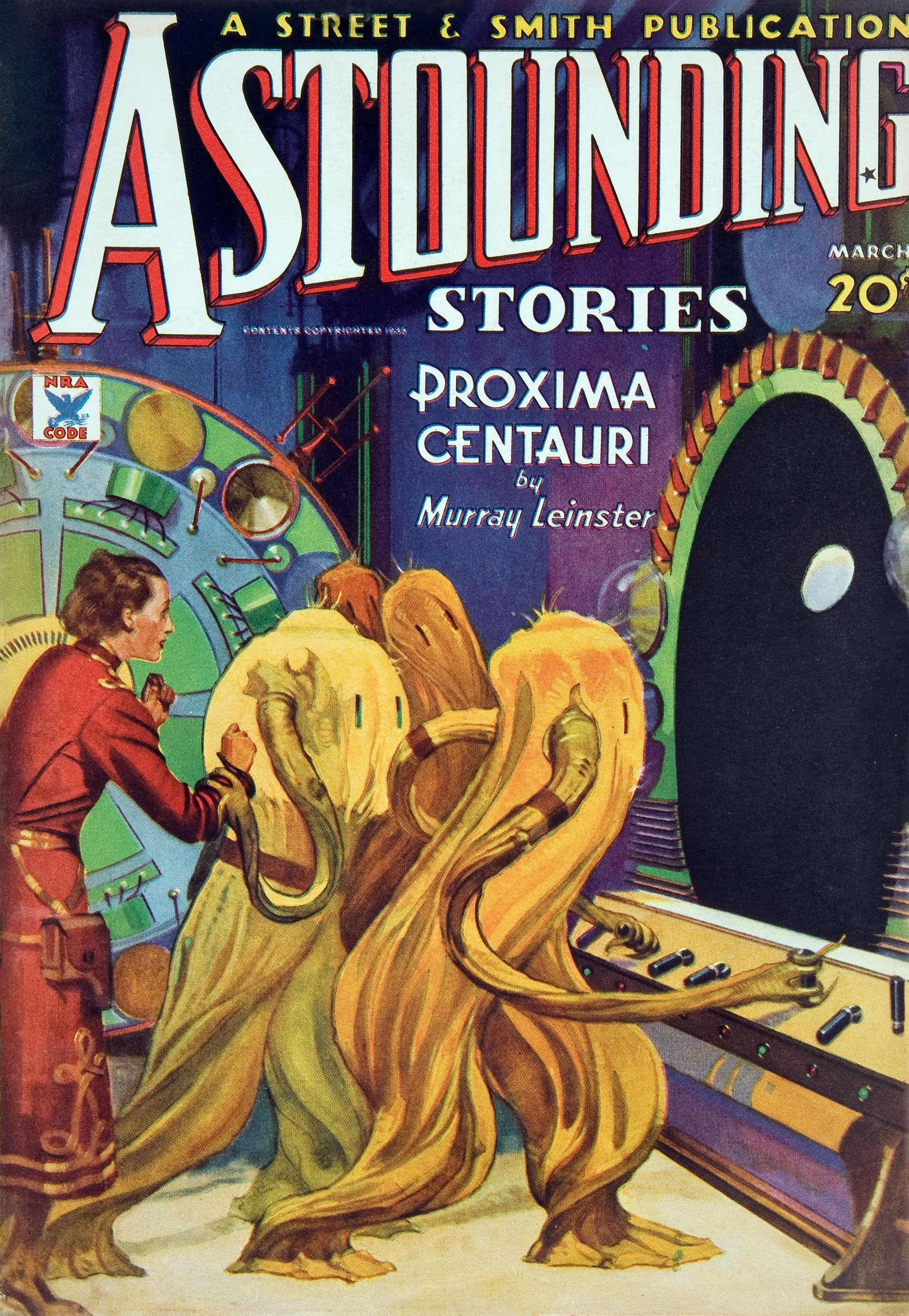
Astounding Stories, March 1935
1935
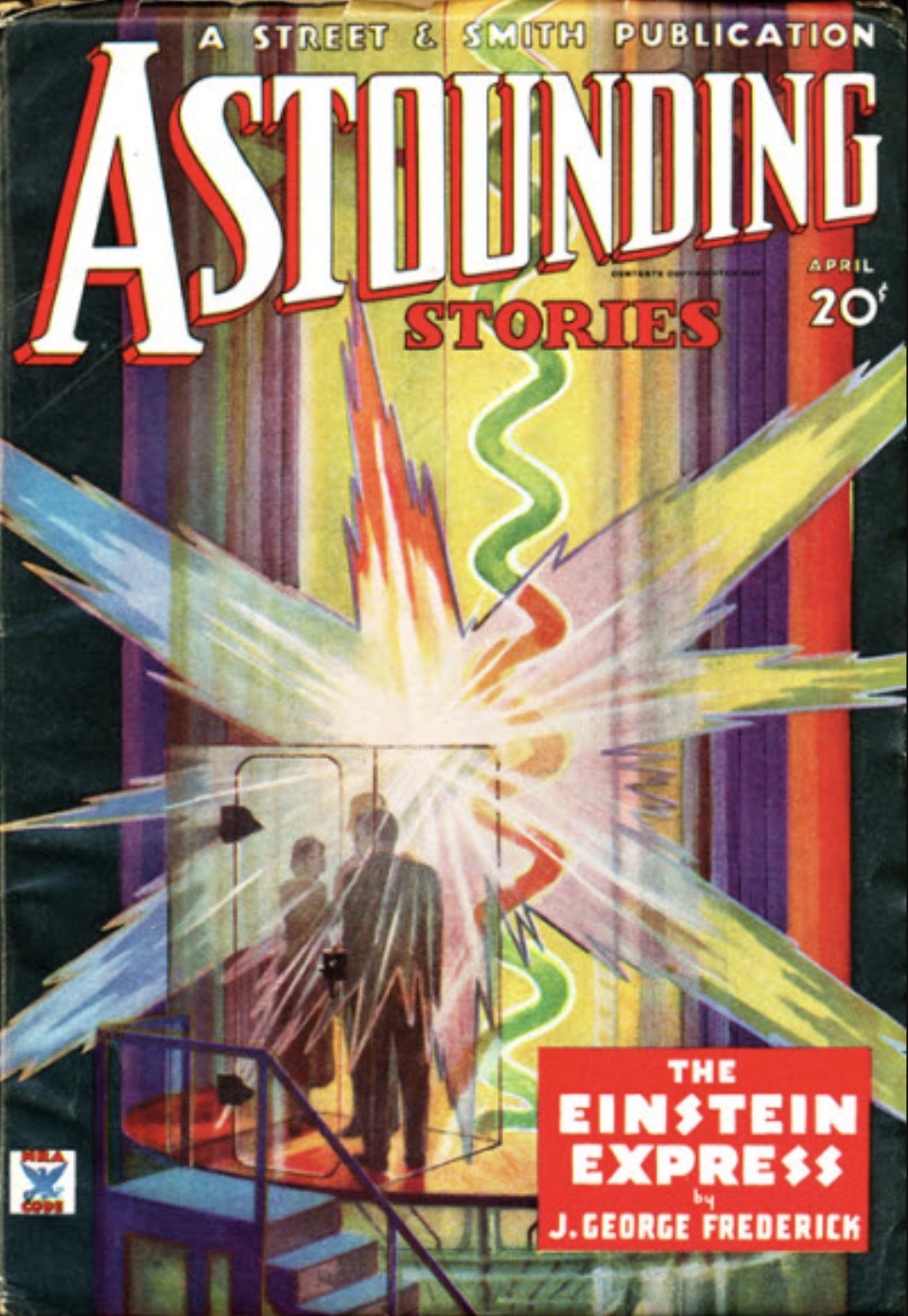
Astounding Stories, April 1935
1935
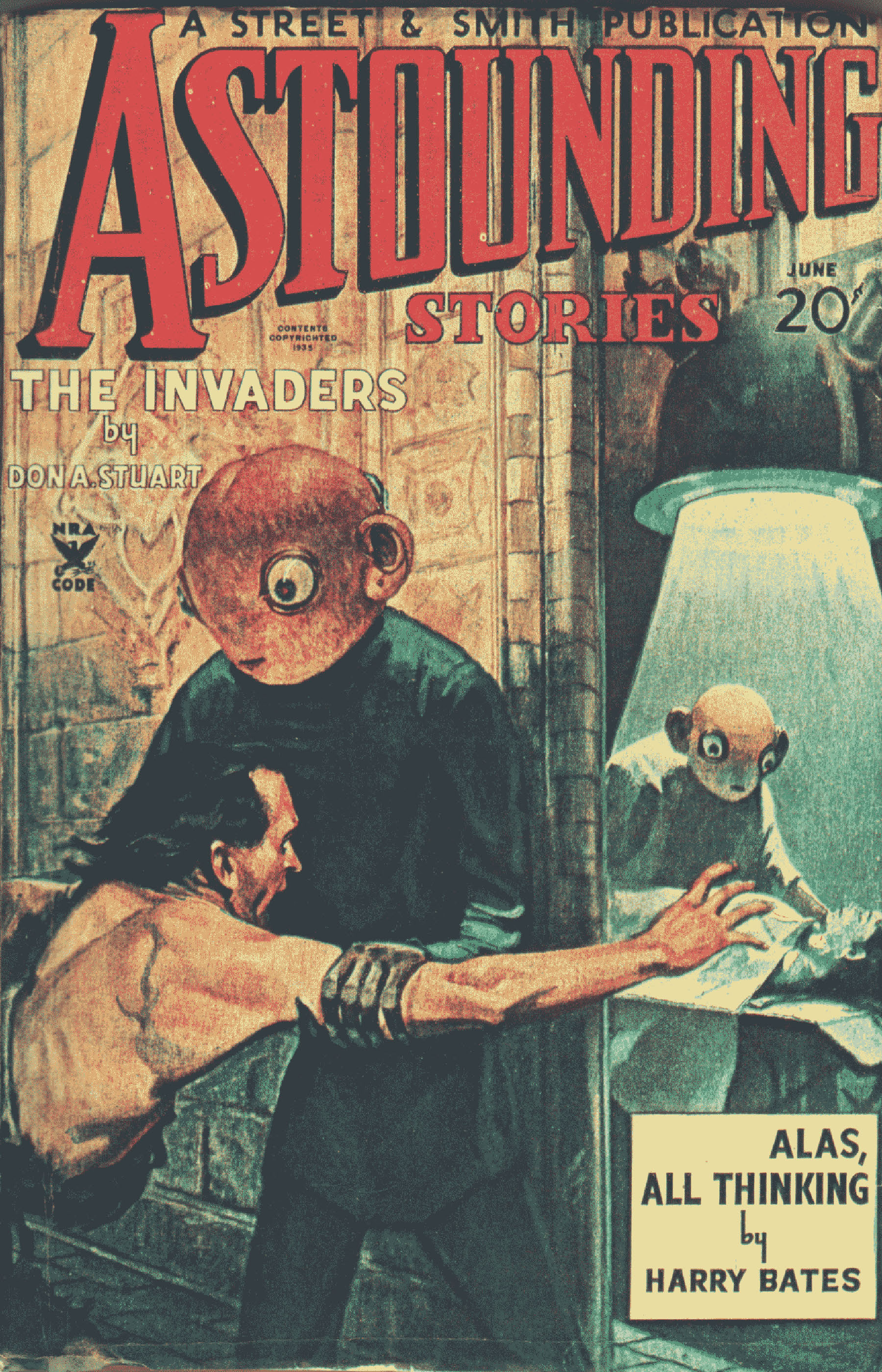
Astounding Stories, June 1935
1935
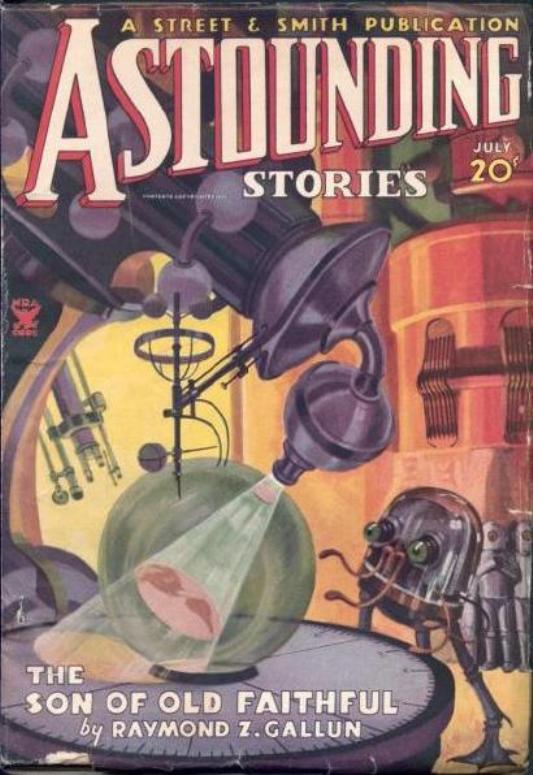
Astounding Stories, July 1935
1935
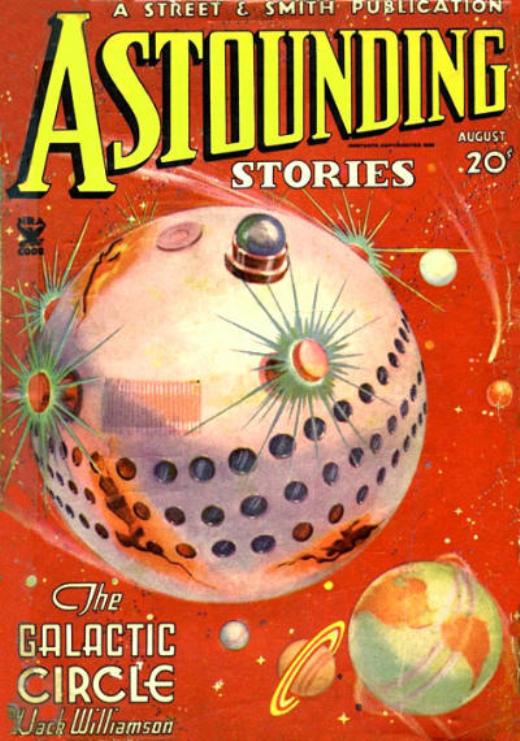
Astounding Stories, August 1935
1935
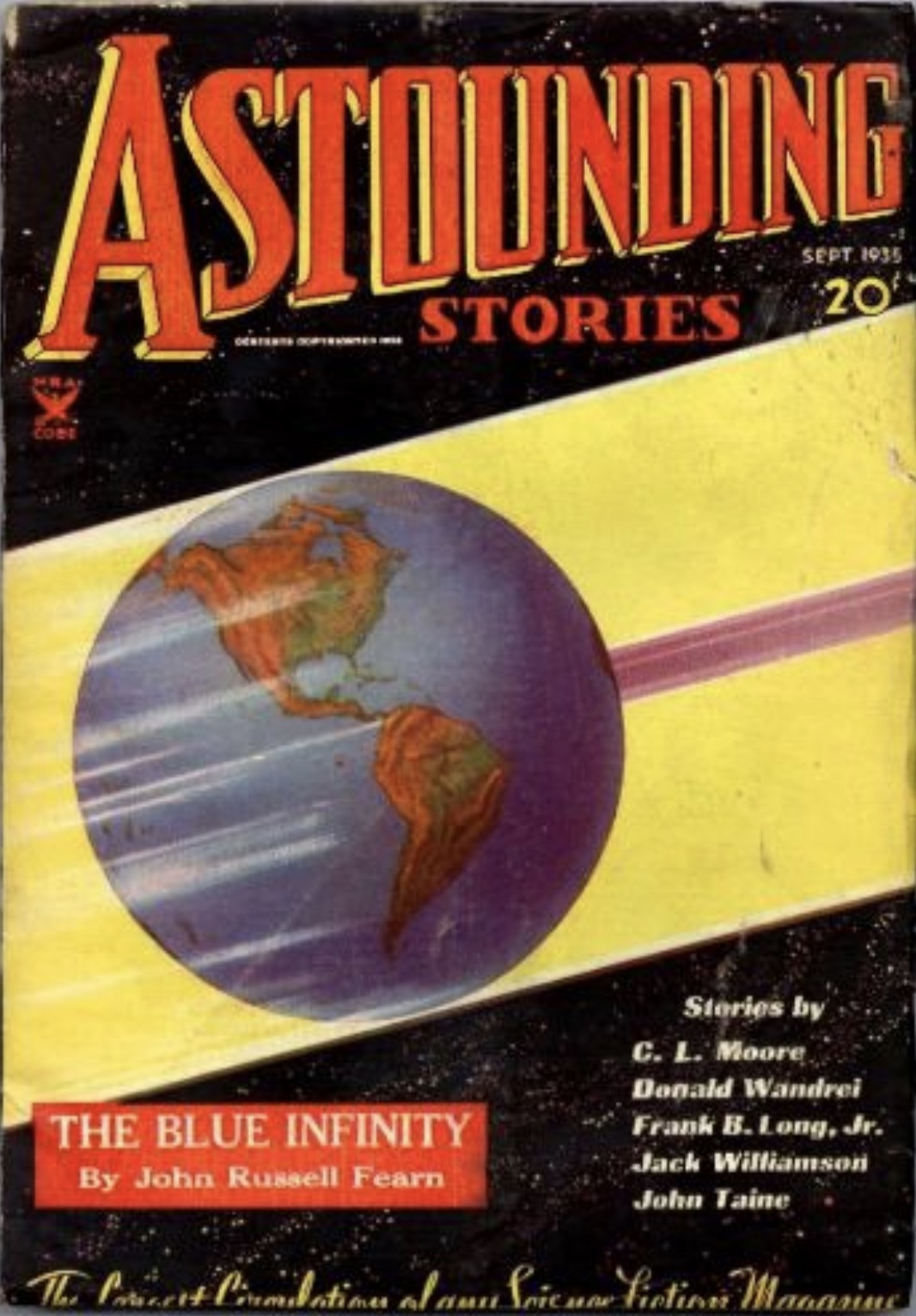
Astounding Stories, September 1935
1935
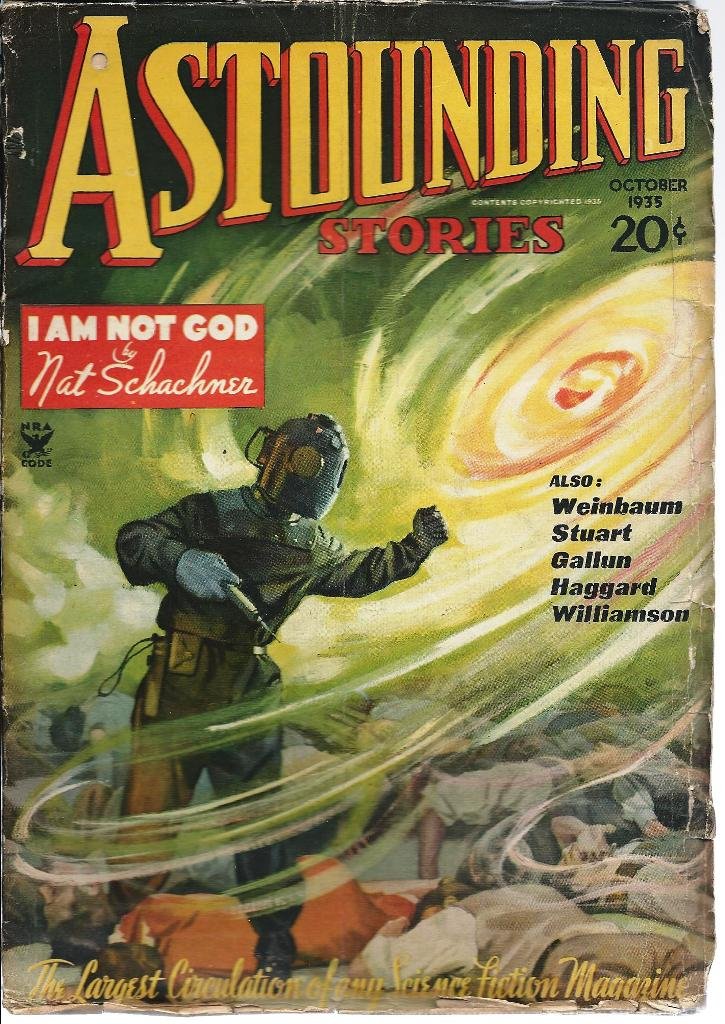
Astounding Stories, October 1935
1935
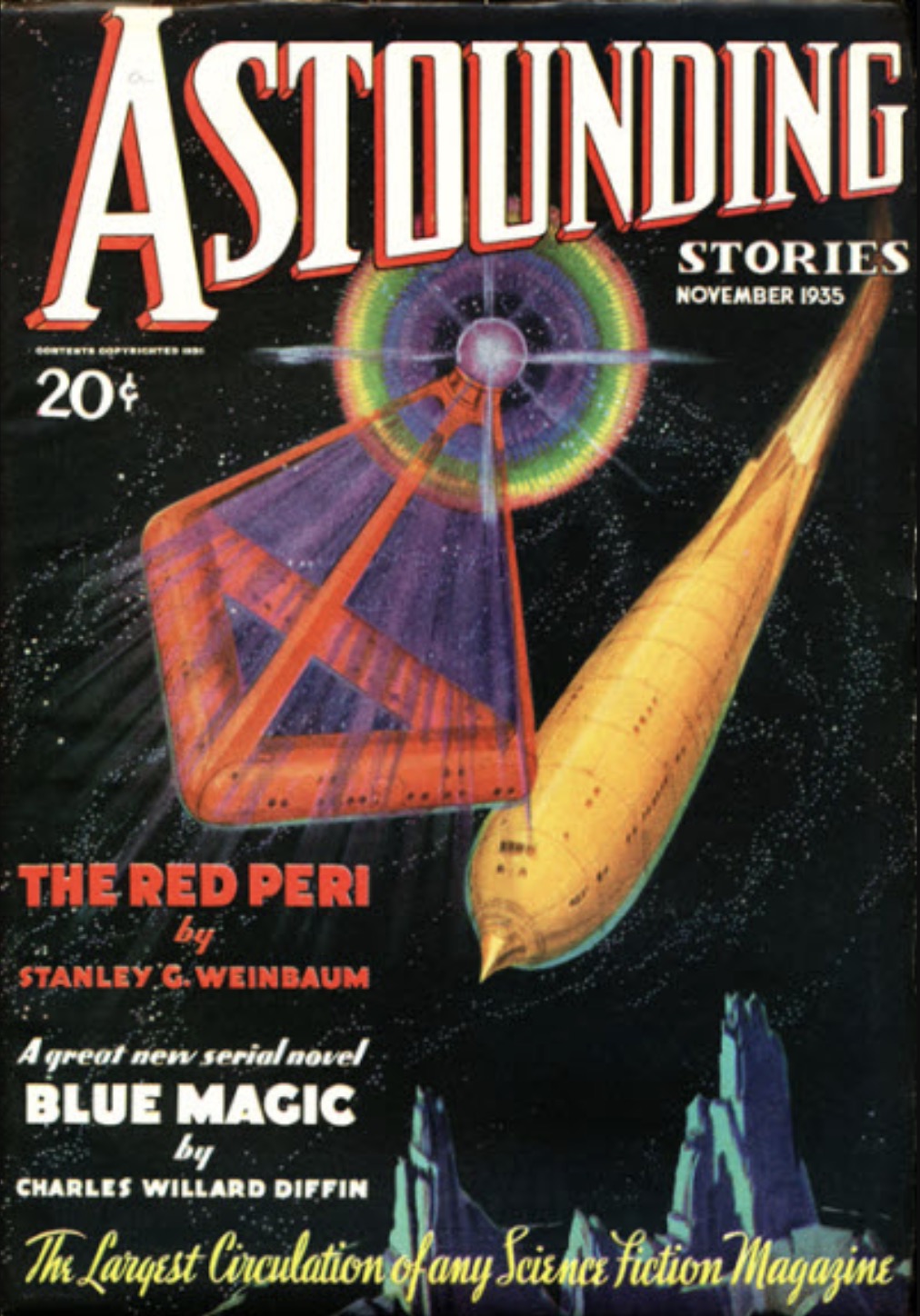
Astounding Stories, November 1935
1935
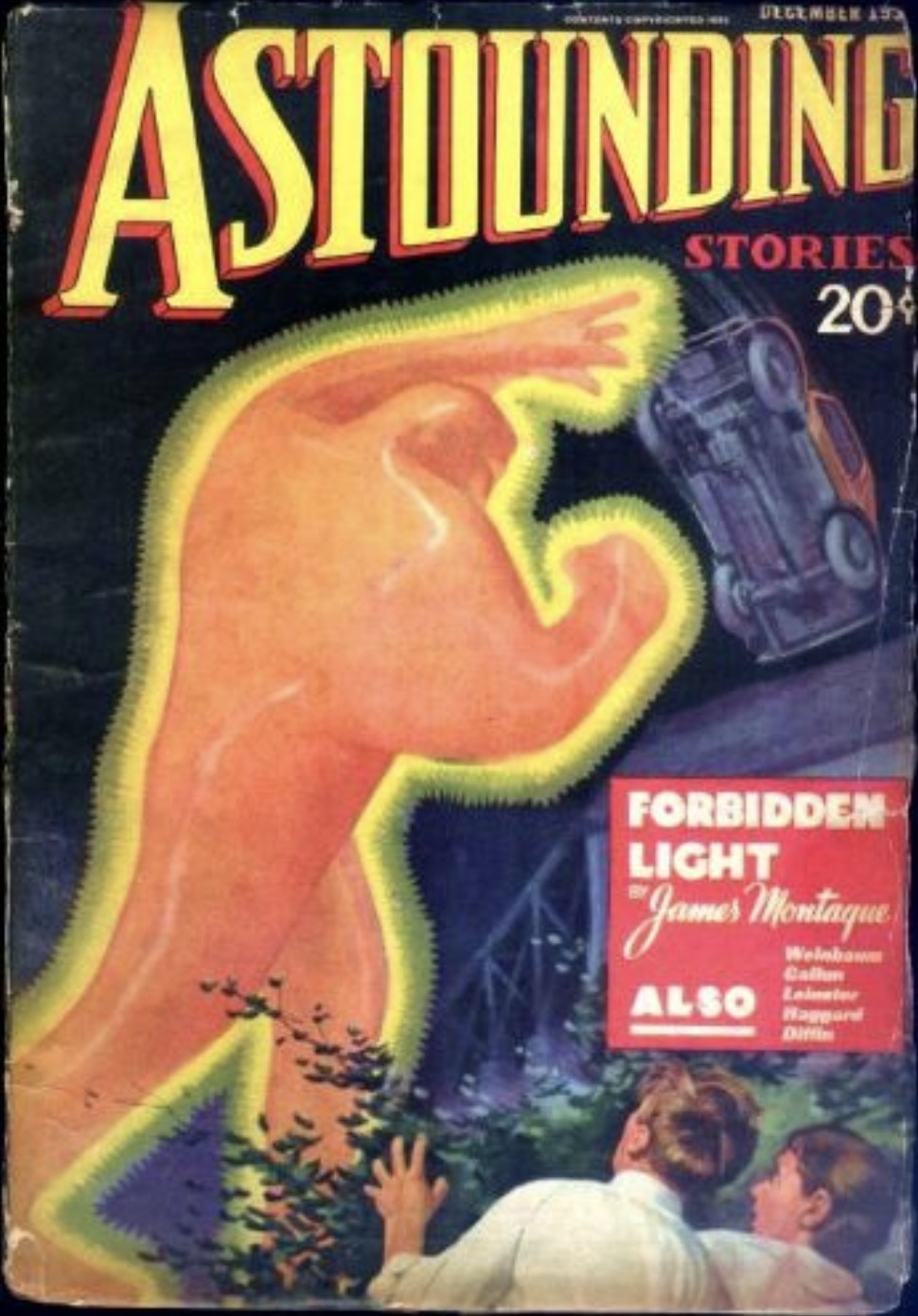
Astounding Stories, December 1935
1935
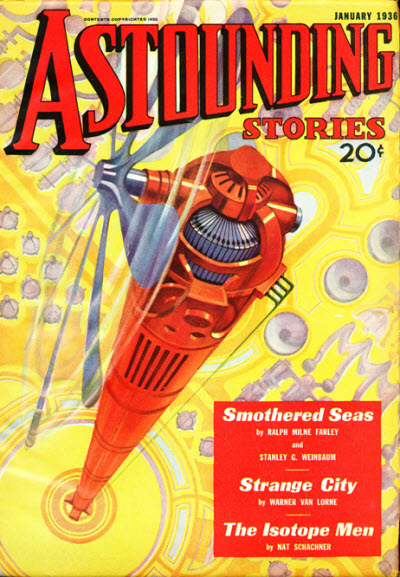
Astounding Stories, January 1936
1935
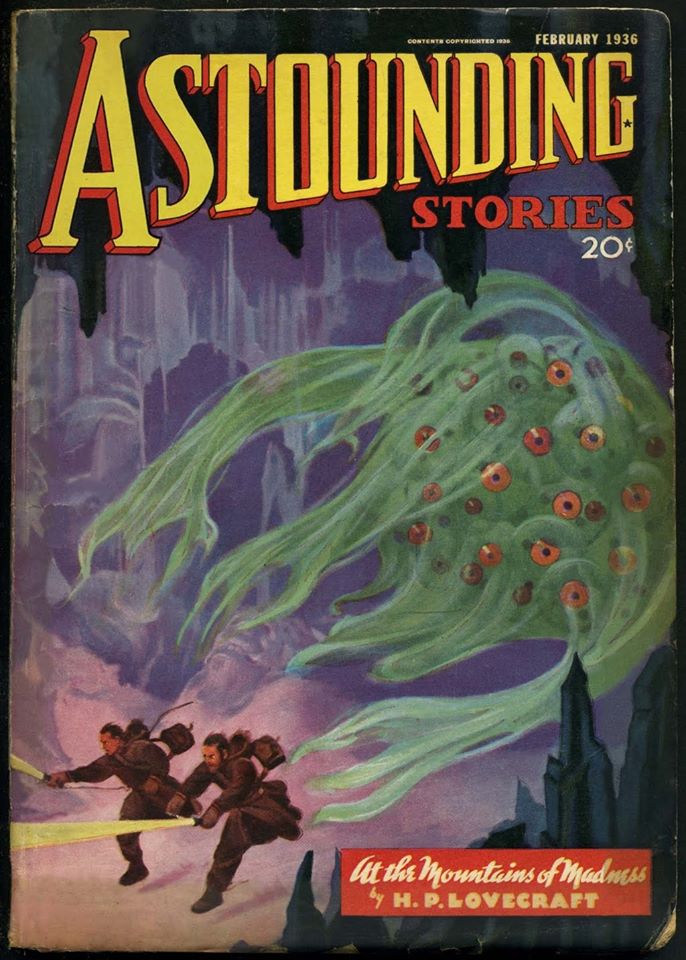
Astounding Stories, February 1936
1936
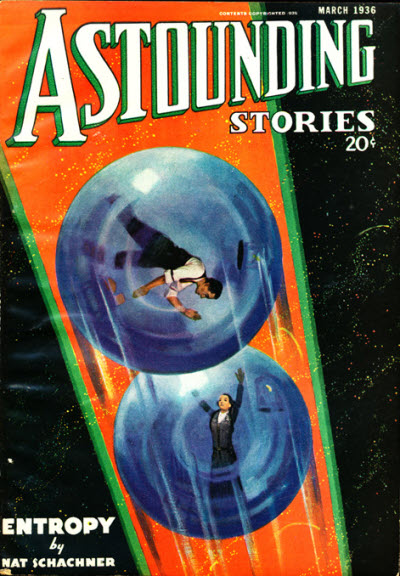
Astounding Stories, March 1936
1936
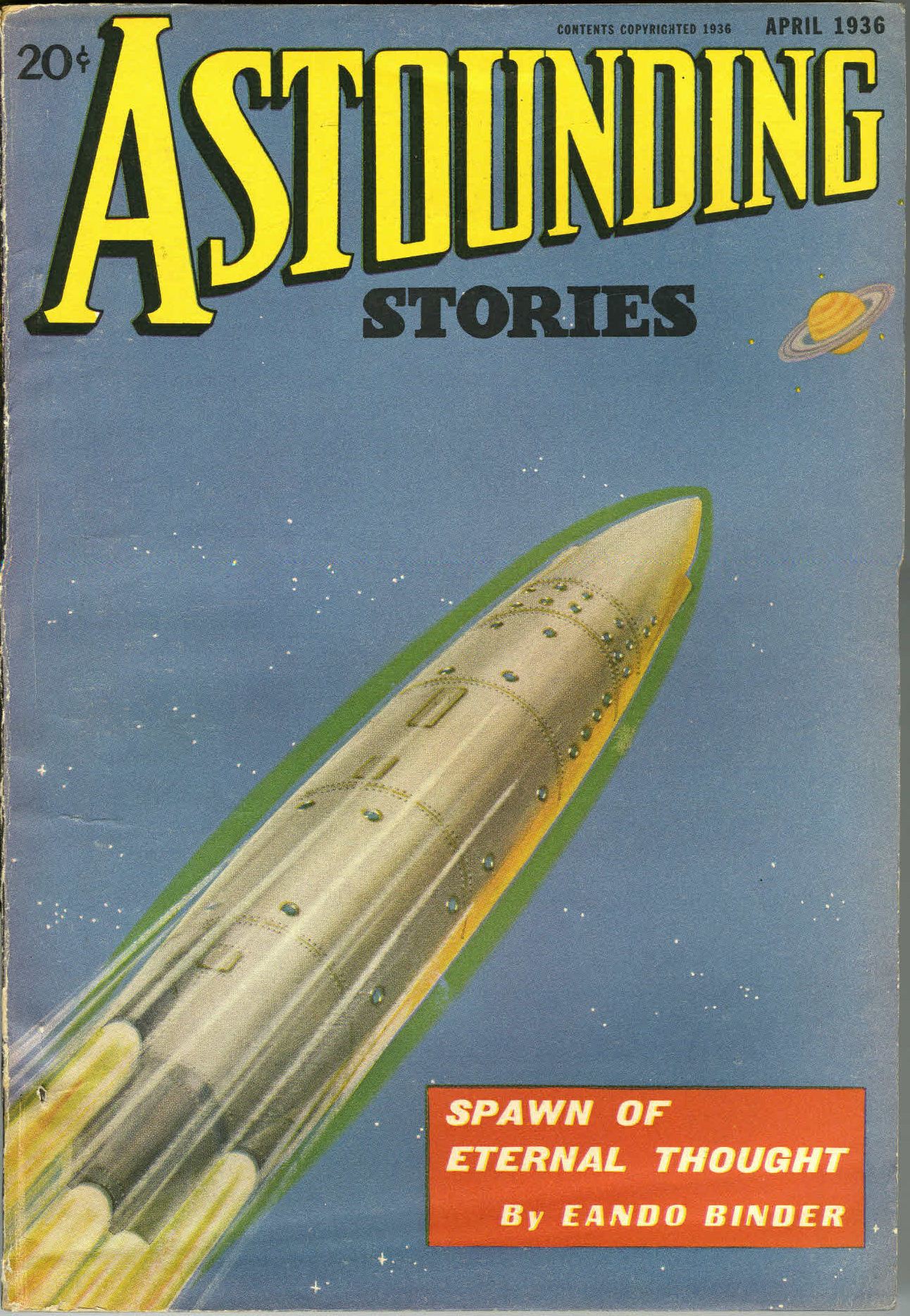
Astounding Stories, April 1936
1936
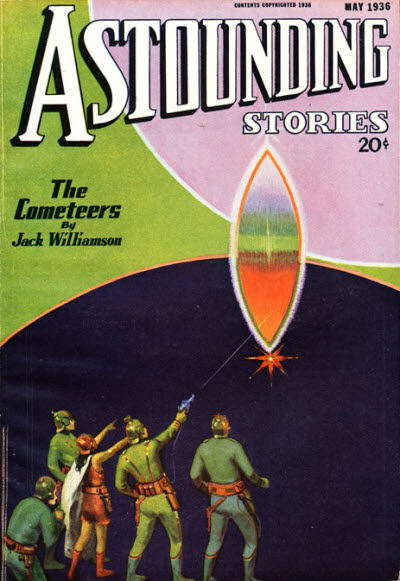
Astounding Stories, May 1936
1936

Astounding Stories, July 1937
1937
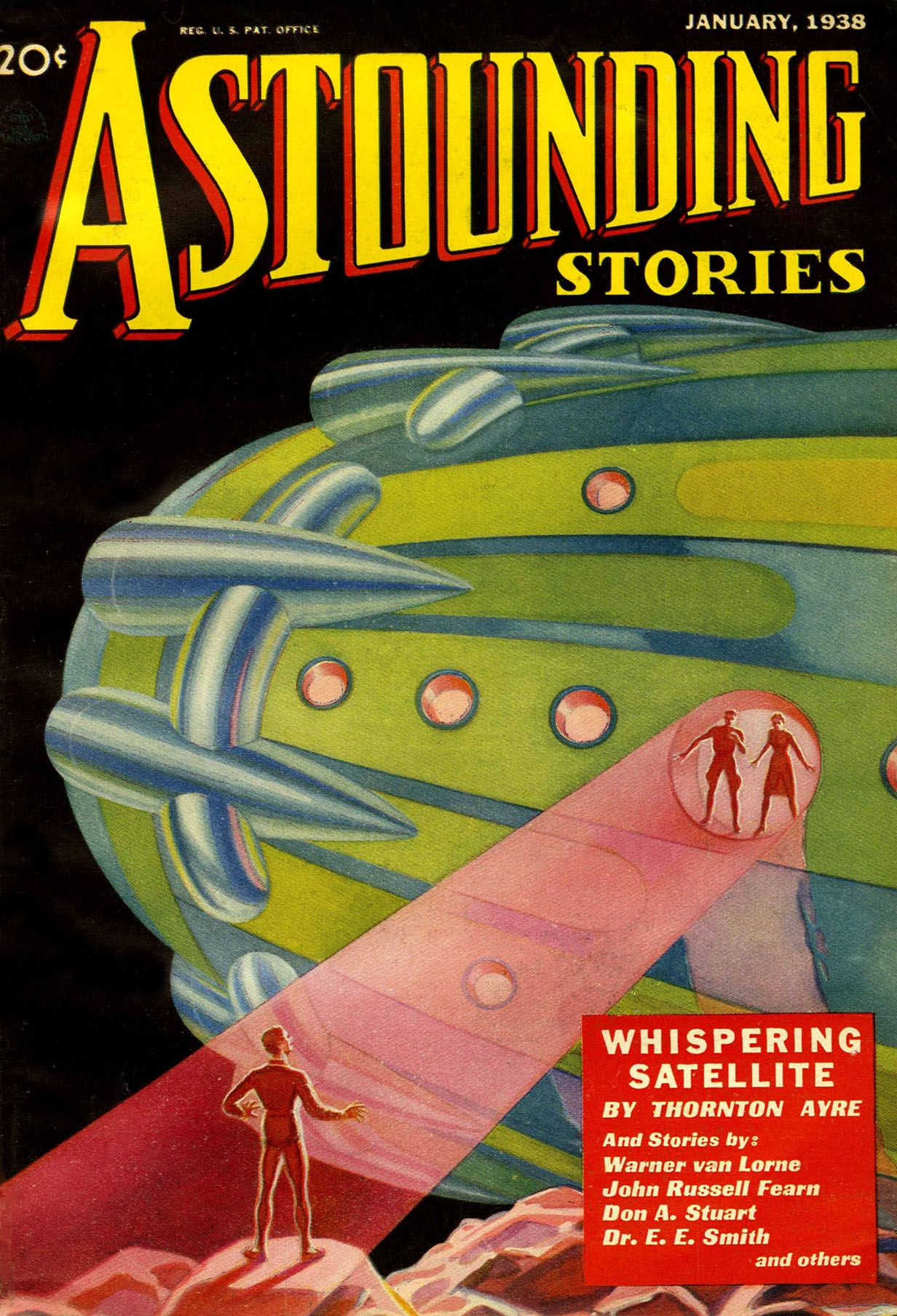
Astounding Stories, January 1938
1937
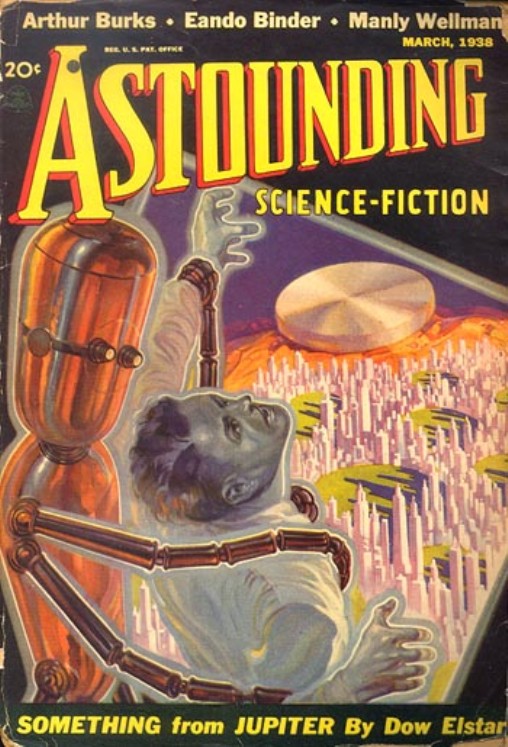
Astounding Science-Fiction, March 1938
1938

Astounding Science-Fiction, April 1938
1938
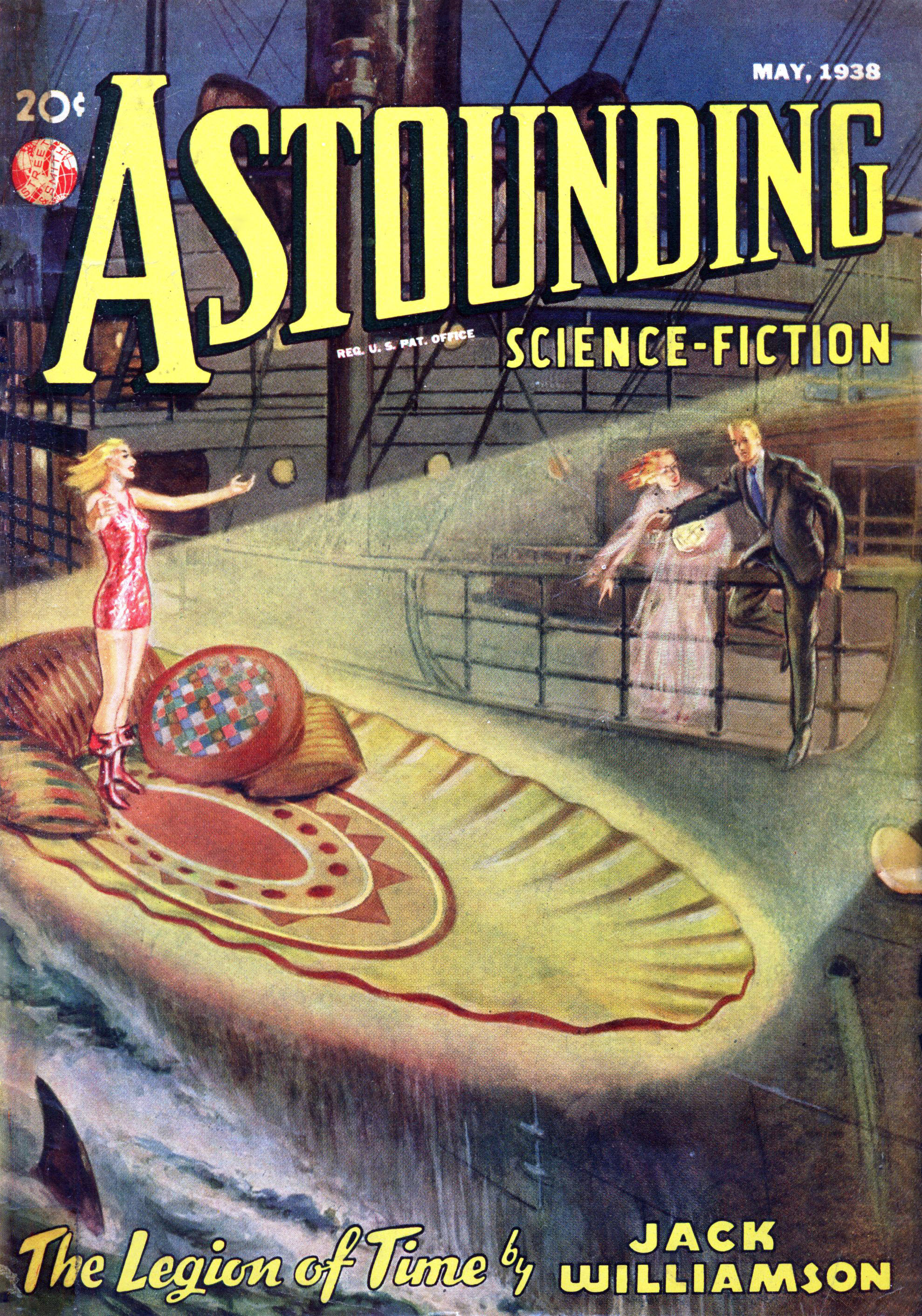
Astounding Science-Fiction, May 1938
1938
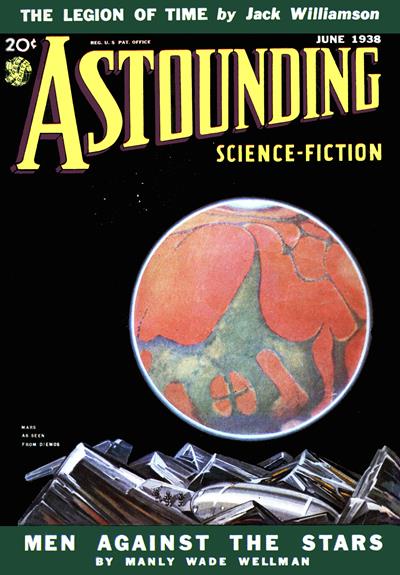
Astounding Science-Fiction, June 1938
1938
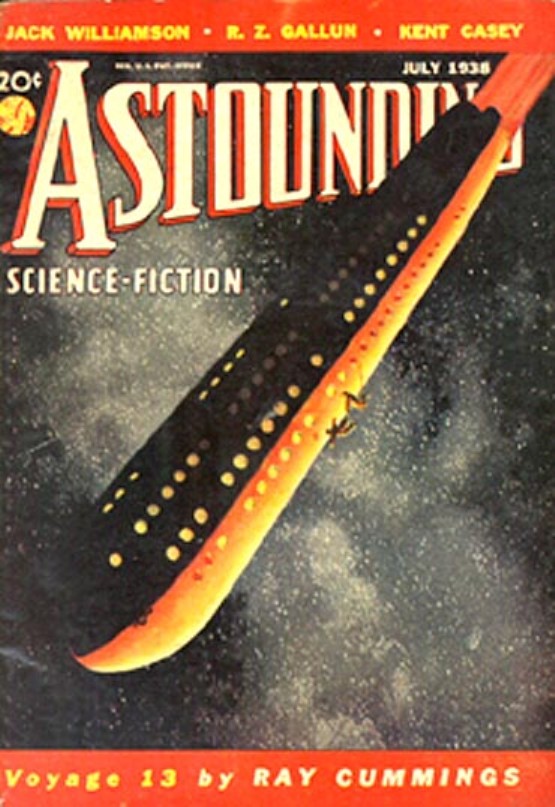
Astounding Science-Fiction, July 1938
1938

Astounding Science-Fiction, August 1938
1938
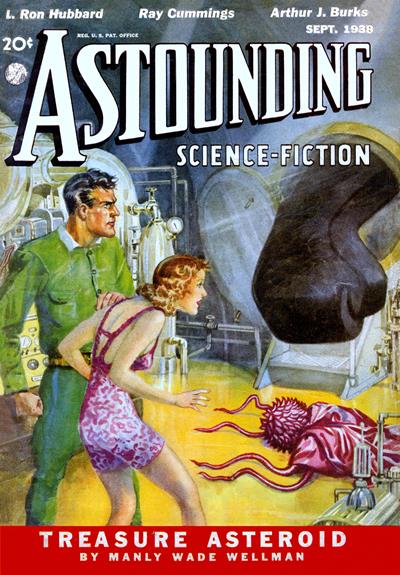
Astounding Science-Fiction, September 1938
1938
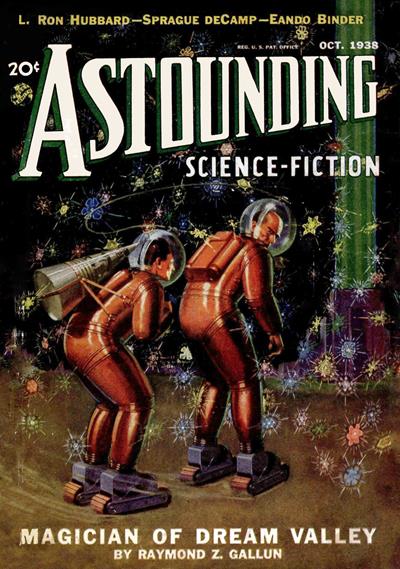
Astounding Science-Fiction, October 1938
1938
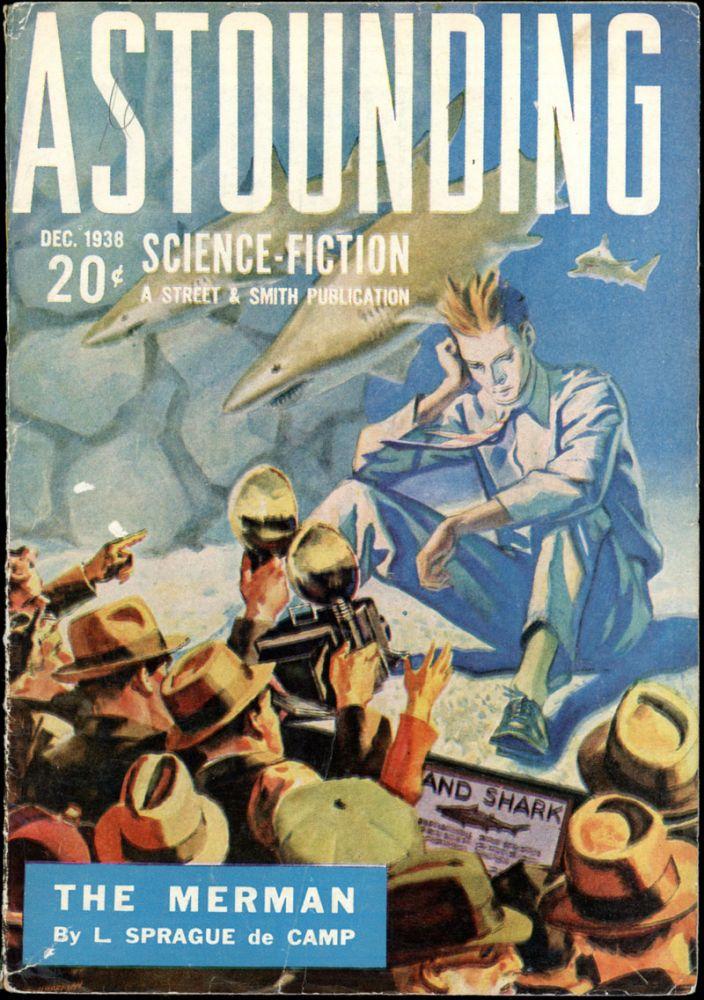
Astounding Science-Fiction, December 1938
1938
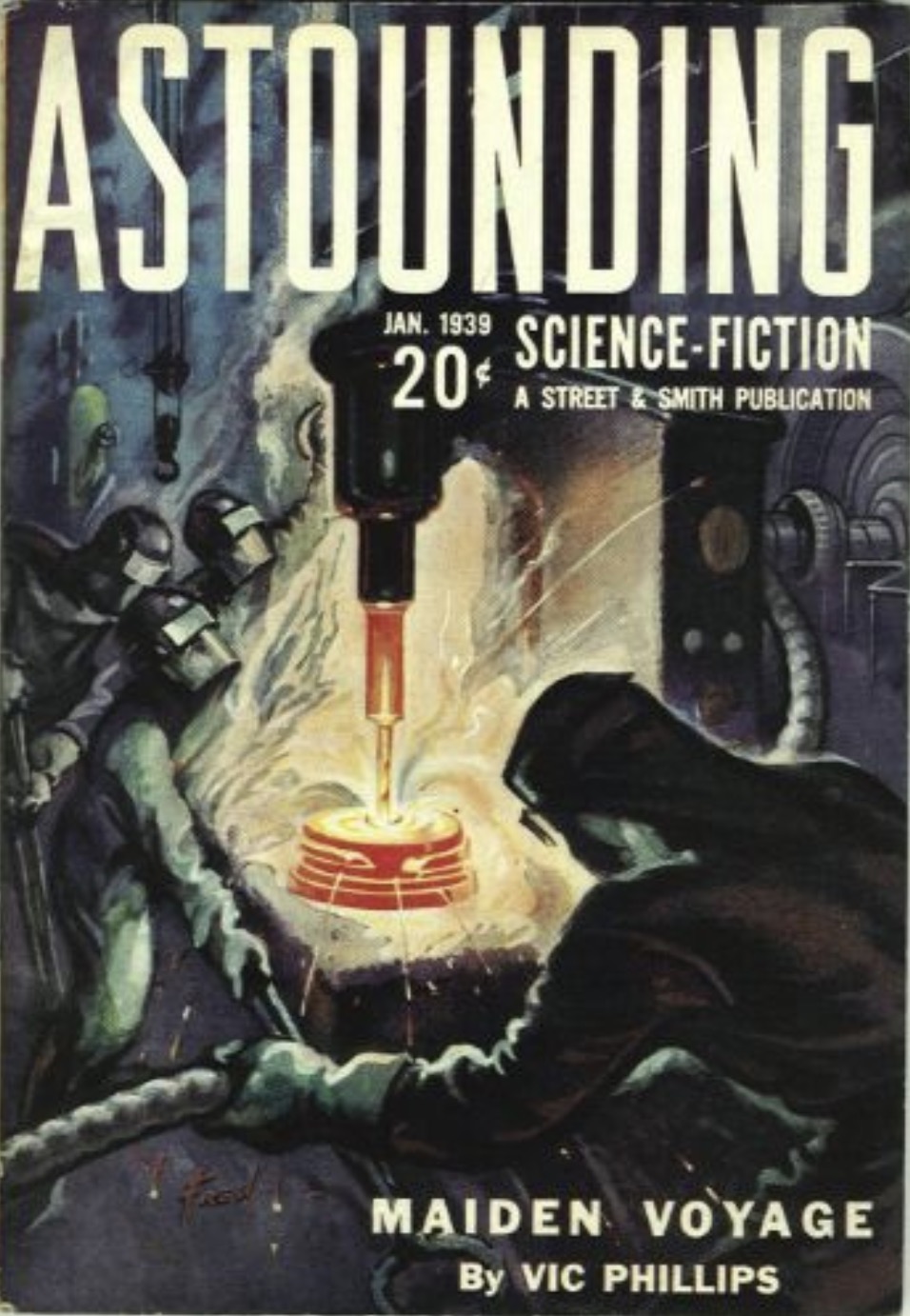
Astounding Science-Fiction, January 1939
1939
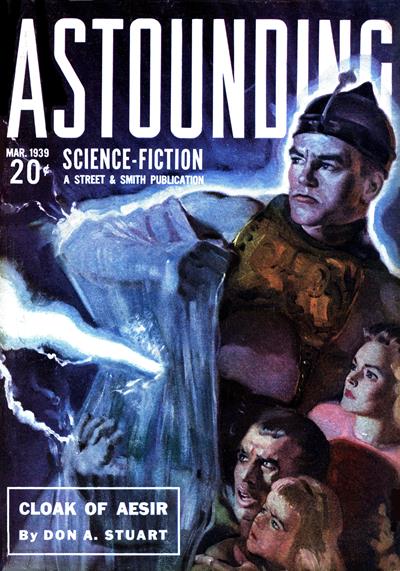
Astounding Science-Fiction, March 1939
1939
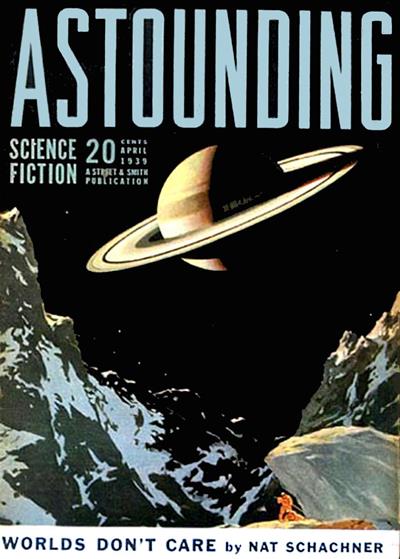
Astounding Science-Fiction, April 1939
1939
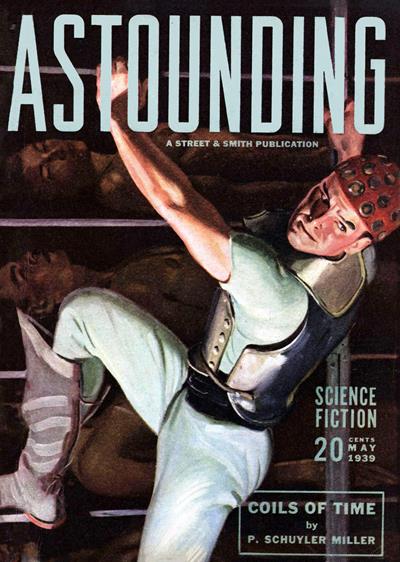
Astounding Science-Fiction, May 1939
1939
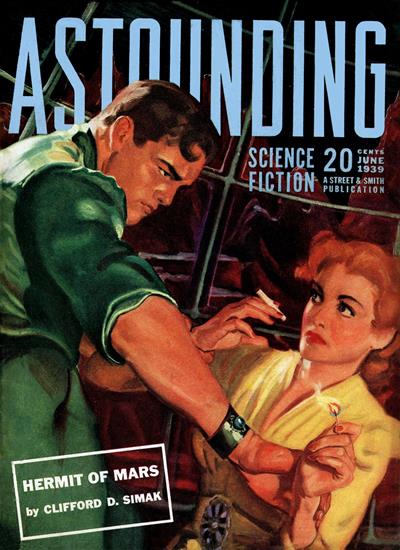
Astounding Science-Fiction, June 1939
1939
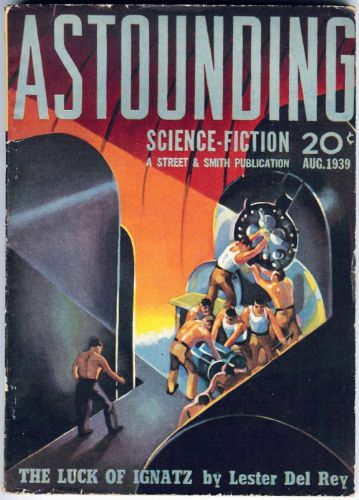
Astounding Science-Fiction, August 1939 - British edition
1939
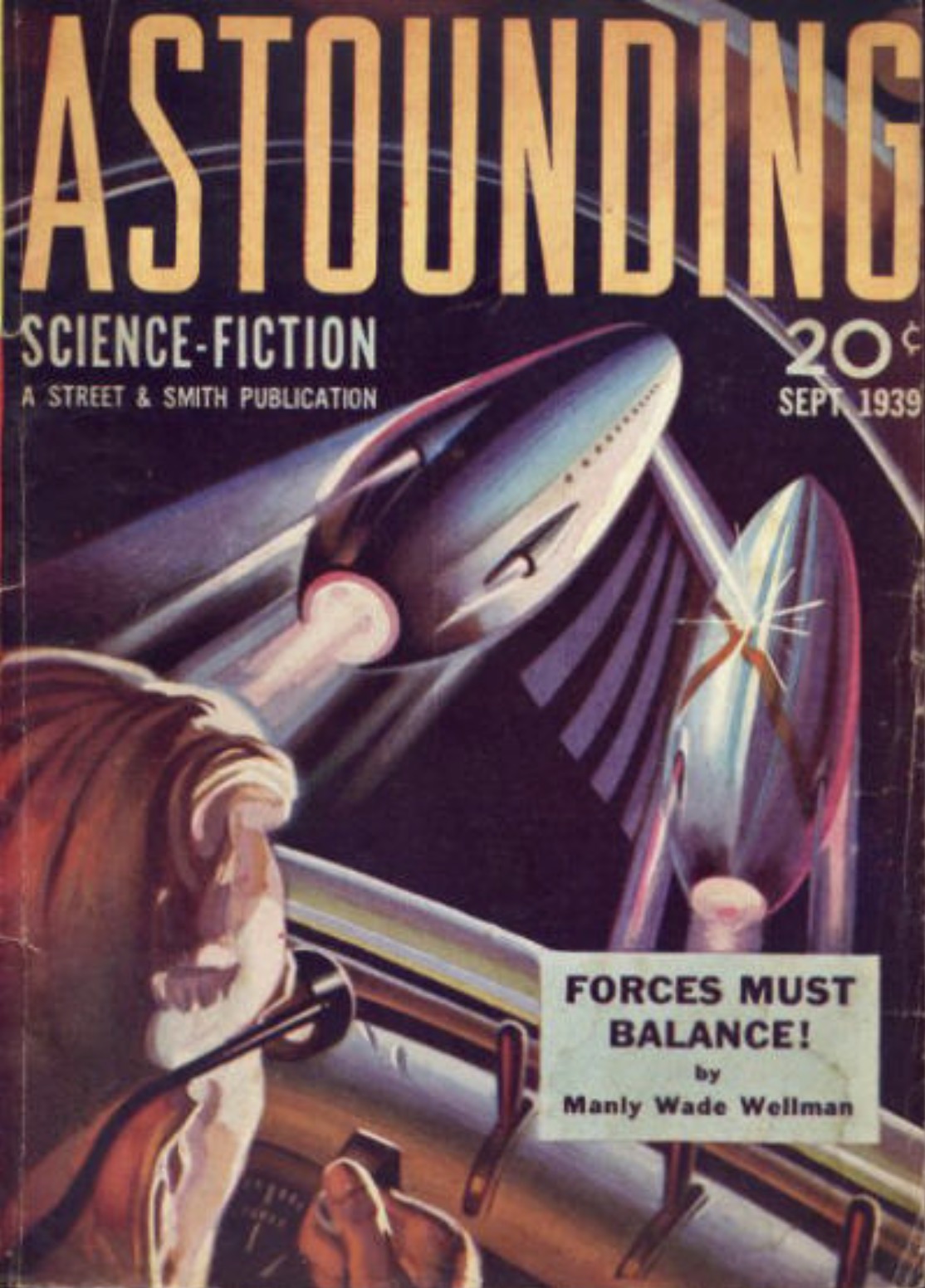
Astounding Science-Fiction, September 1939 - British edition
1939
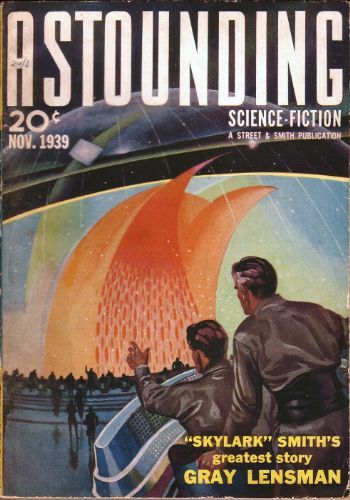
Astounding Science-Fiction, November 1939
1939
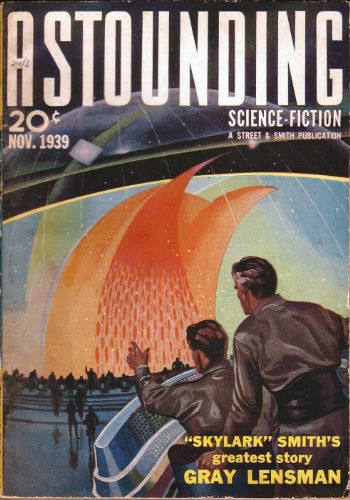
Astounding Science-Fiction, November 1939 - British edition
1939
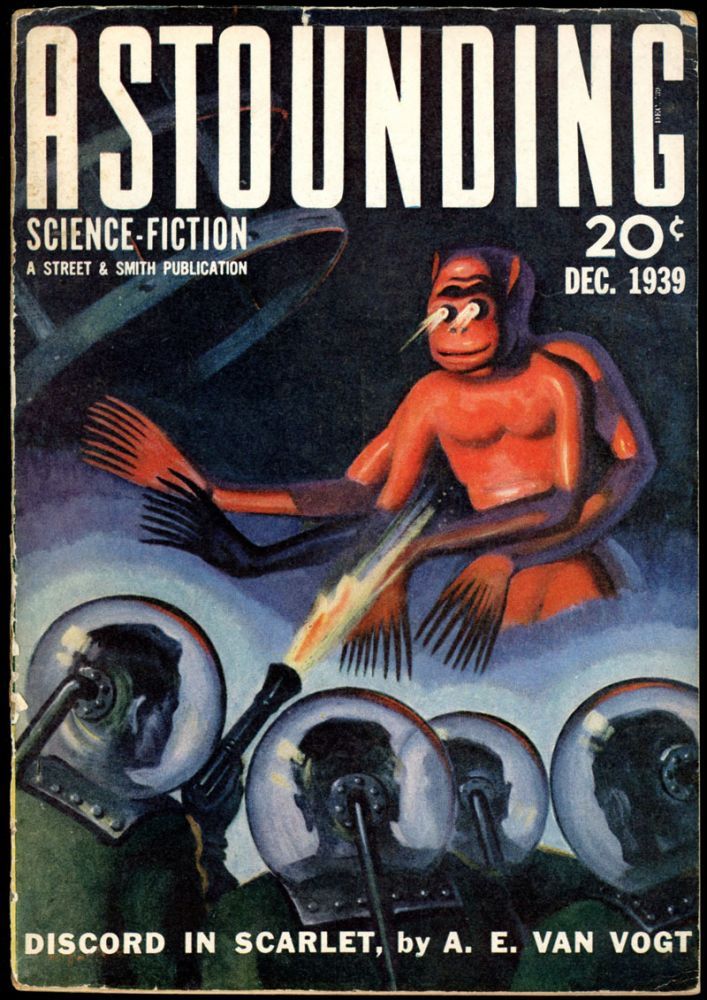
Astounding Science-Fiction, December 1939
1939
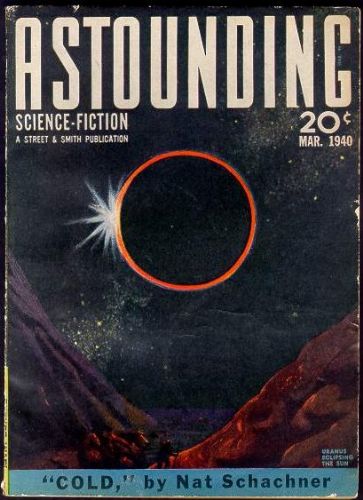
Astounding Science-Fiction, March 1940
1940
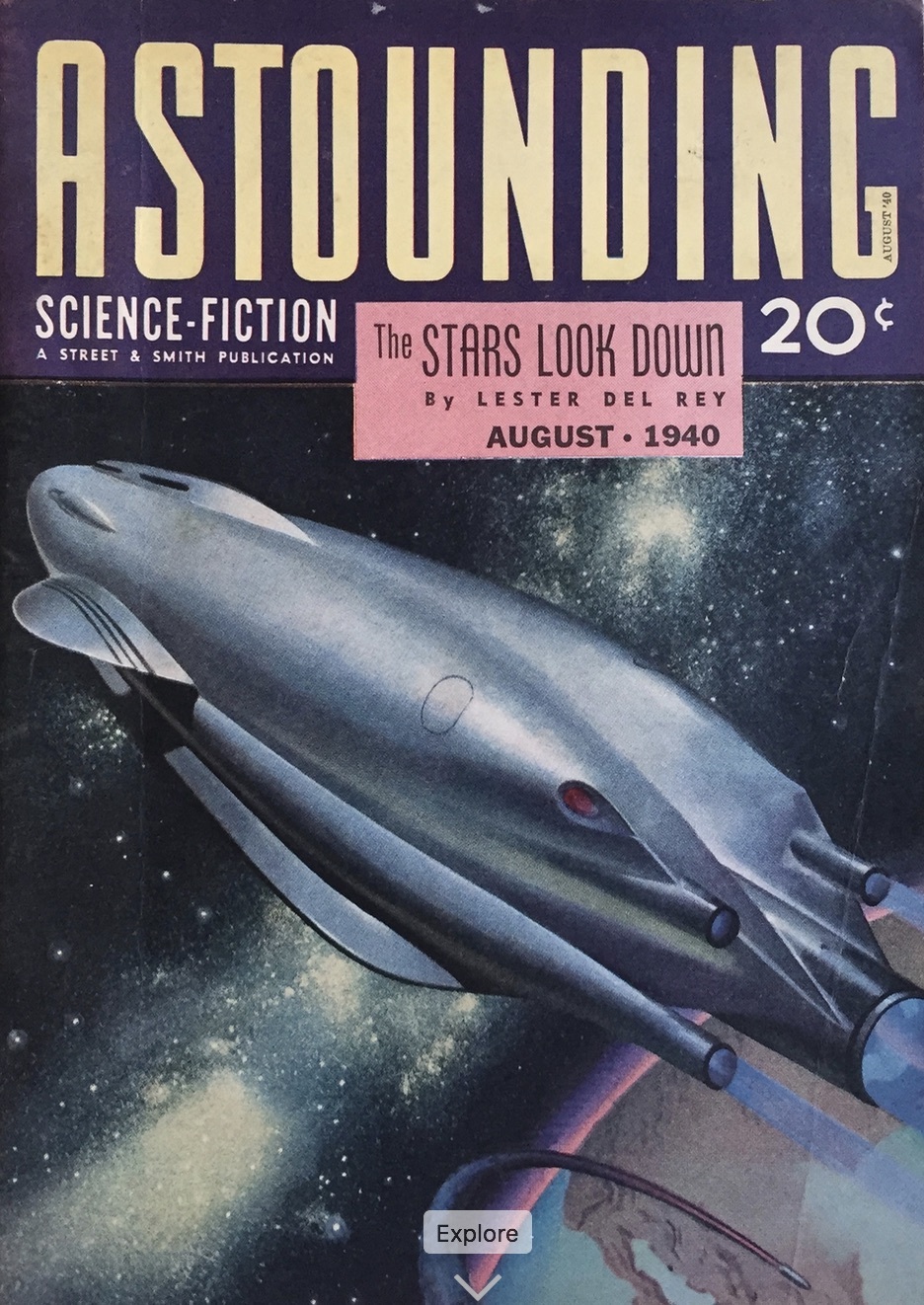
Astounding Science-Fiction, August 1940
1940
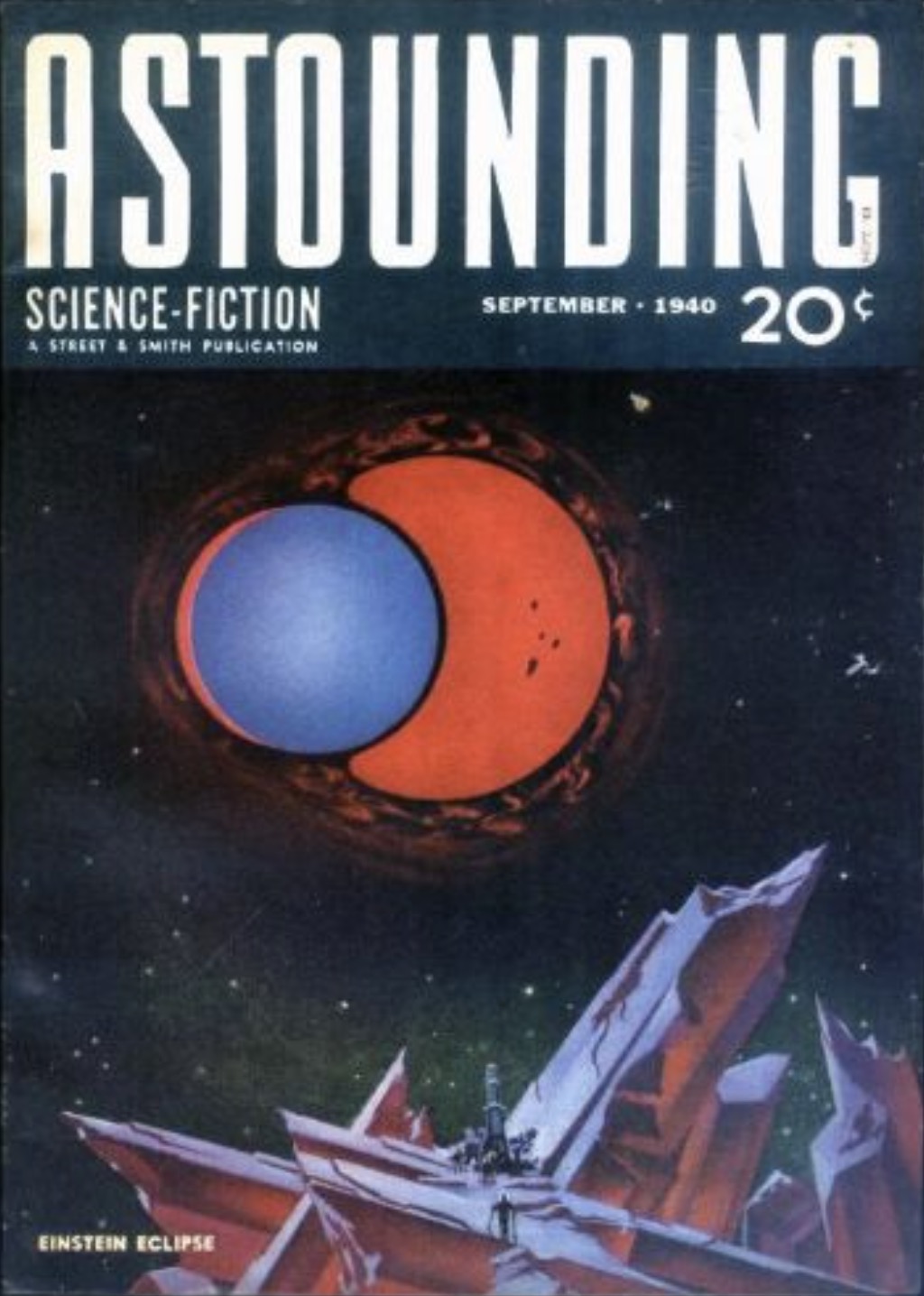
Astounding Science-Fiction, September 1940
1940
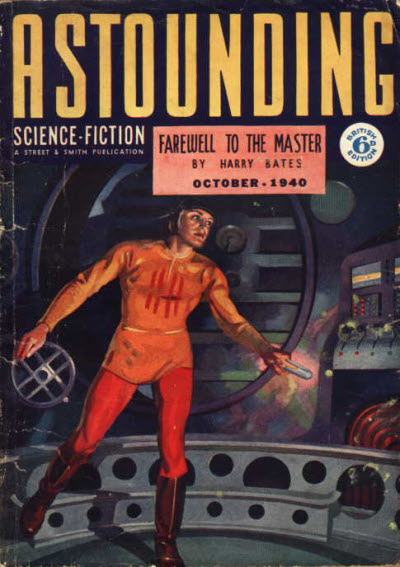
Astounding Science-Fiction, October 1940 - British edition
1940

Astounding Science-Fiction, December 1940
1940
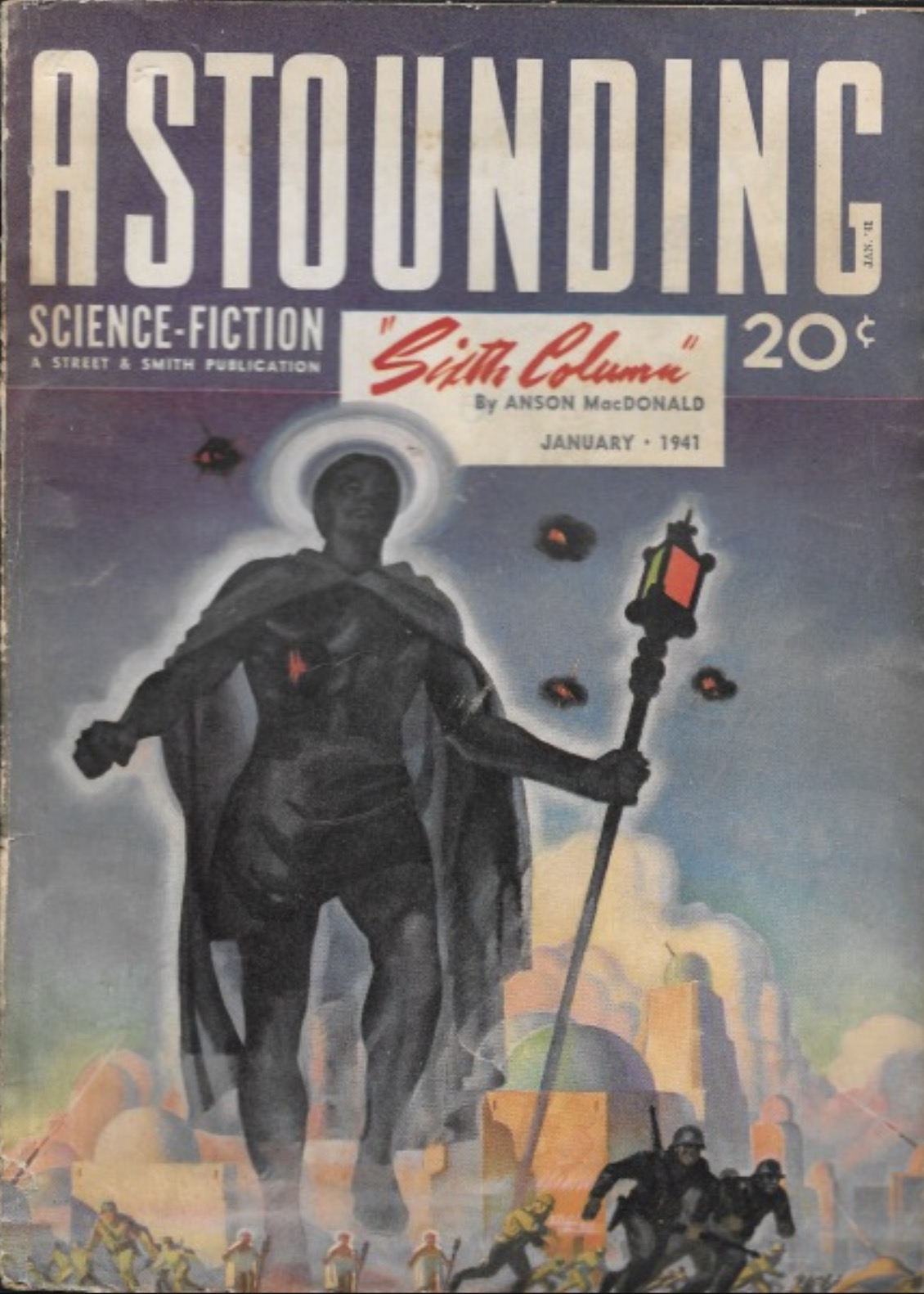
Astounding Science-Fiction, January 1941
1941
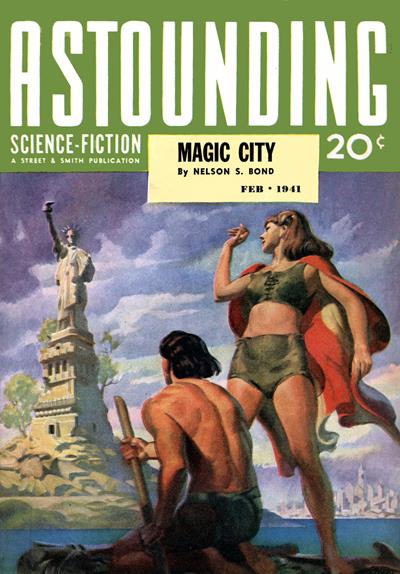
Astounding Science-Fiction, February 1941
1941
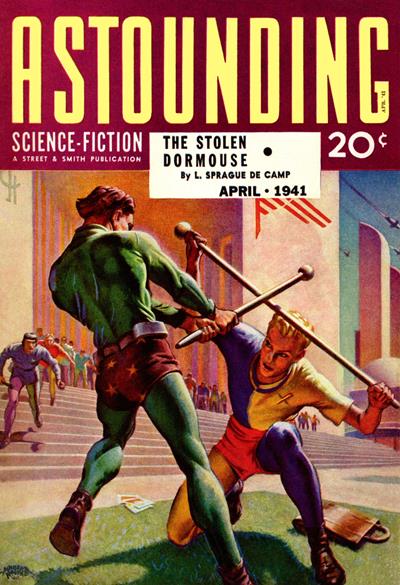
Astounding Science-Fiction, April 1941
1941
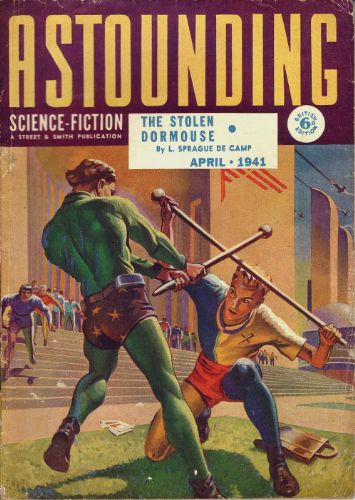
Astounding Science-Fiction, April 1941 - British edition
1941
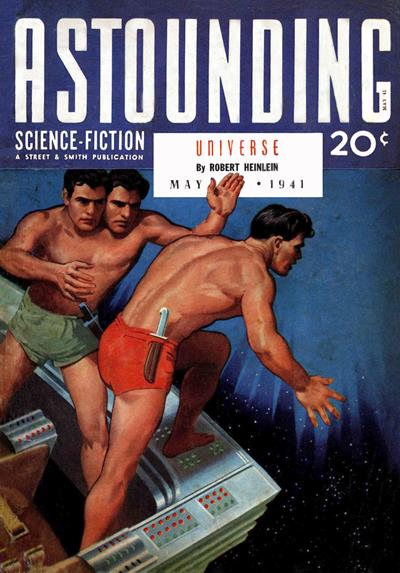
Astounding Science-Fiction, May 1941
1941
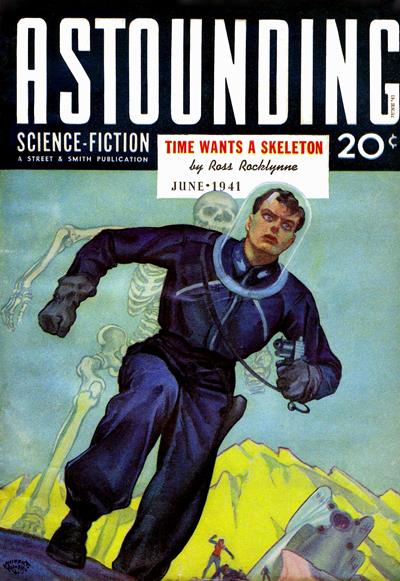
Astounding Science-Fiction, June 1941
1941
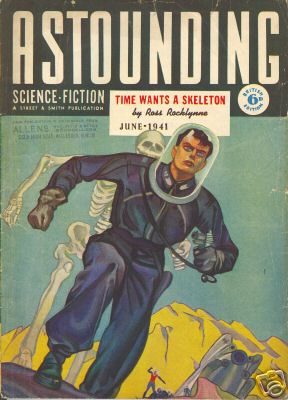
Astounding Science-Fiction, June 1941 - British edition
1941
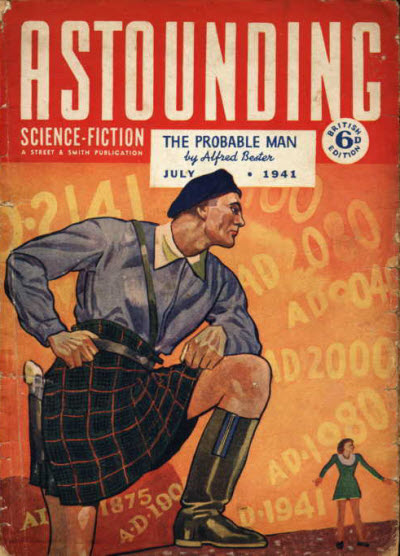
Astounding Science-Fiction, July 1941 - British edition
1941
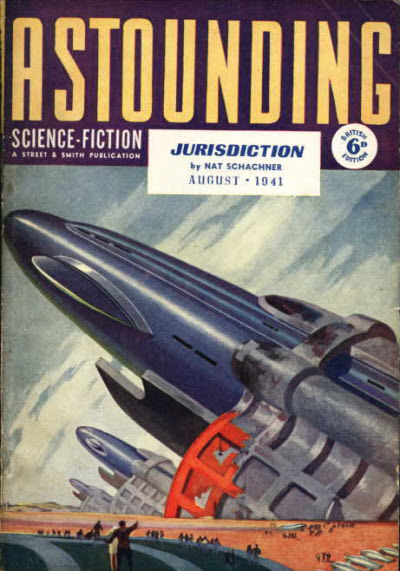
Astounding Science-Fiction, August 1941 - British edition
1941
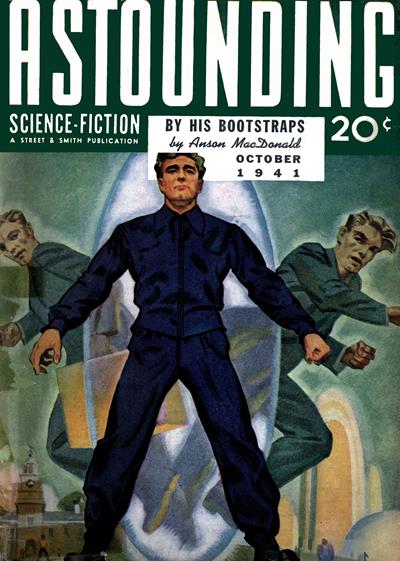
Astounding Science-Fiction, October 1941
1941
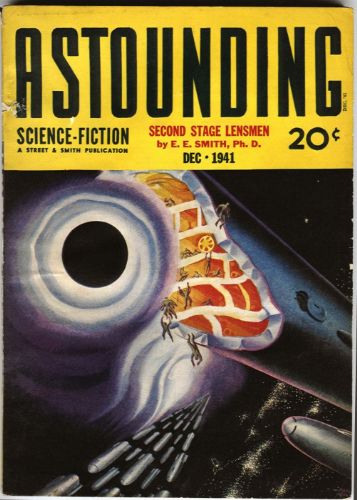
Astounding Science-Fiction, December 1941
1941
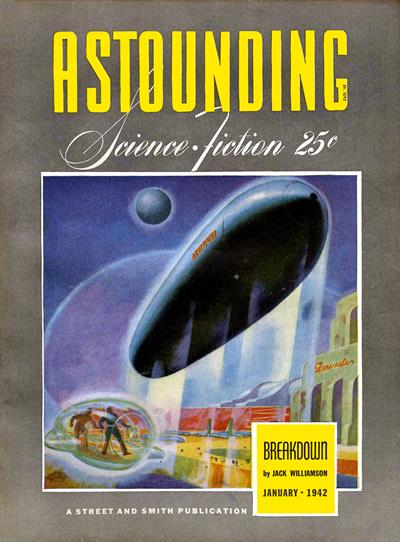
Astounding Science-Fiction, January 1942
1942

Astounding Science-Fiction, February 1942
1942
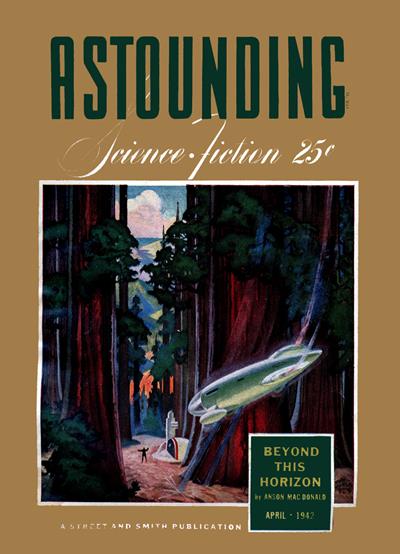
Astounding Science-Fiction, April 1942
1942
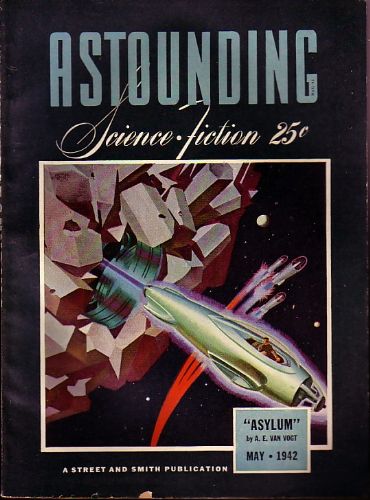
Astounding Science-Fiction, May 1942
1942
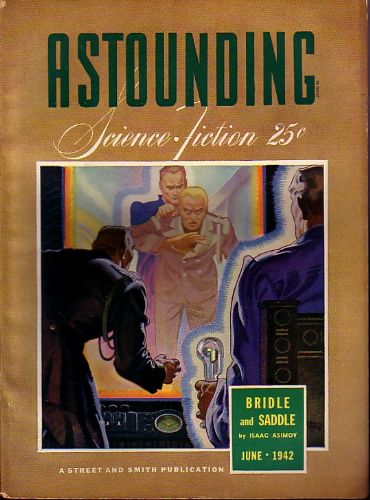
Astounding Science-Fiction, June 1942
1942
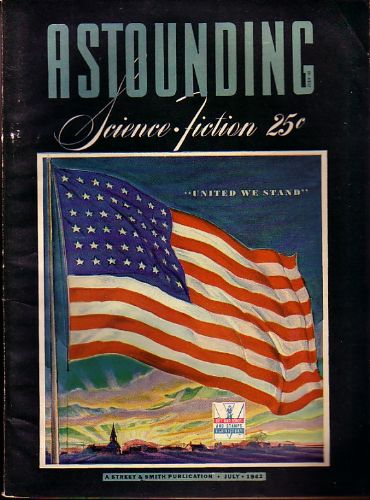
Astounding Science-Fiction, July 1942
1942
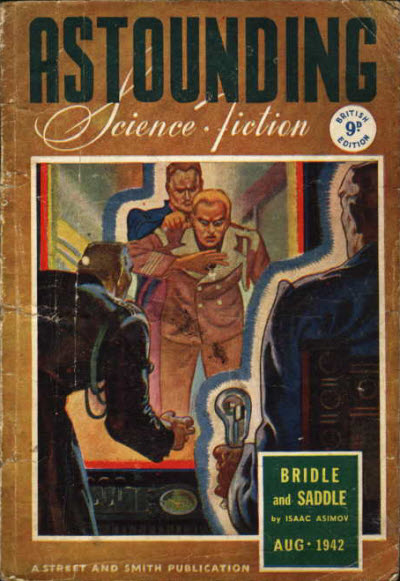
Astounding Science-Fiction, August 1942 - British edition
1942
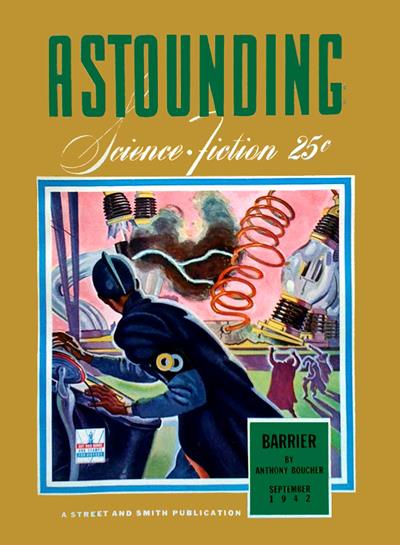
Astounding Science-Fiction, September 1942
1942

Astounding Science-Fiction, October 1942
1942
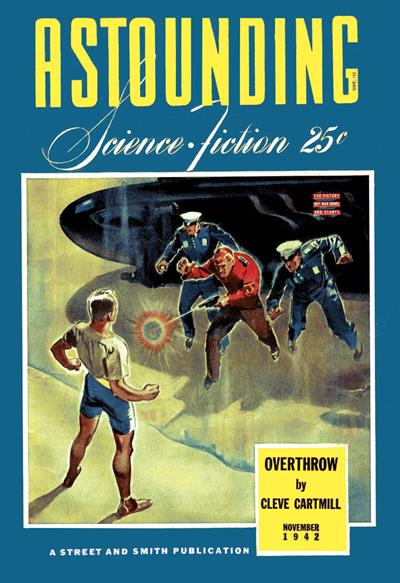
Astounding Science-Fiction, November 1942
1942

Astounding Science-Fiction, January 1943
1943
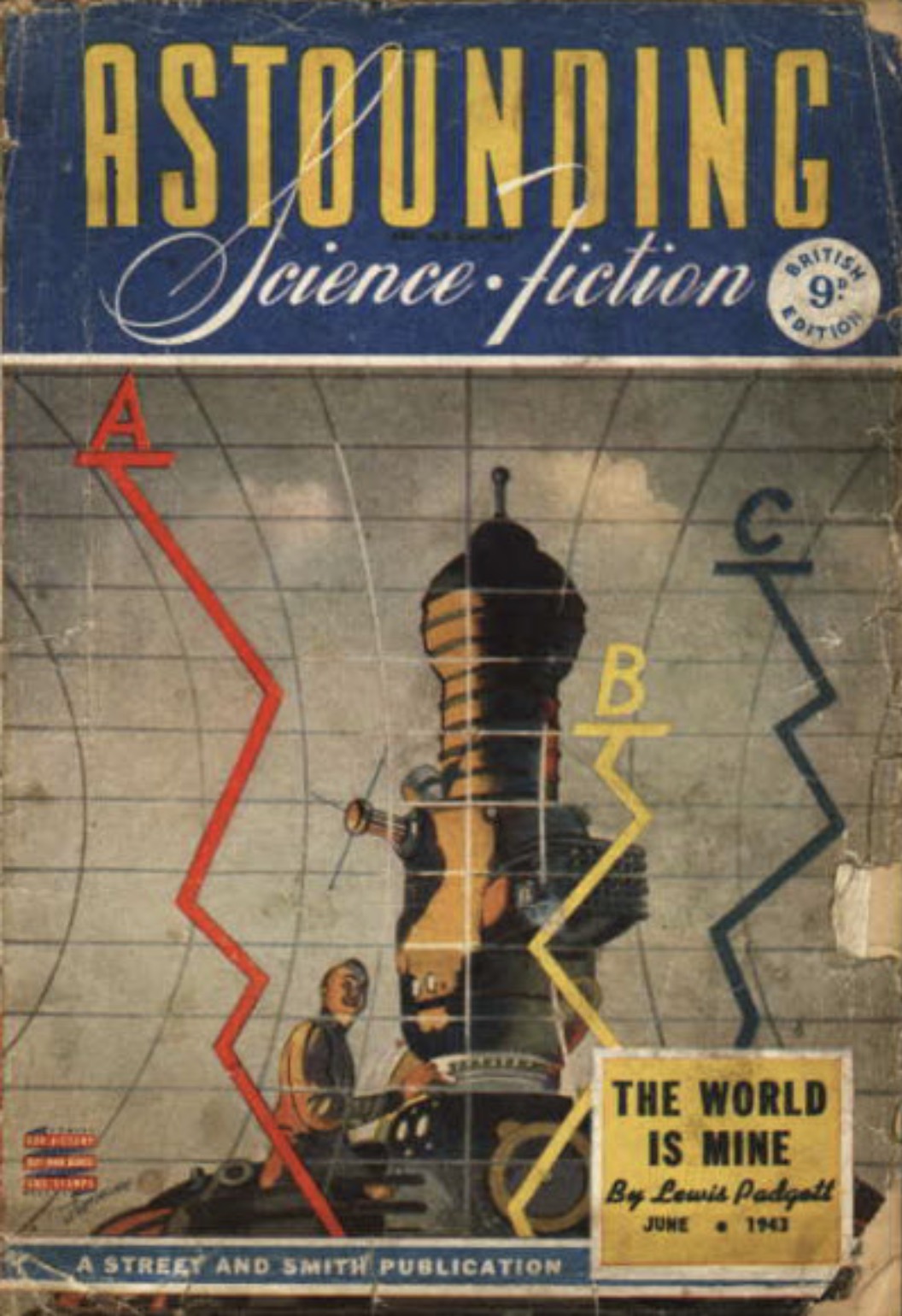
Astounding Science-Fiction, June 1943 - British edition
1943
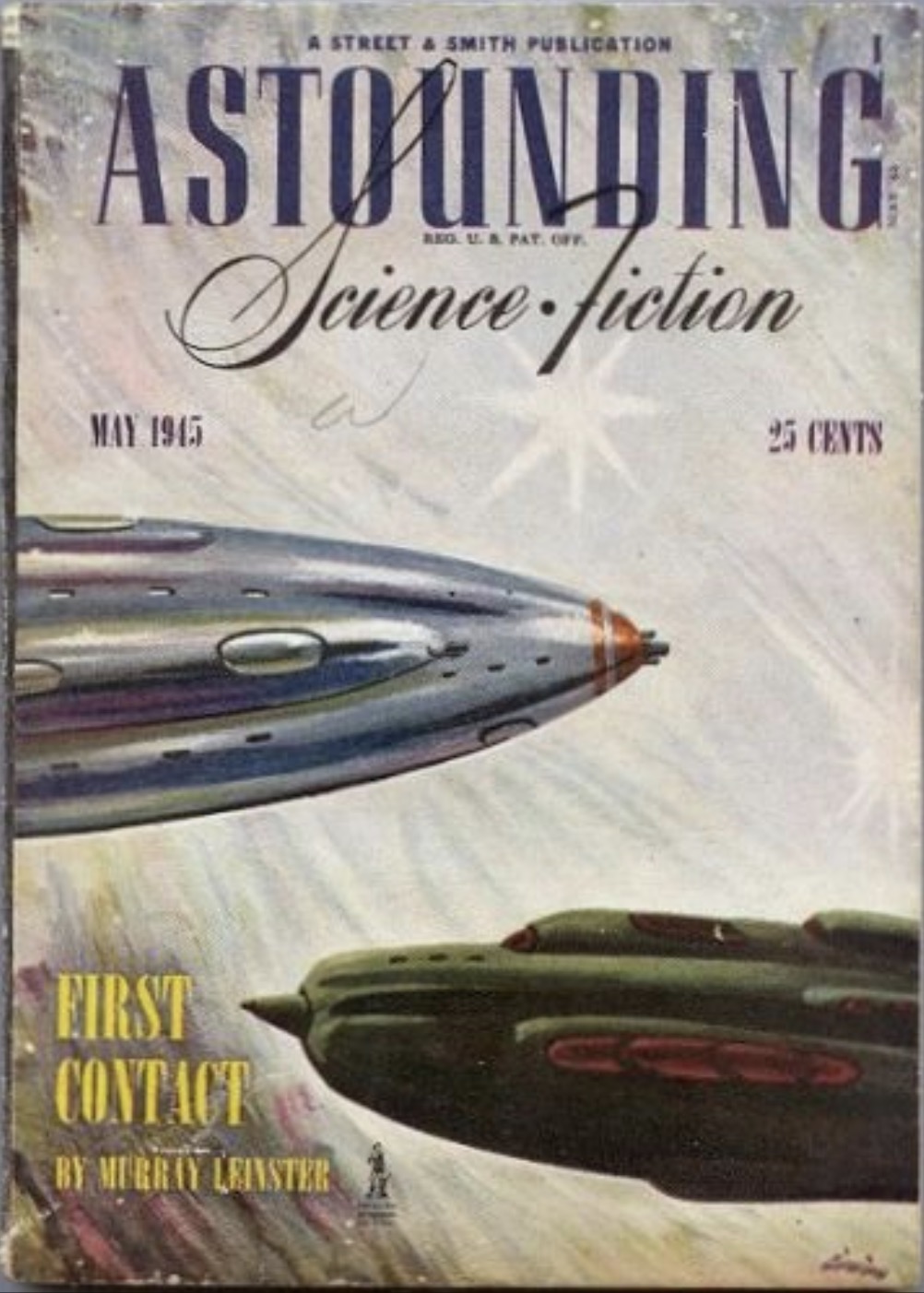
Astounding Science-Fiction, May 1945, Vol. 35, No. 3
1945
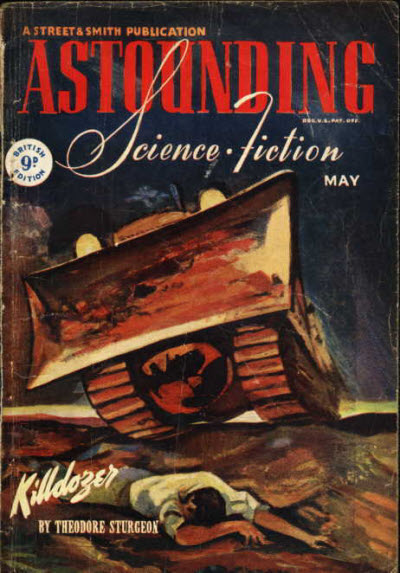
Astounding Science-Fiction, May 1945 - British edition
1945
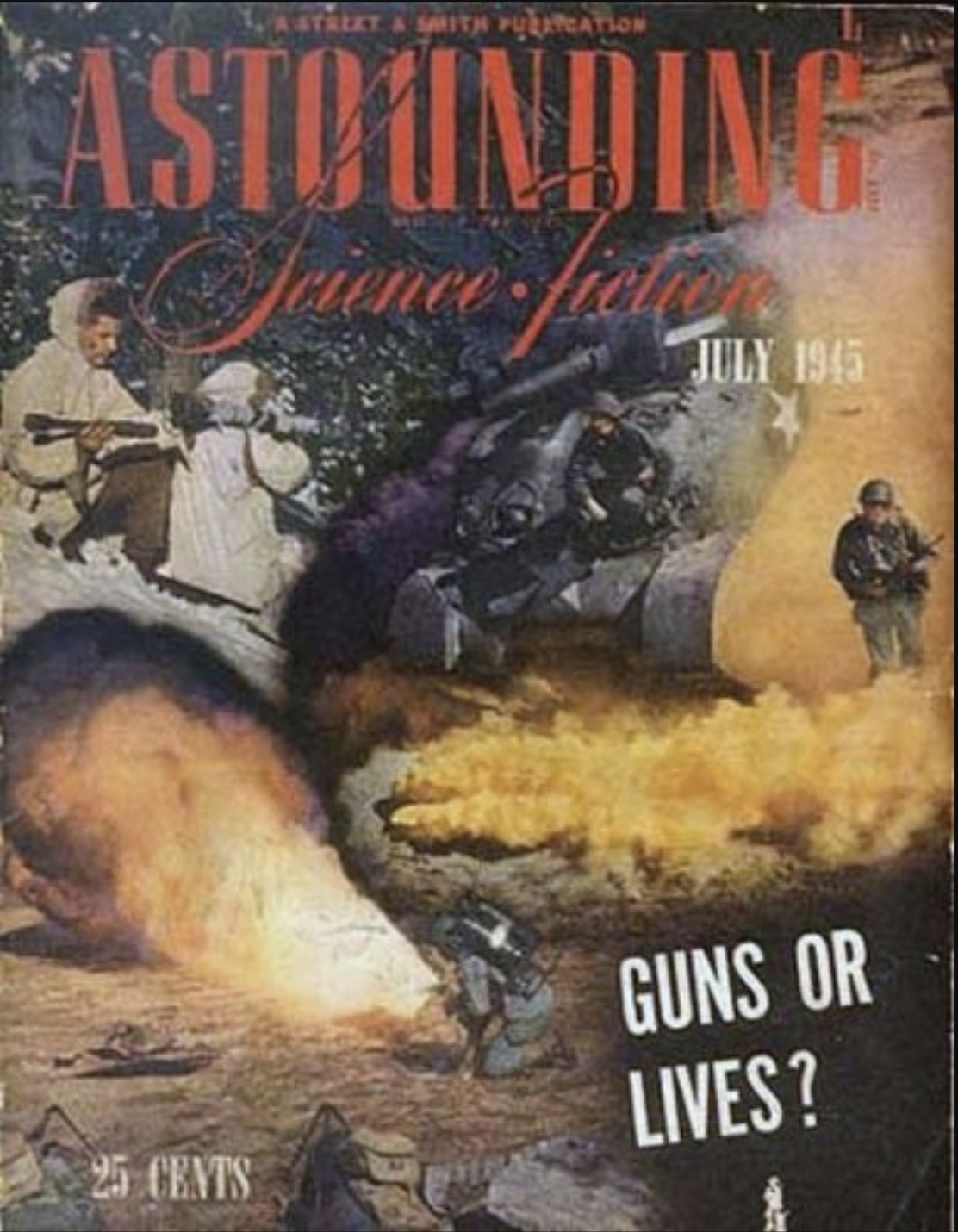
Astounding Science-Fiction, July 1945, Vol. 35, No. 5
1945
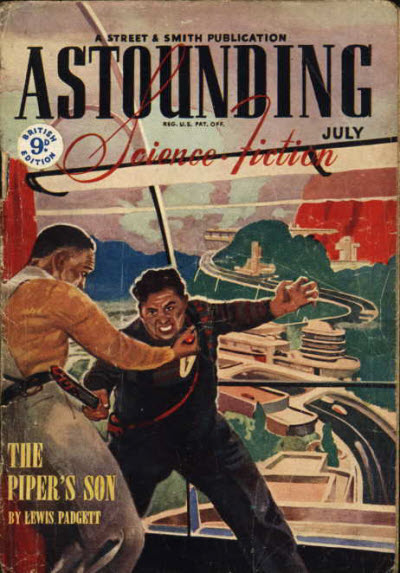
Astounding Science-Fiction, July 1945 - British edition
1945
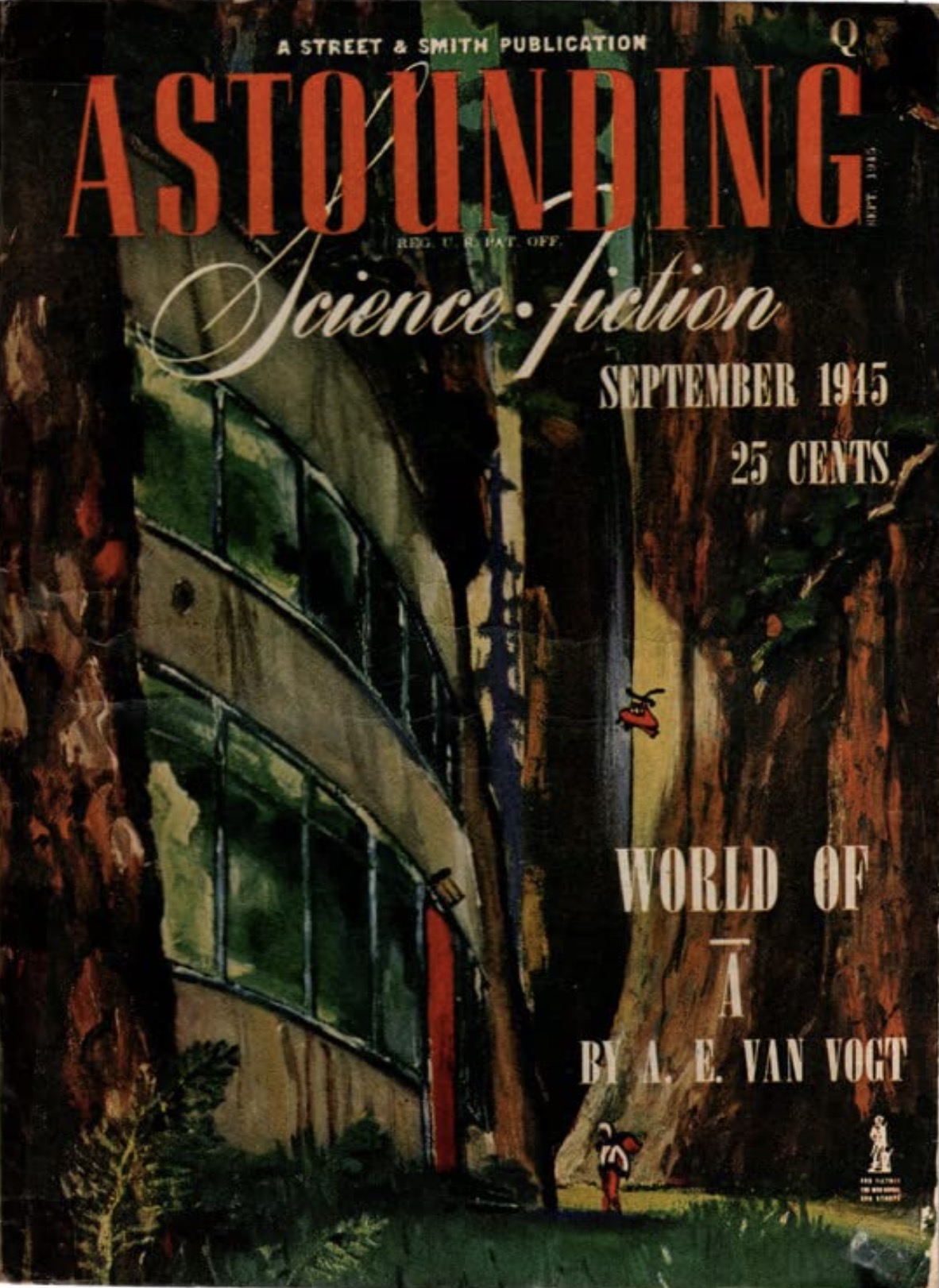
Astounding Science-Fiction, September 1945
1945
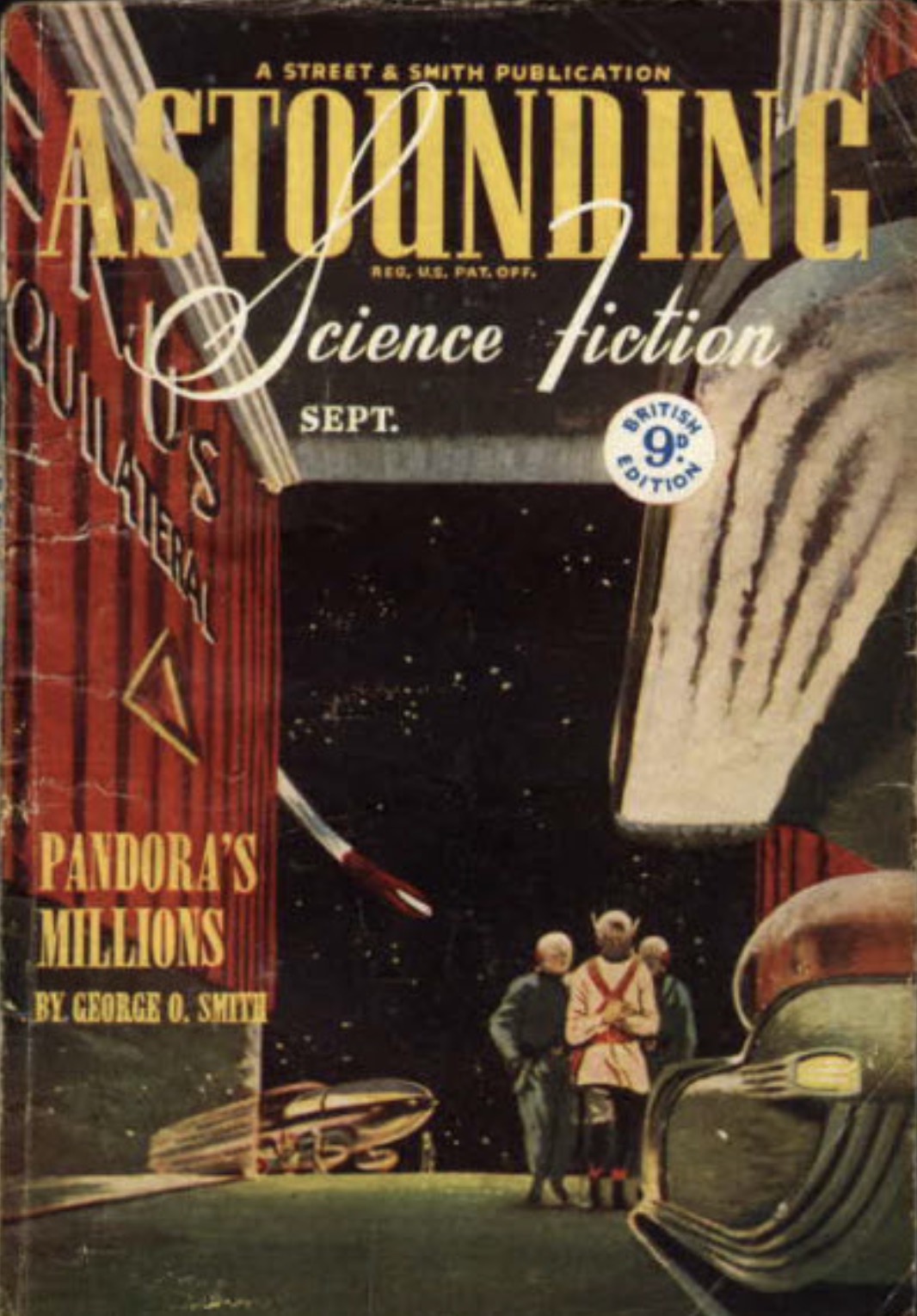
Astounding Science-Fiction, September 1945 - British edition
1945

Astounding Science-Fiction, July 1946
1946
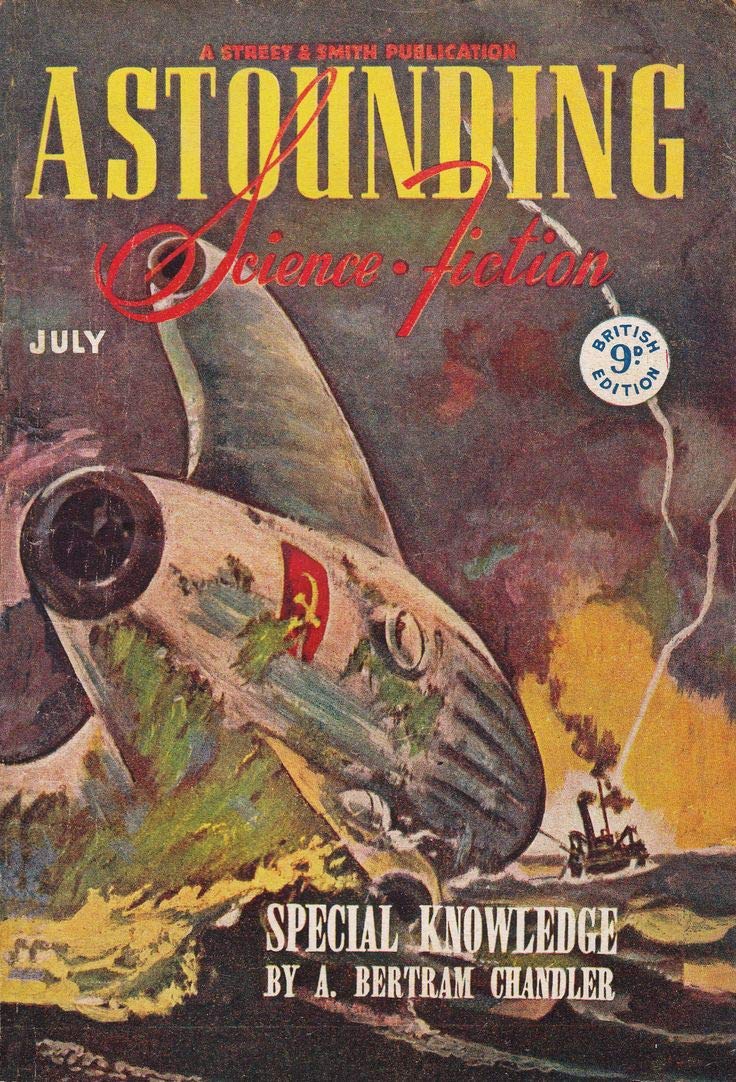
Astounding Science-Fiction, July 1946 - British edition
1946
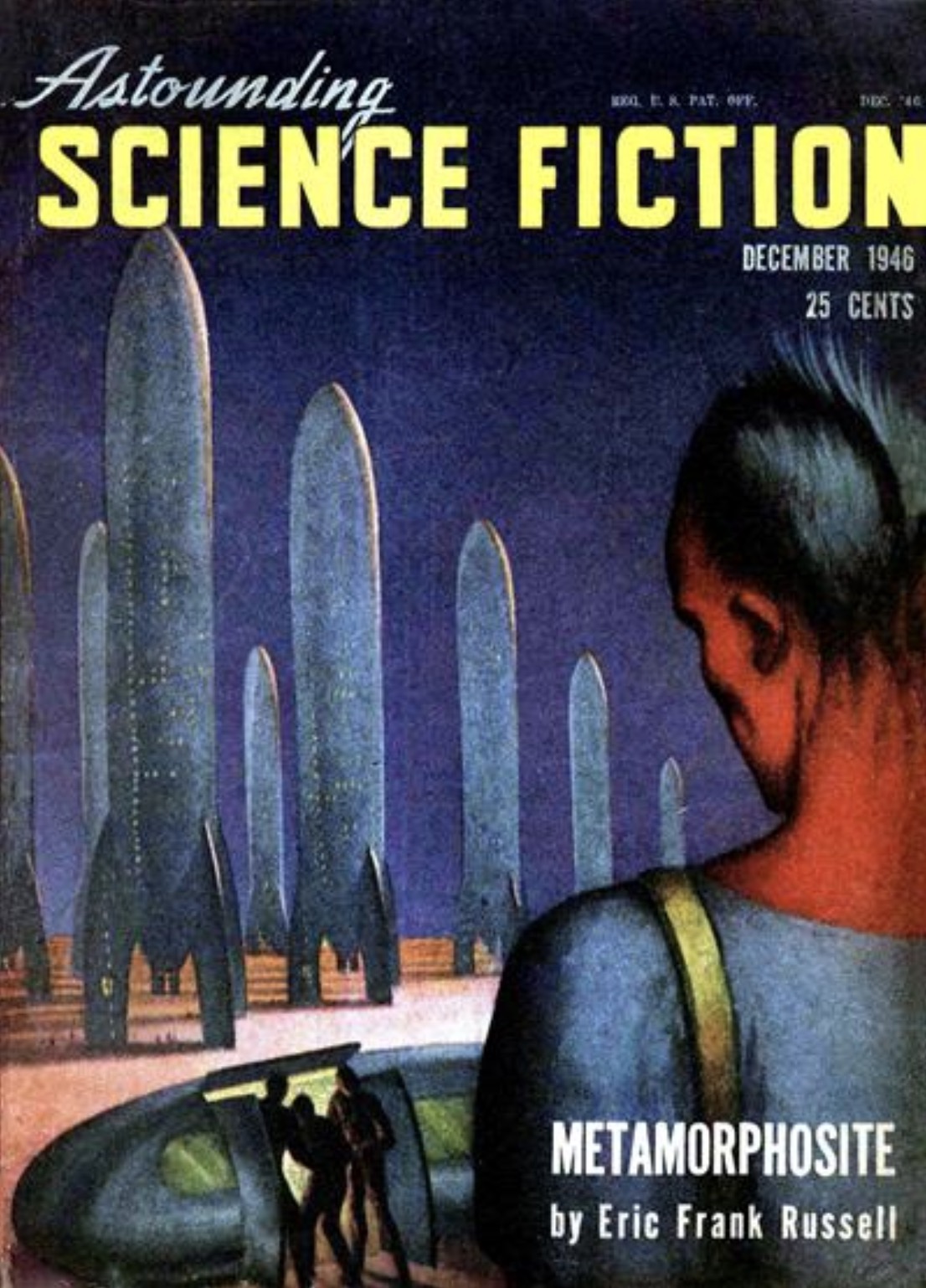
Astounding Science Fiction, December 1946
1946
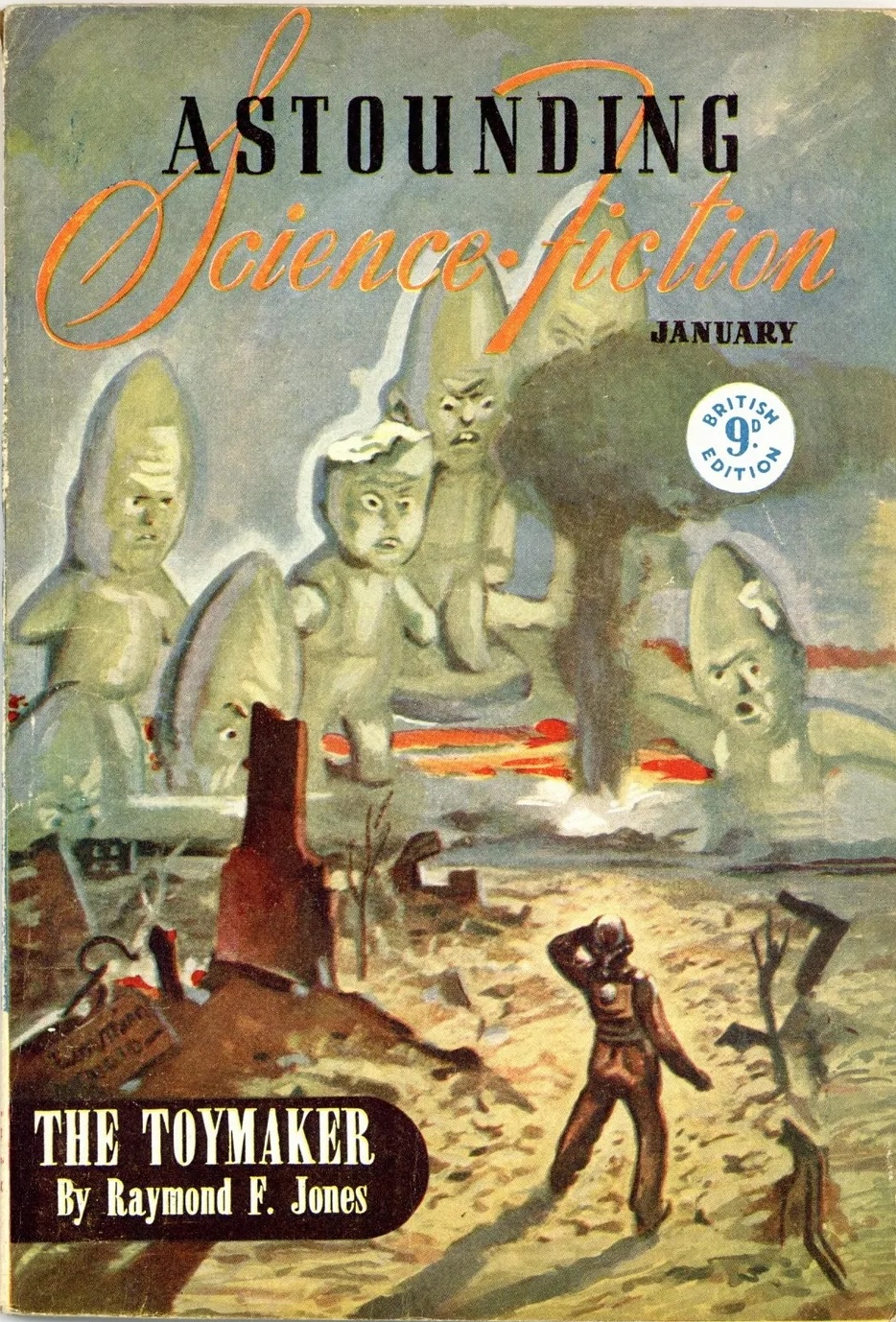
Astounding Science-Fiction, January 1947 - British edition
1947
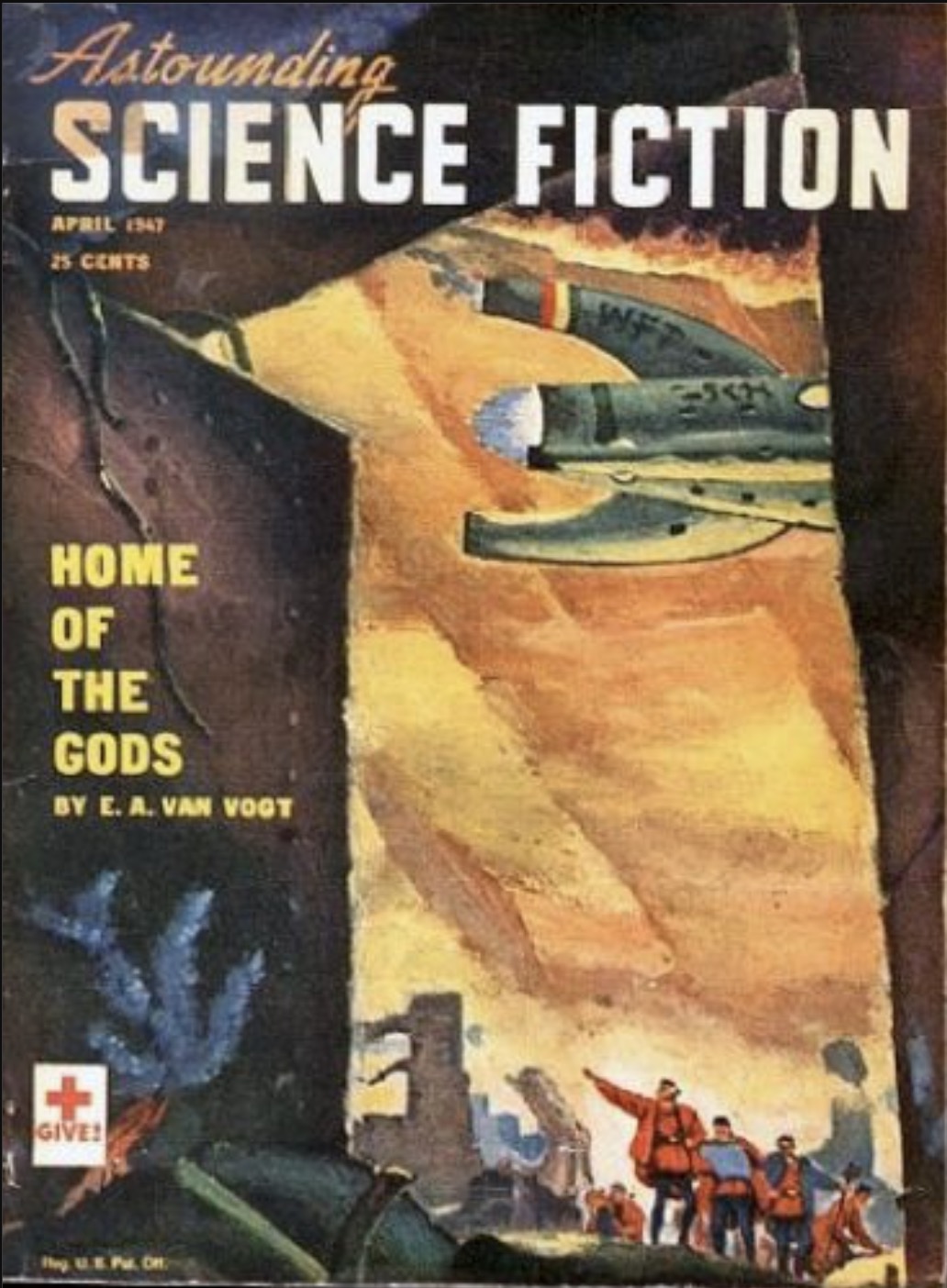
Astounding Science Fiction, April 1947
1947
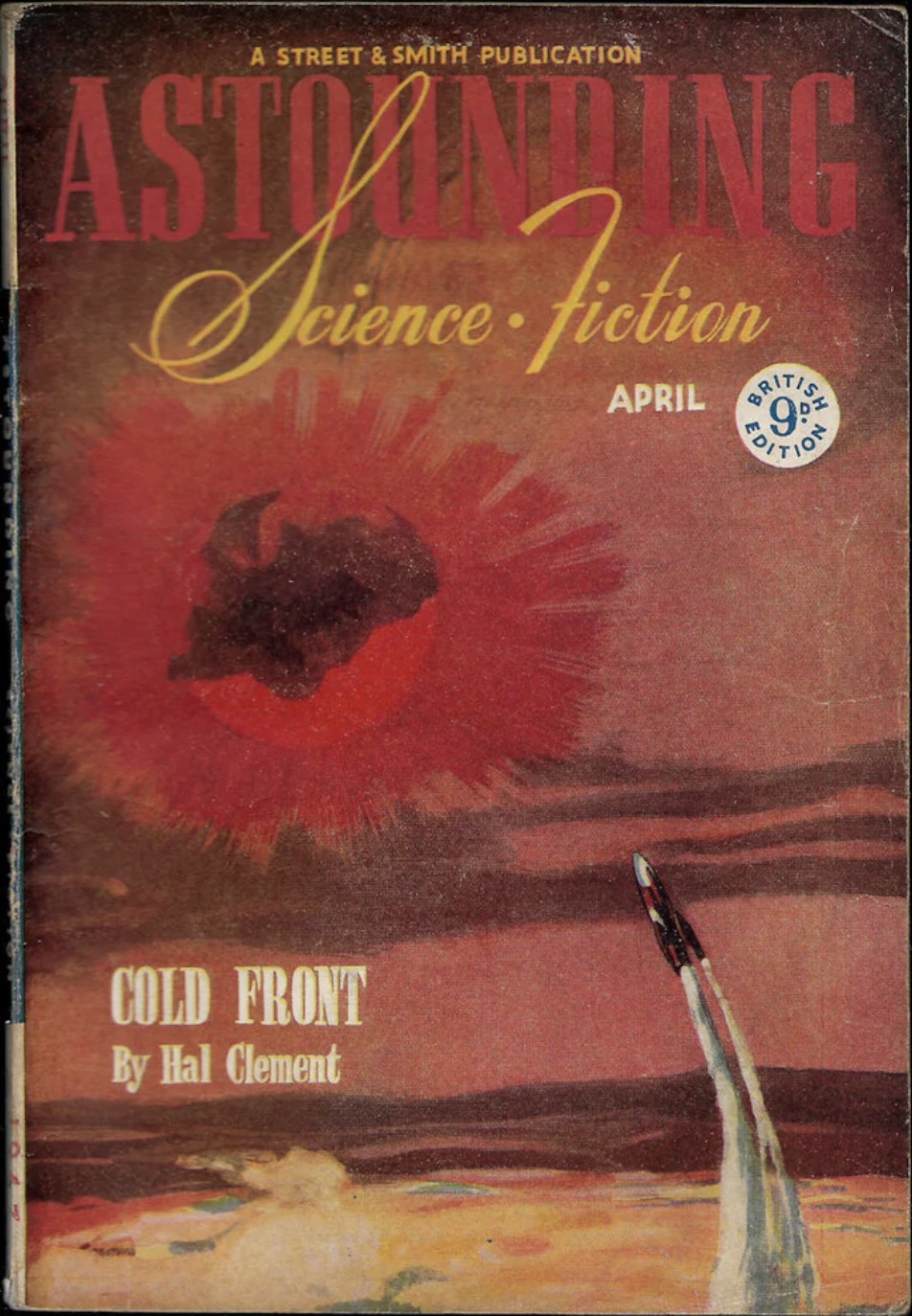
Astounding Science-Fiction, April 1947 - British edition
1947
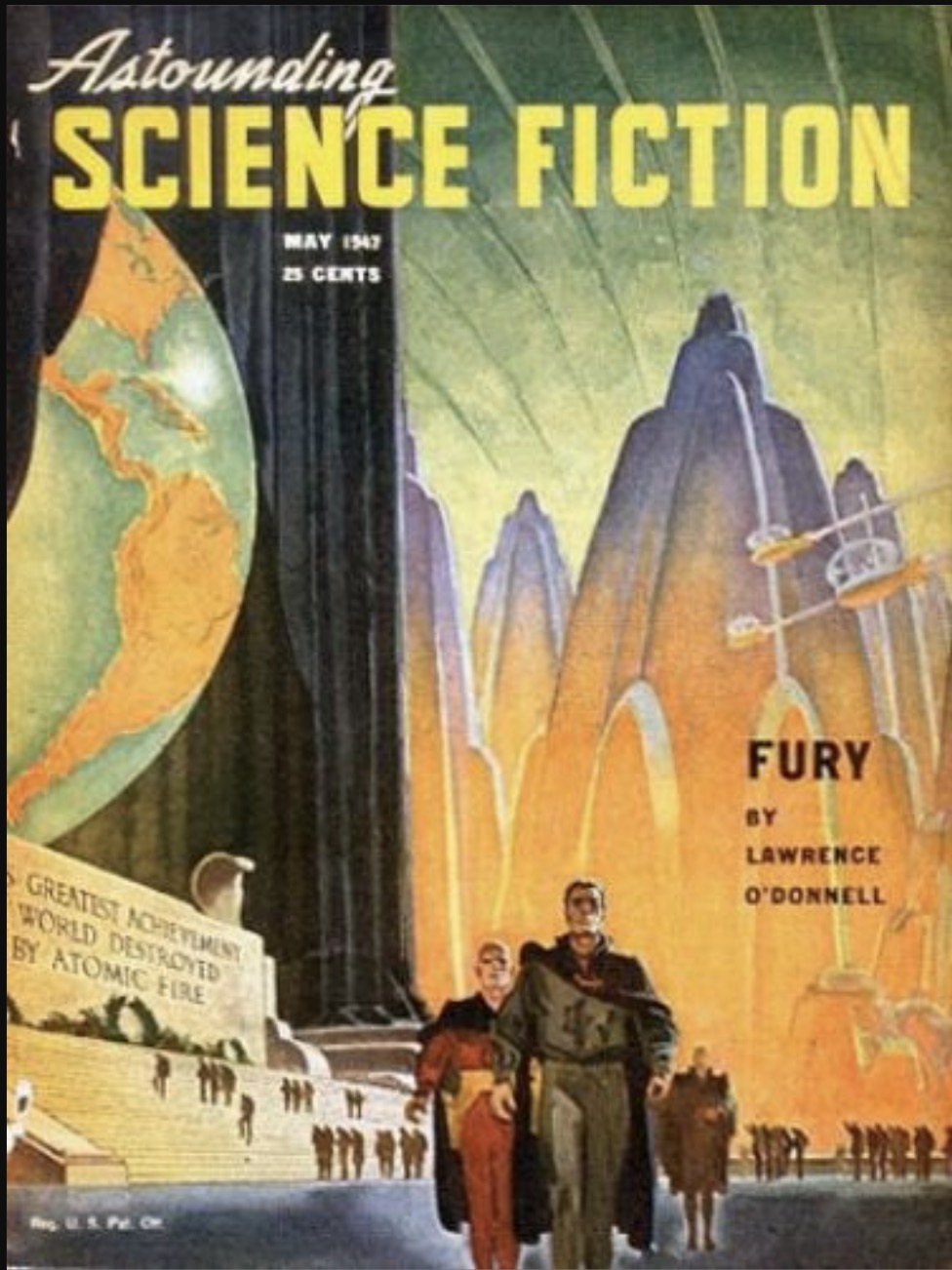
Astounding Science Fiction, May 1947
1947
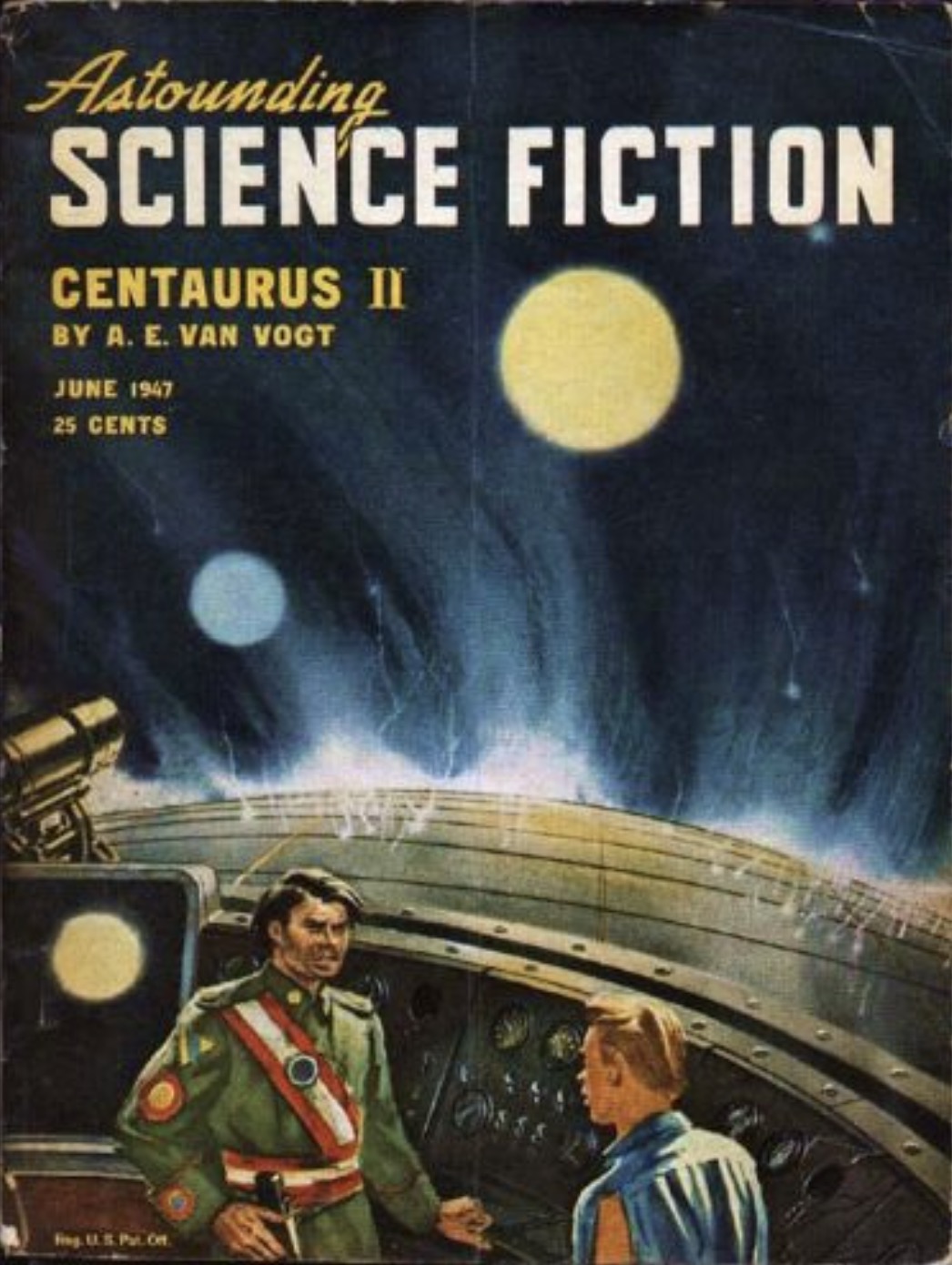
Astounding Science Fiction, June 1947
1947
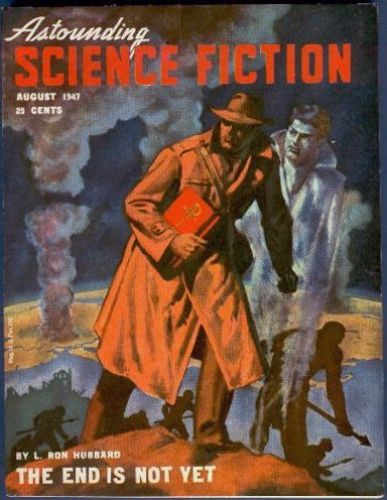
Astounding Science Fiction, August 1947
1947
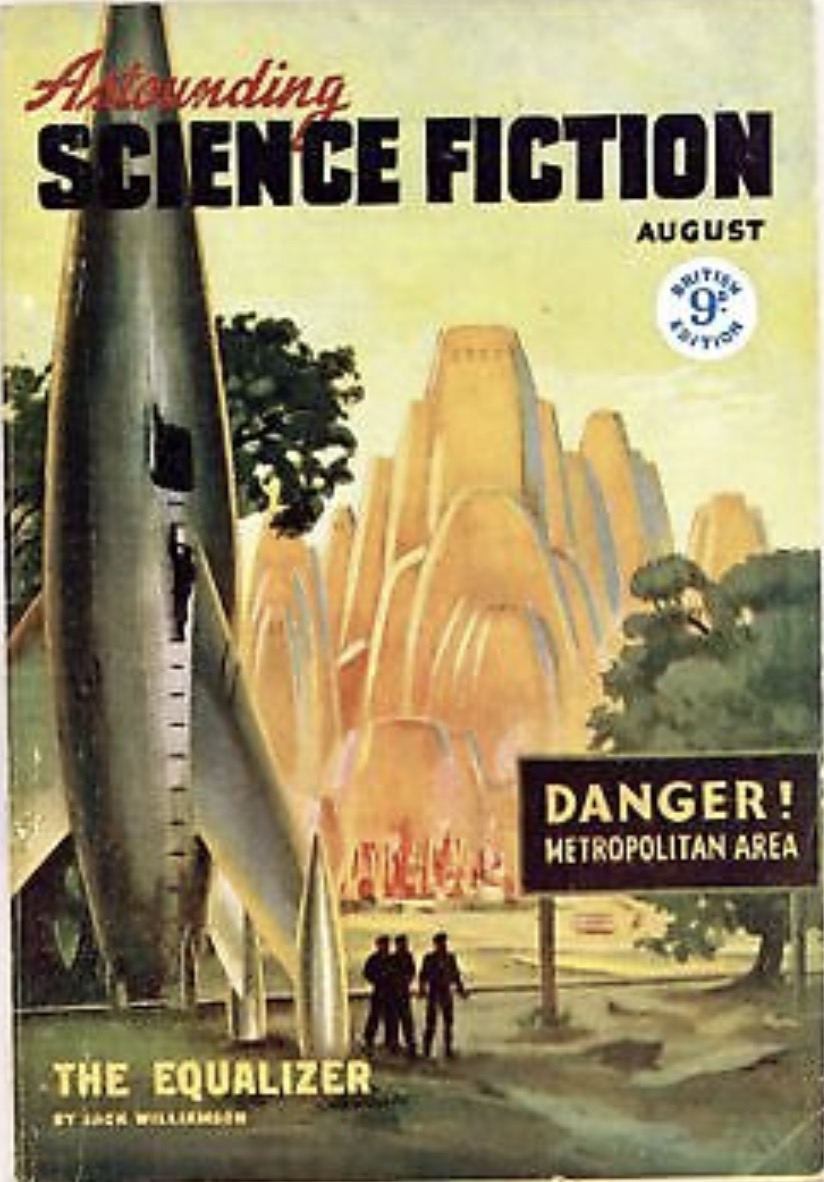
Astounding Science Fiction, August 1947 - British edition
1947
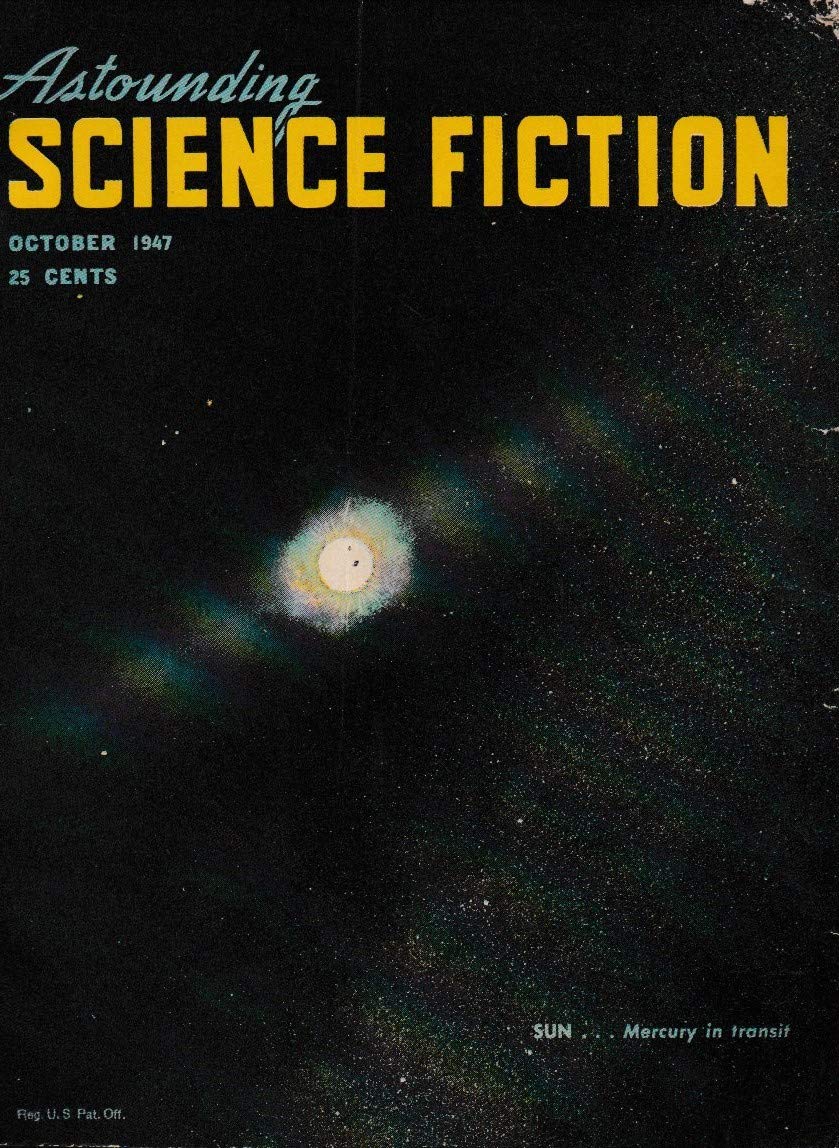
Astounding Science Fiction, October 1947
1947
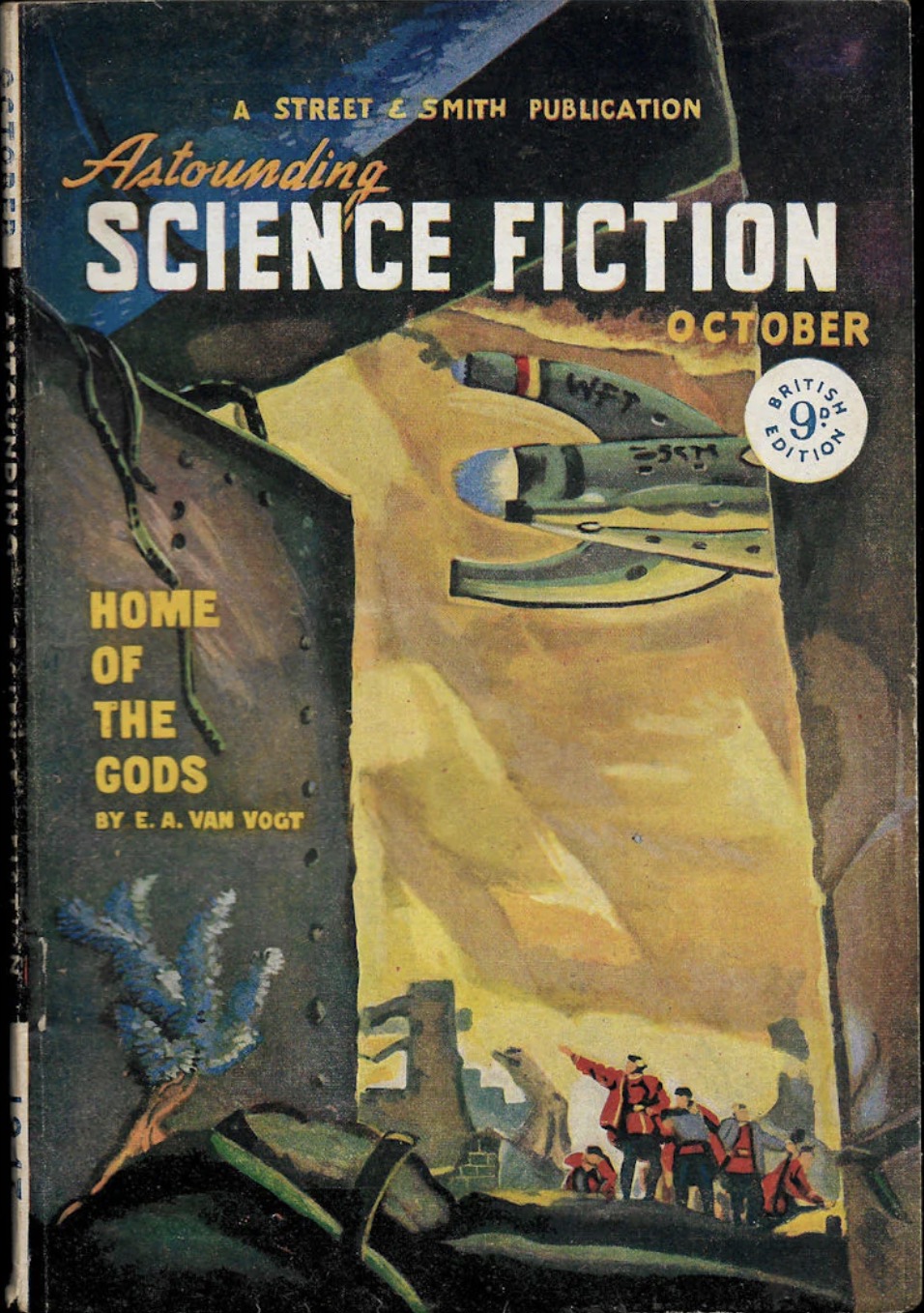
Astounding Science Fiction, October 1947 - British edition
1947
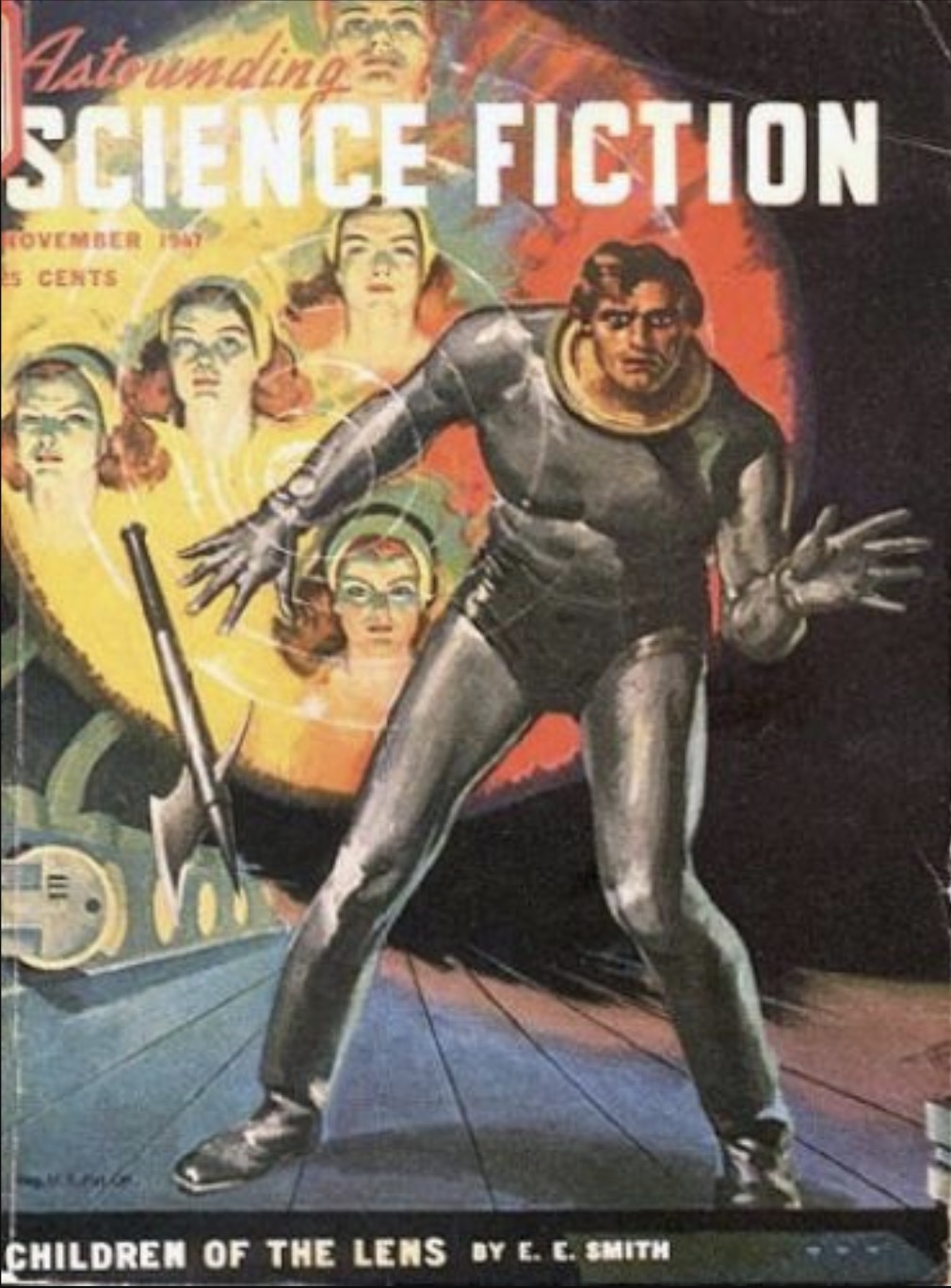
Astounding Science Fiction, November 1947
1947
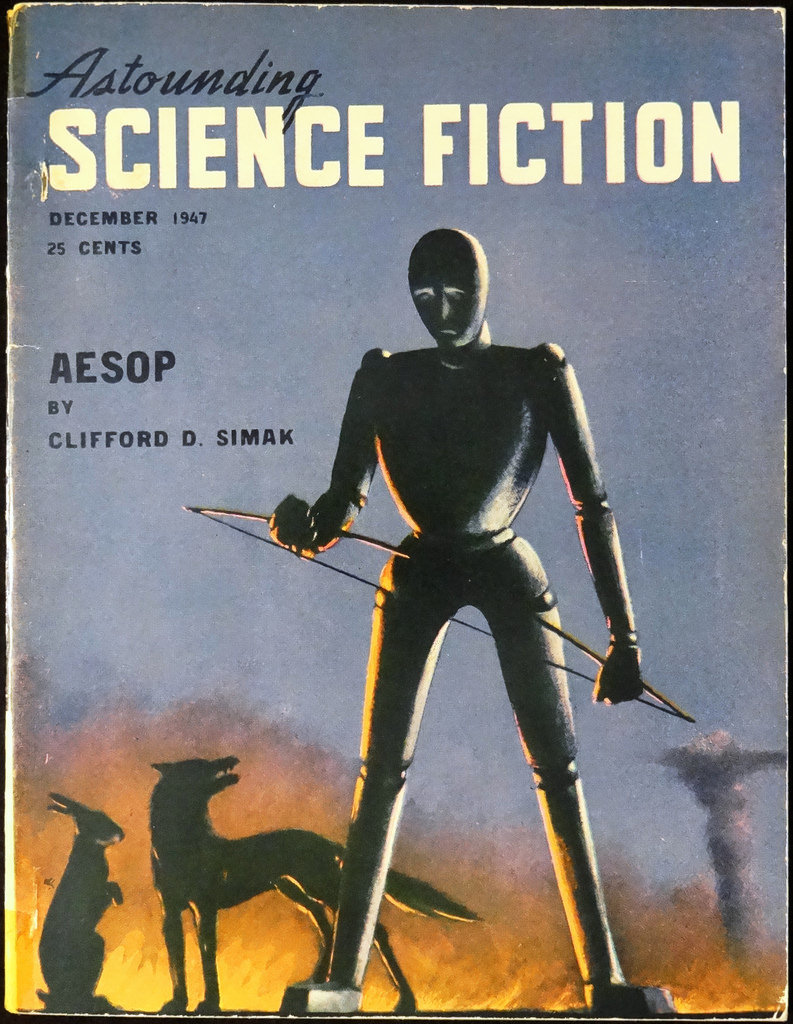
Astounding Science Fiction, December 1947
1947
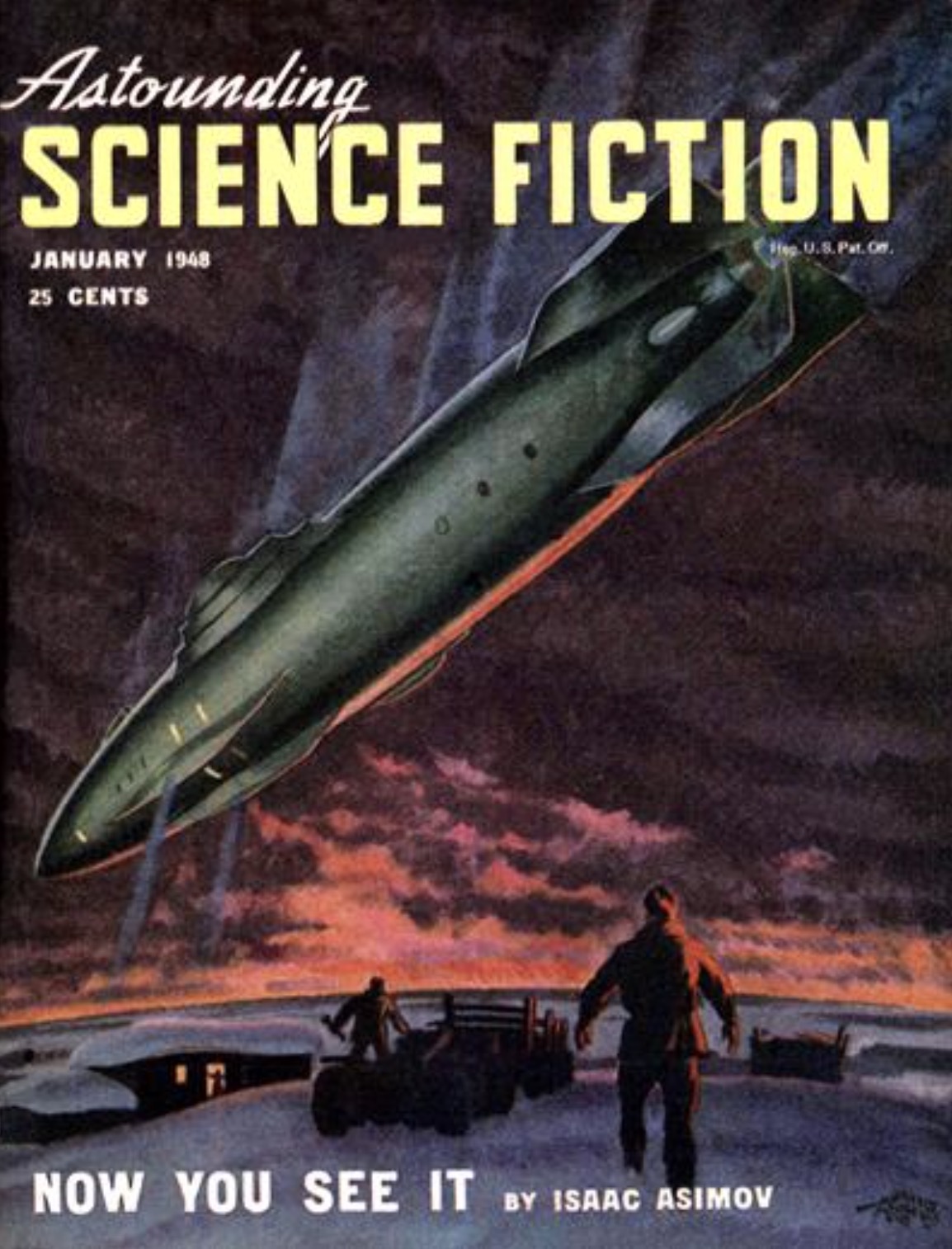
Astounding Science Fiction, January 1948
1948
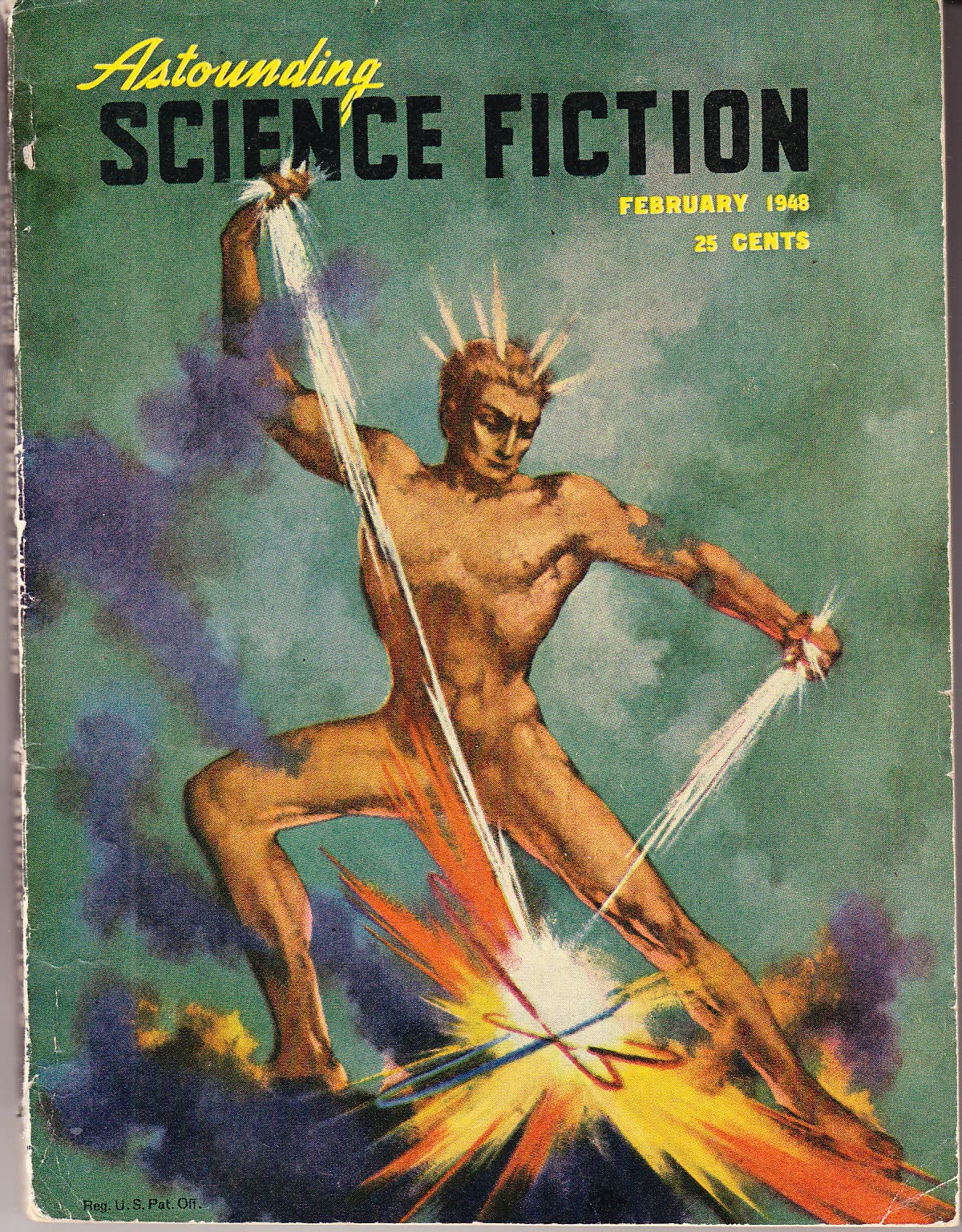
Astounding Science Fiction, February 1948
1948
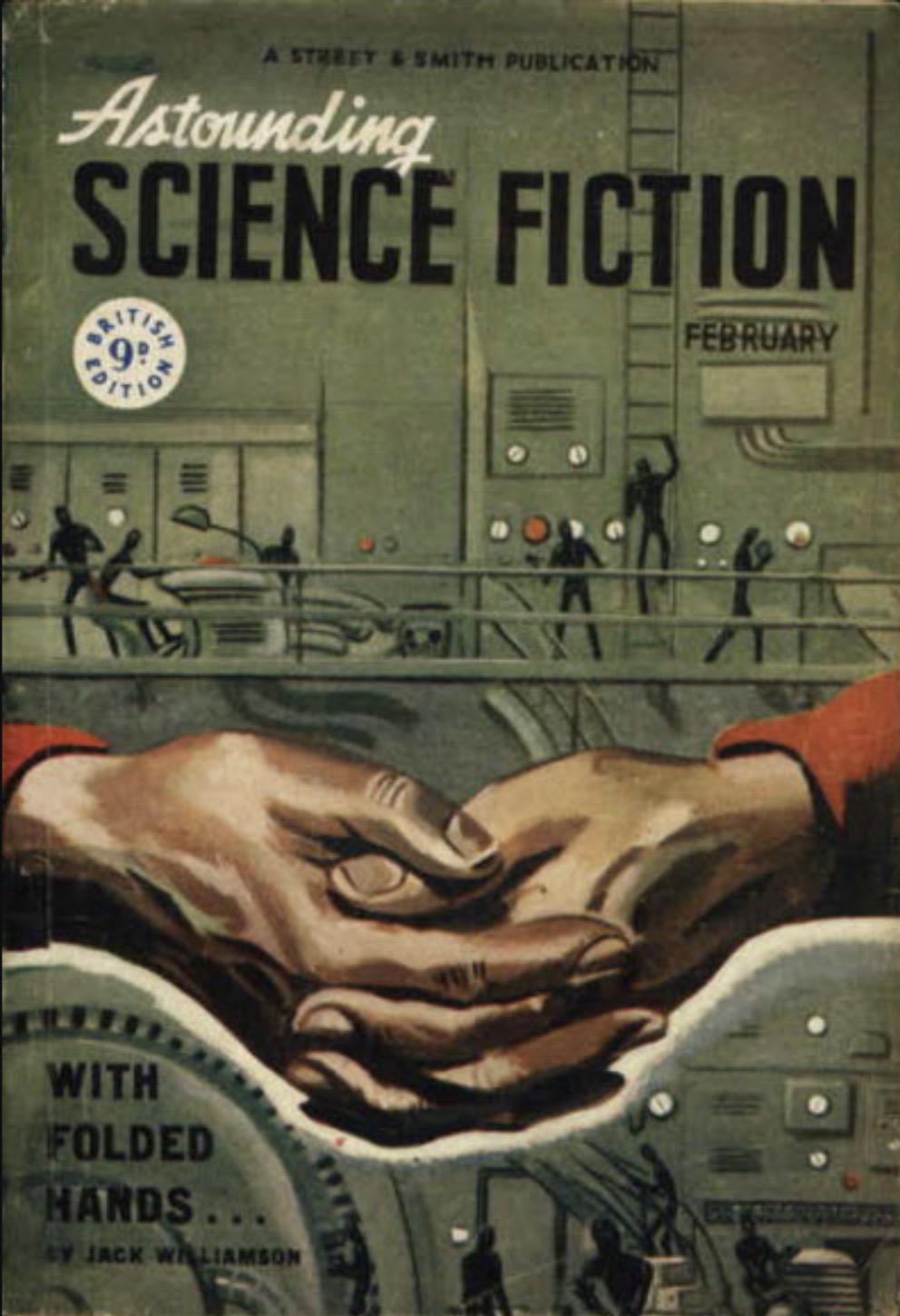
Astounding Science Fiction, February 1948 - British edition
1948
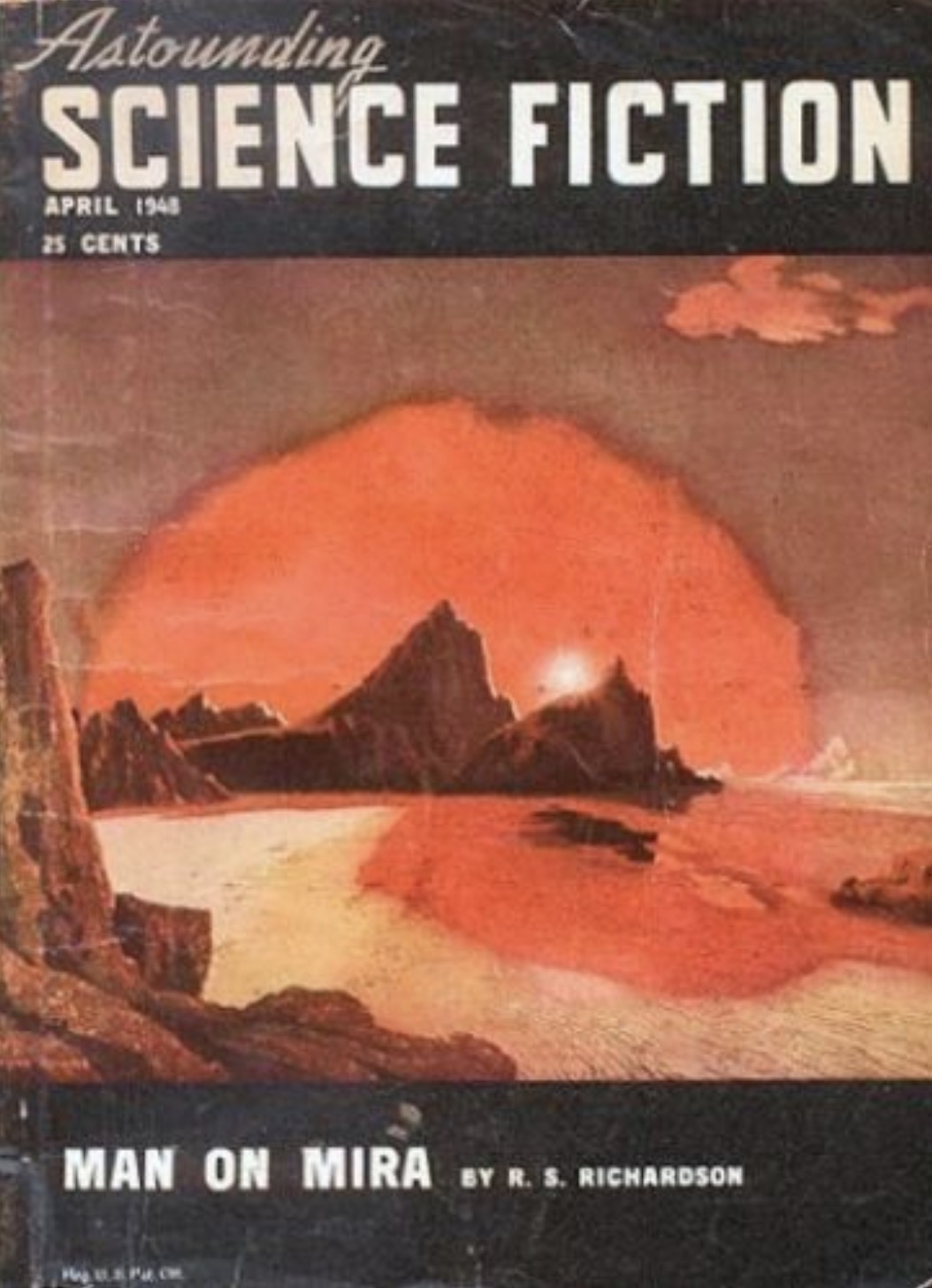
Astounding Science Fiction, April 1948
1948
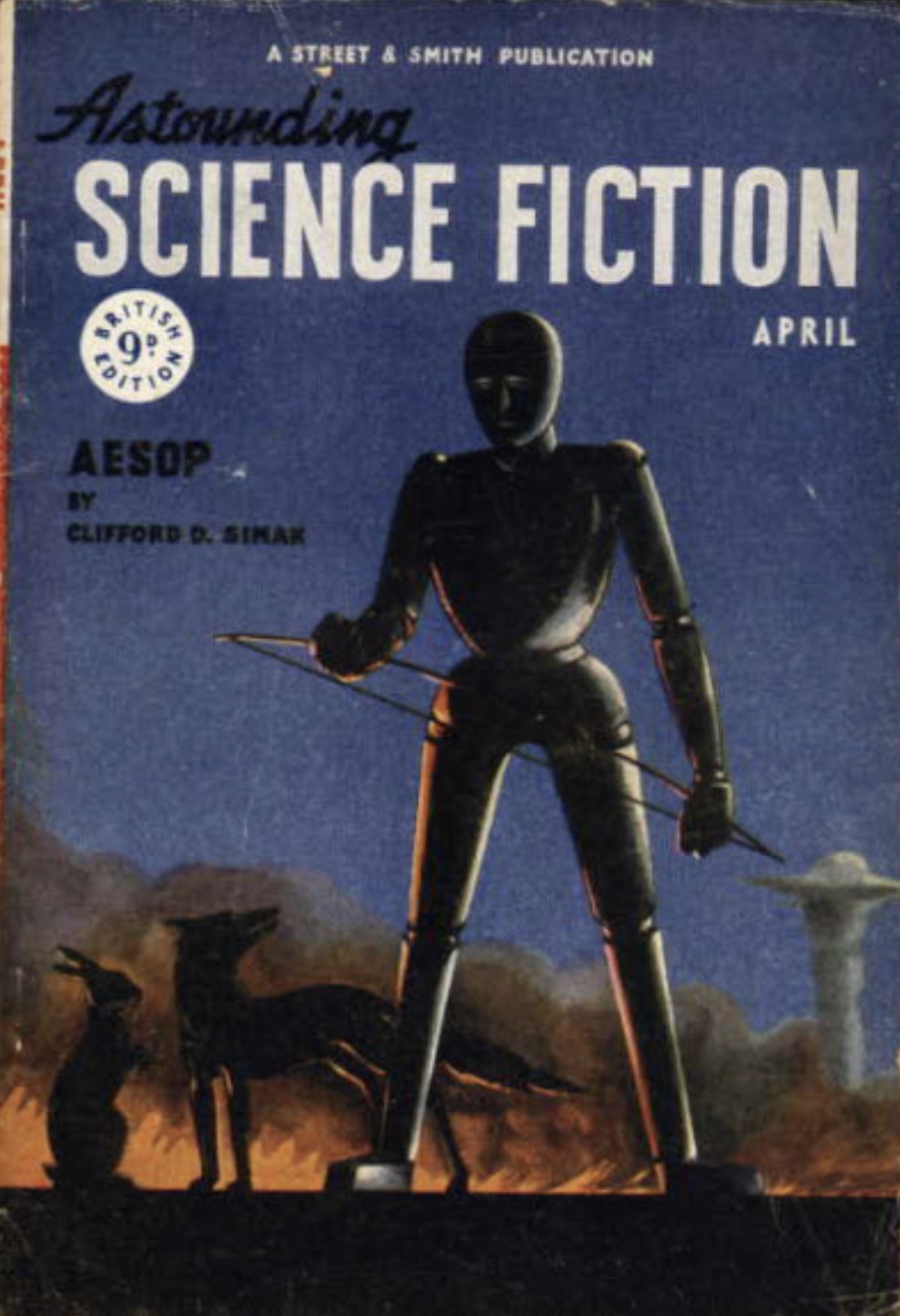
Astounding Science Fiction, April 1948 - British edition
1948
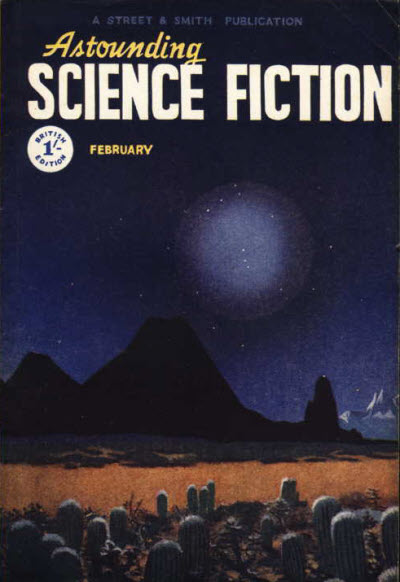
Astounding Science Fiction, February 1949 - British edition
1949
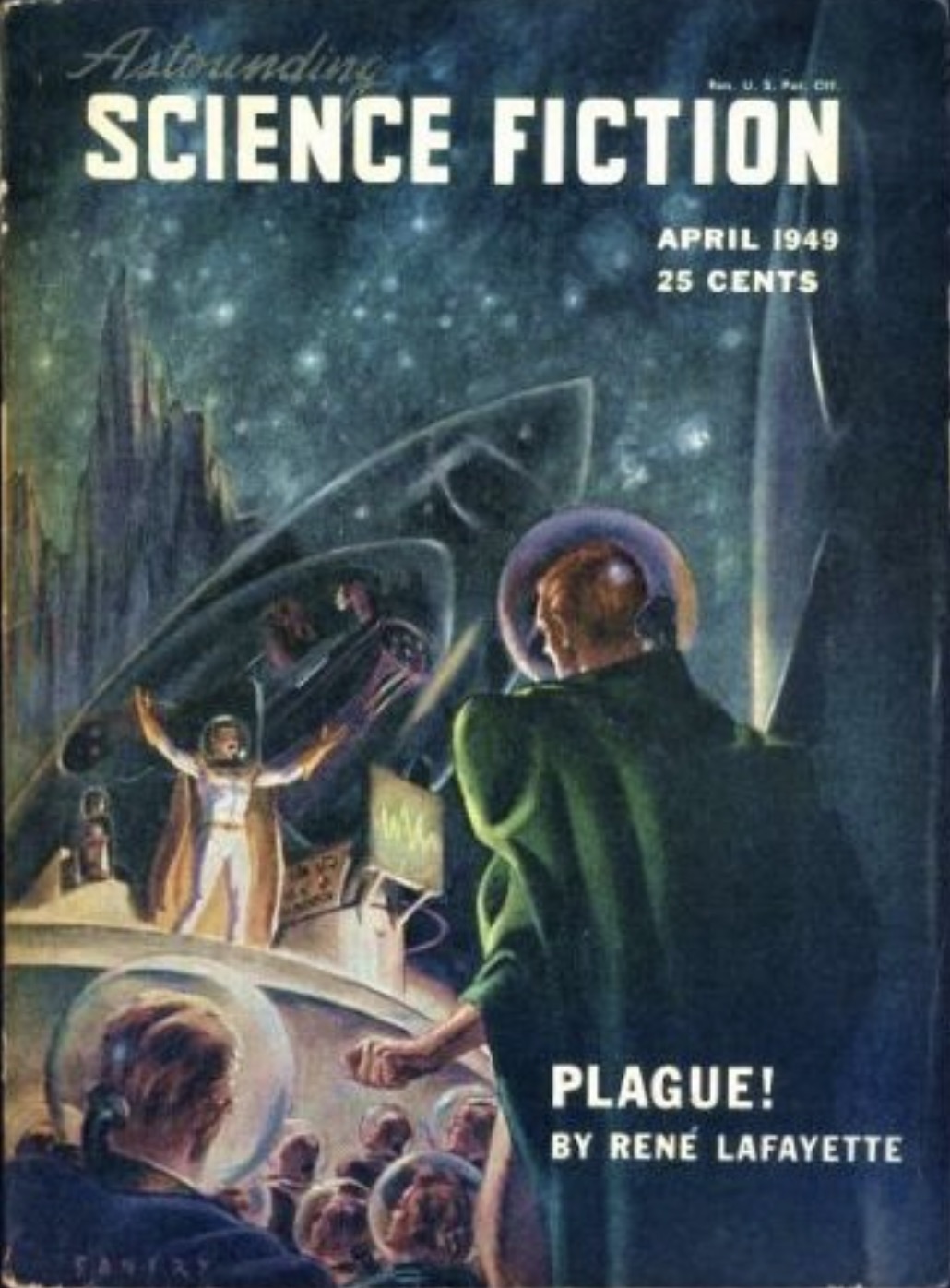
Astounding Science Fiction, April 1949
1949
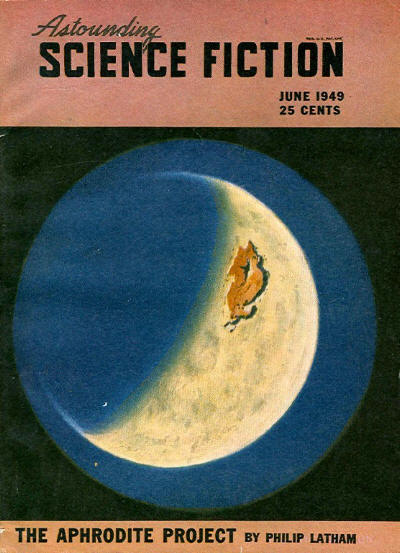
Astounding Science Fiction, June 1949
1949
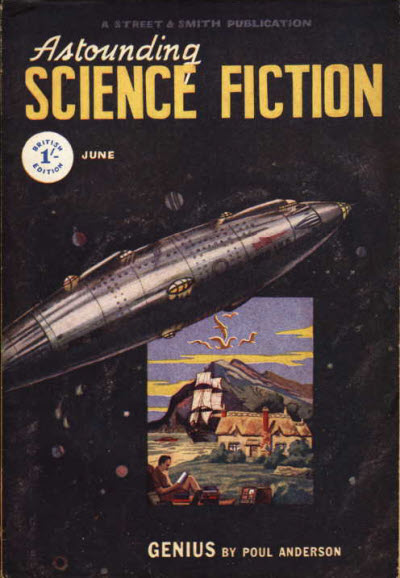
Astounding Science Fiction, June 1949 - British edition
1949
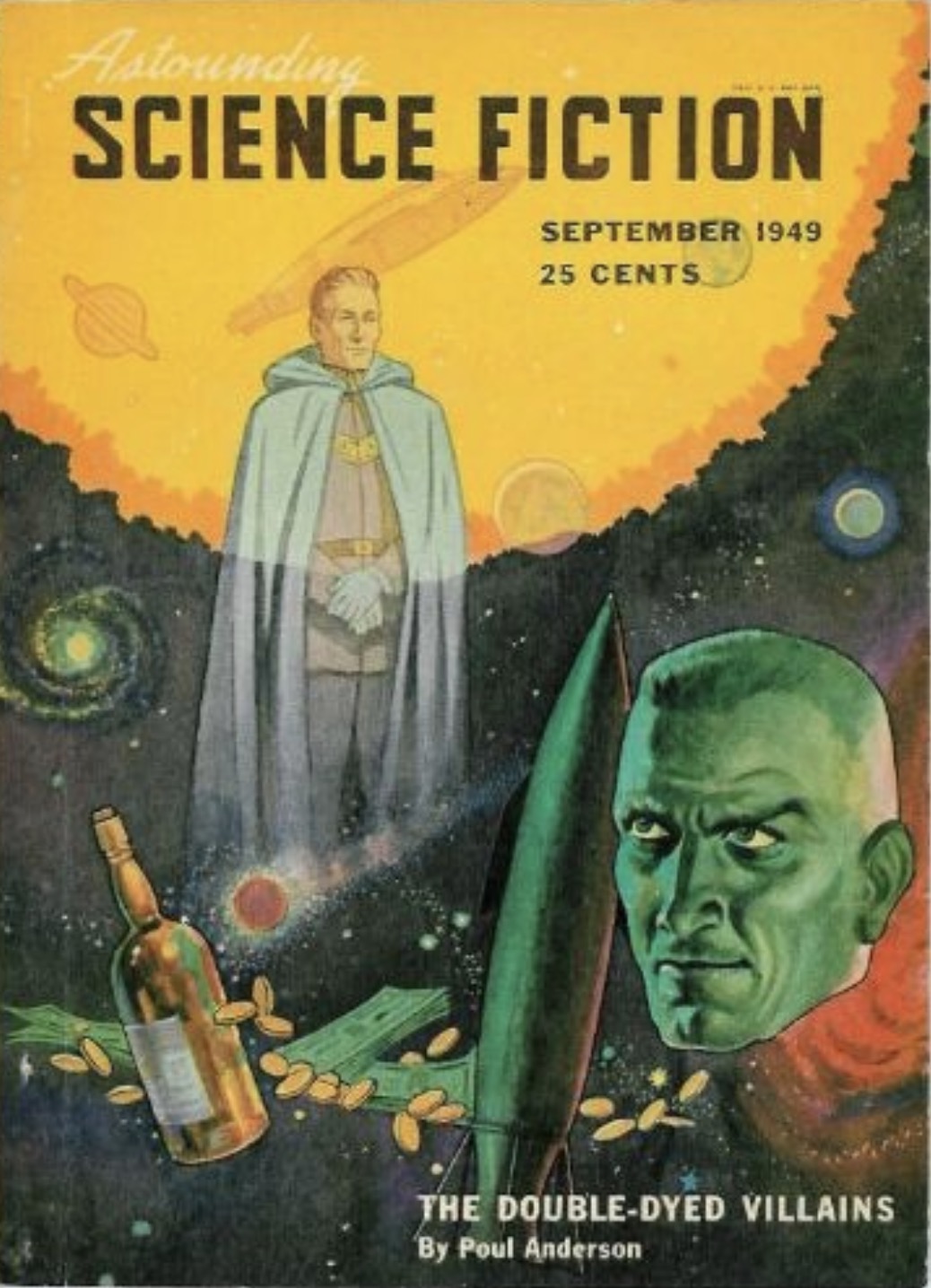
Astounding Science Fiction, September 1949
1949
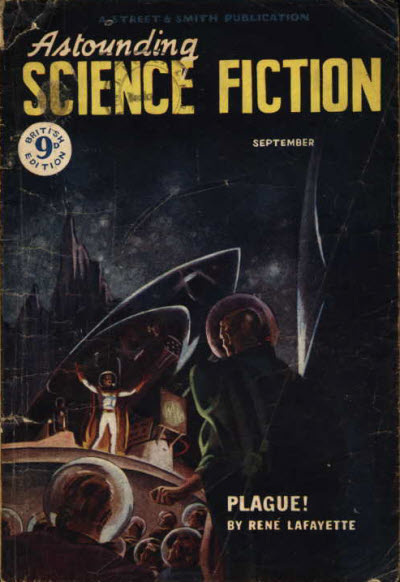
Astounding Science Fiction, September 1949 - British edition
1949
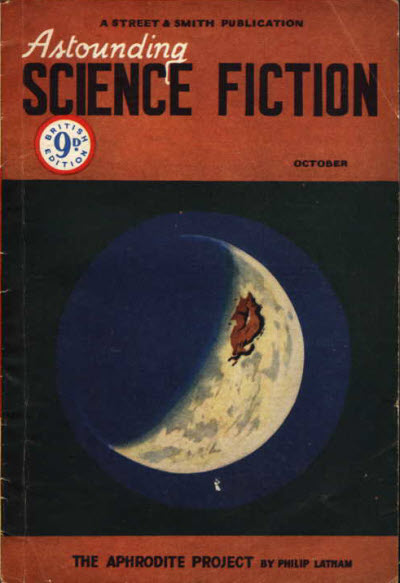
Astounding Science Fiction, October 1949 - British edition
1949
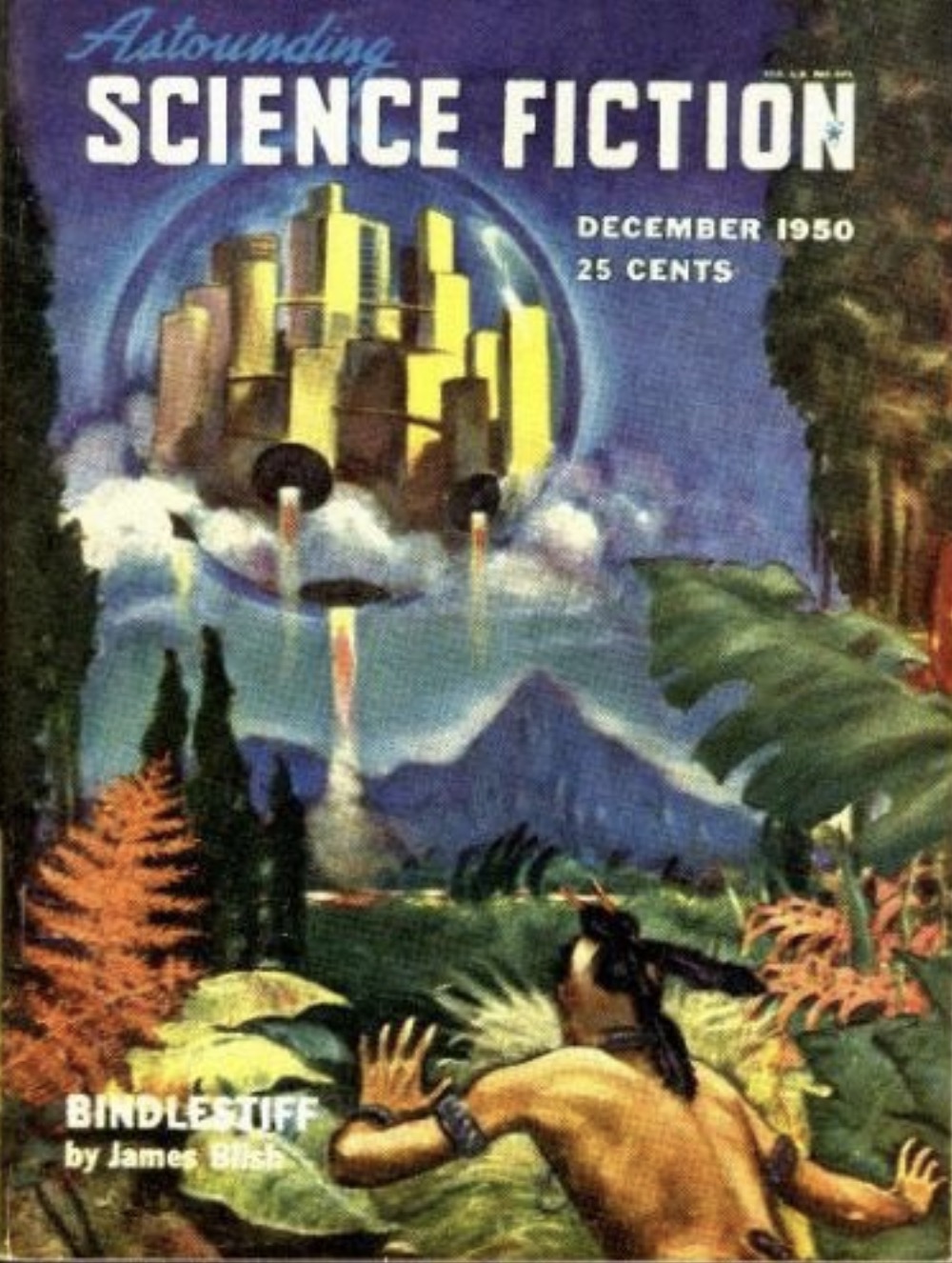
Astounding Science Fiction, December 1950
1950
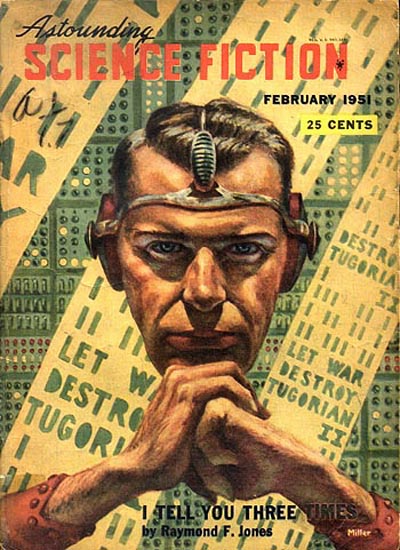
Astounding Science Fiction, February 1951
1951
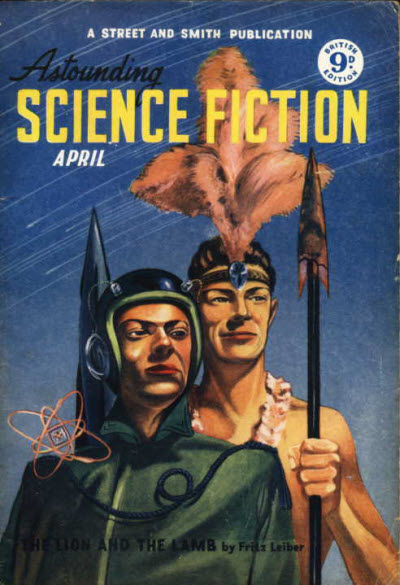
Astounding Science Fiction, April 1951 - British edition
1951
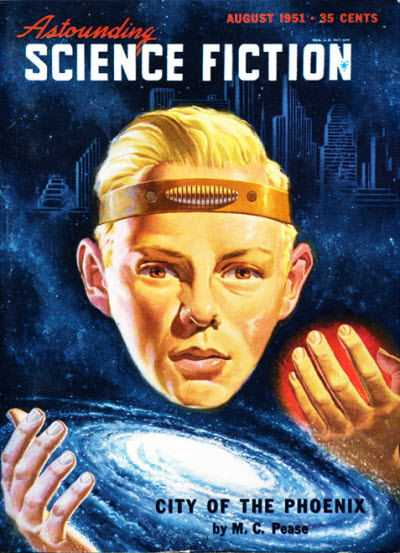
Astounding Science Fiction, August 1951
1951
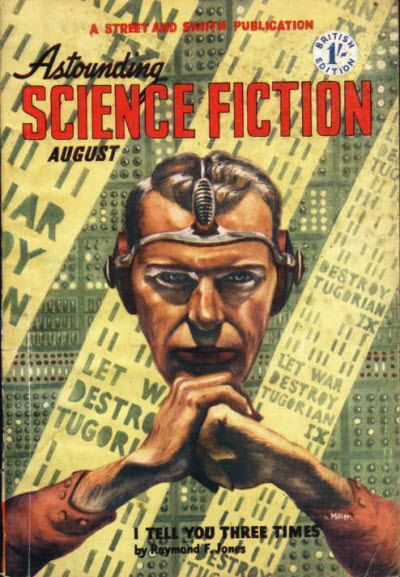
Astounding Science Fiction, August 1951 - British edition
1951
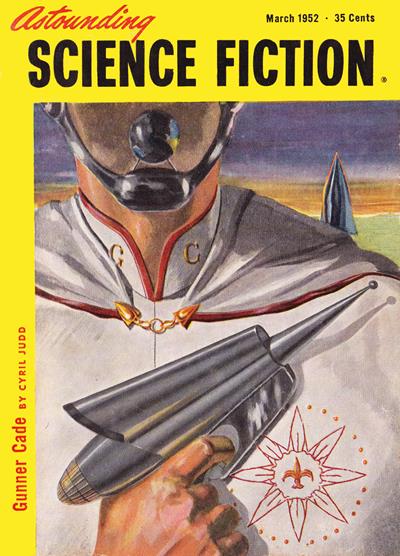
Astounding Science Fiction, March 1952
1952
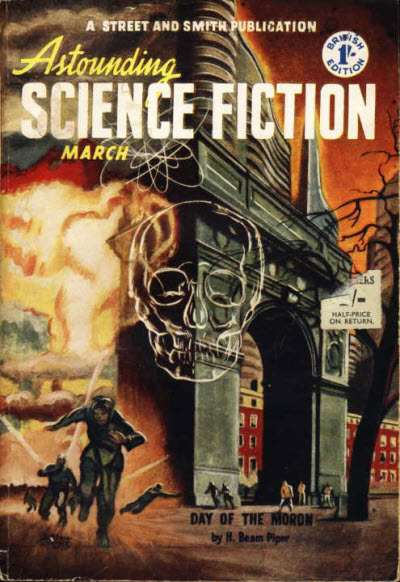
Astounding Science Fiction, March 1952 - British edition
1952
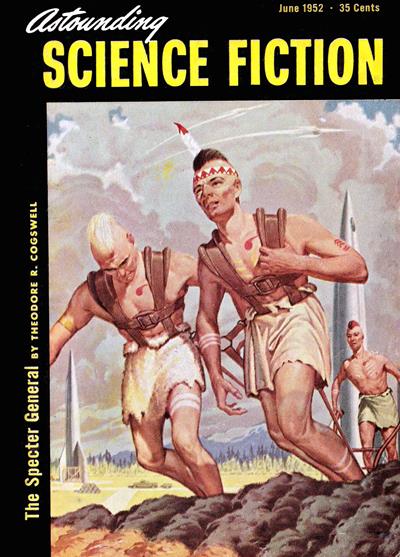
Astounding Science Fiction, June 1952
1952
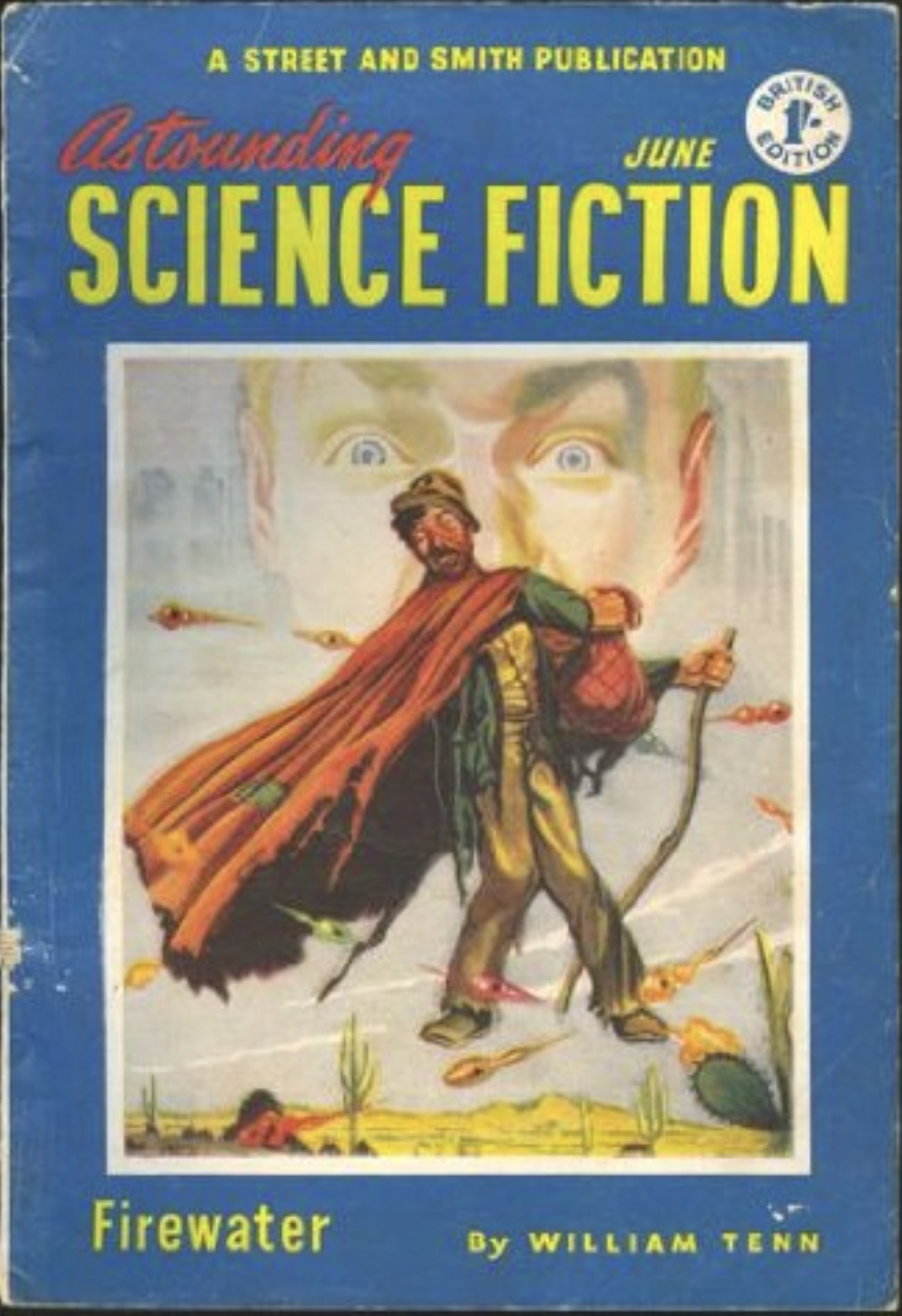
Astounding Science Fiction, June 1952 - British edition
1952
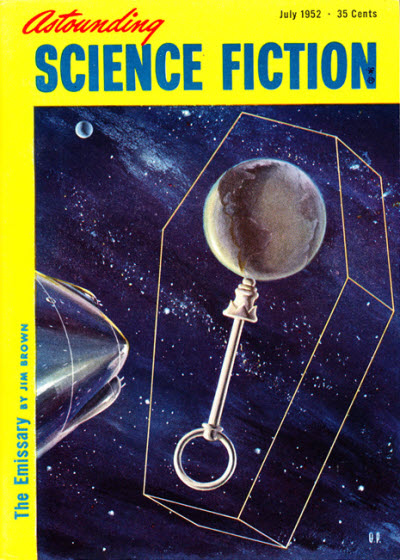
Astounding Science Fiction, July 1952
1952
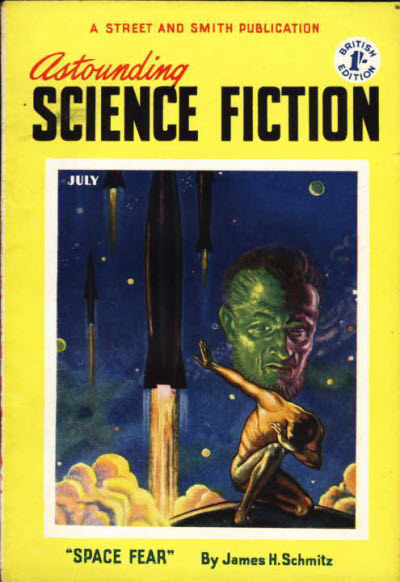
Astounding Science Fiction, July 1952 - British edition
1952
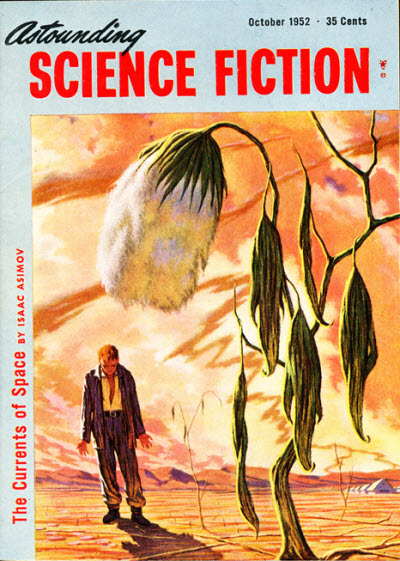
Astounding Science Fiction, October 1952
1952
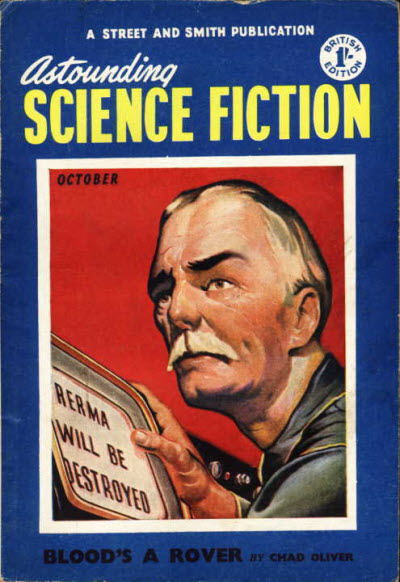
Astounding Science Fiction, October 1952 - British edition
1952

Astounding Science Fiction, November 1952
1952
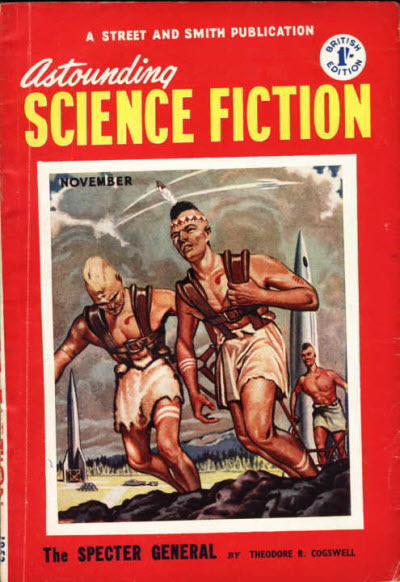
Astounding Science Fiction, November 1952 - British edition
1952
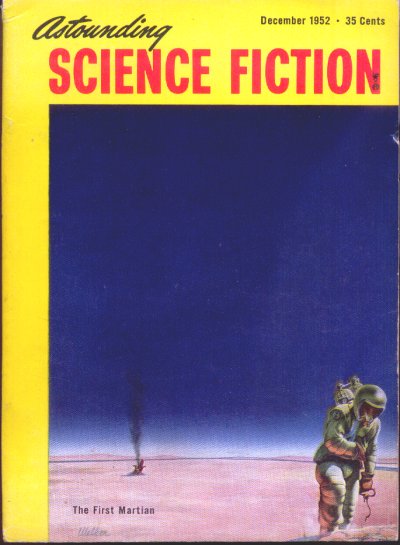
Astounding Science Fiction, December 1952
1952
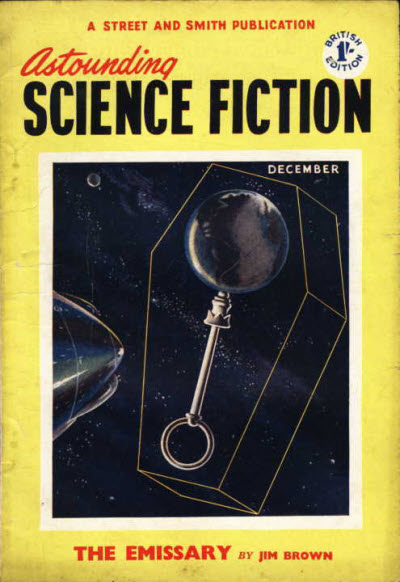
Astounding Science Fiction, December 1952 - British edition
1952
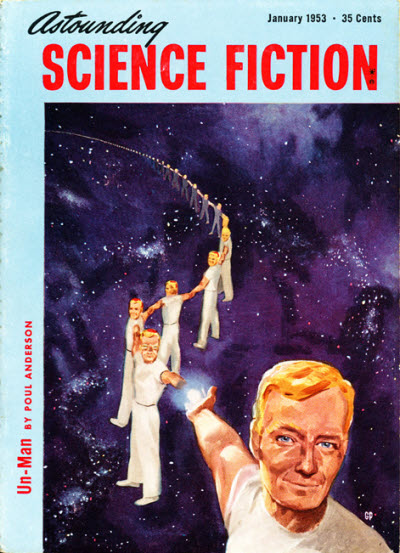
Astounding Science Fiction, January 1953
1953
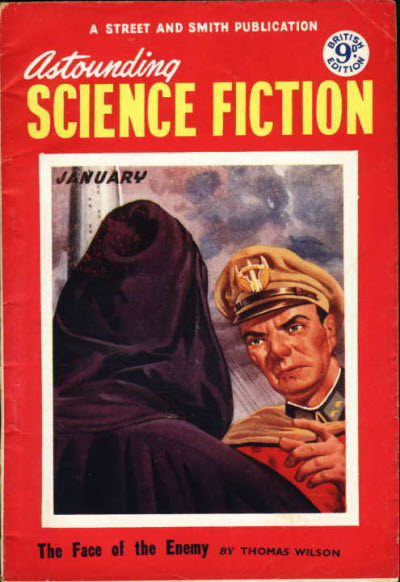
Astounding Science Fiction, January 1953 - British edition
1953
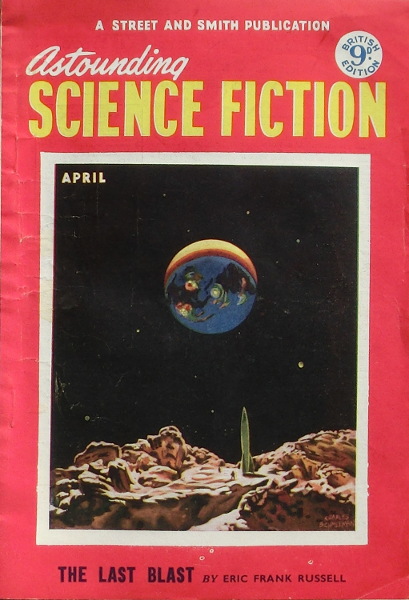
Astounding Science Fiction, April 1953 - British edition
1953

Astounding Science Fiction, October 1953
1953
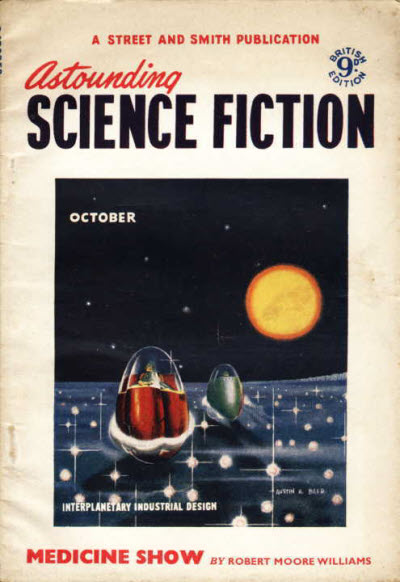
Astounding Science Fiction, October 1953 - British edition
1953
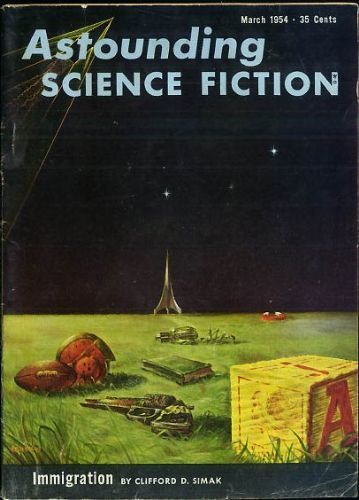
Astounding Science Fiction, March 1954
1954
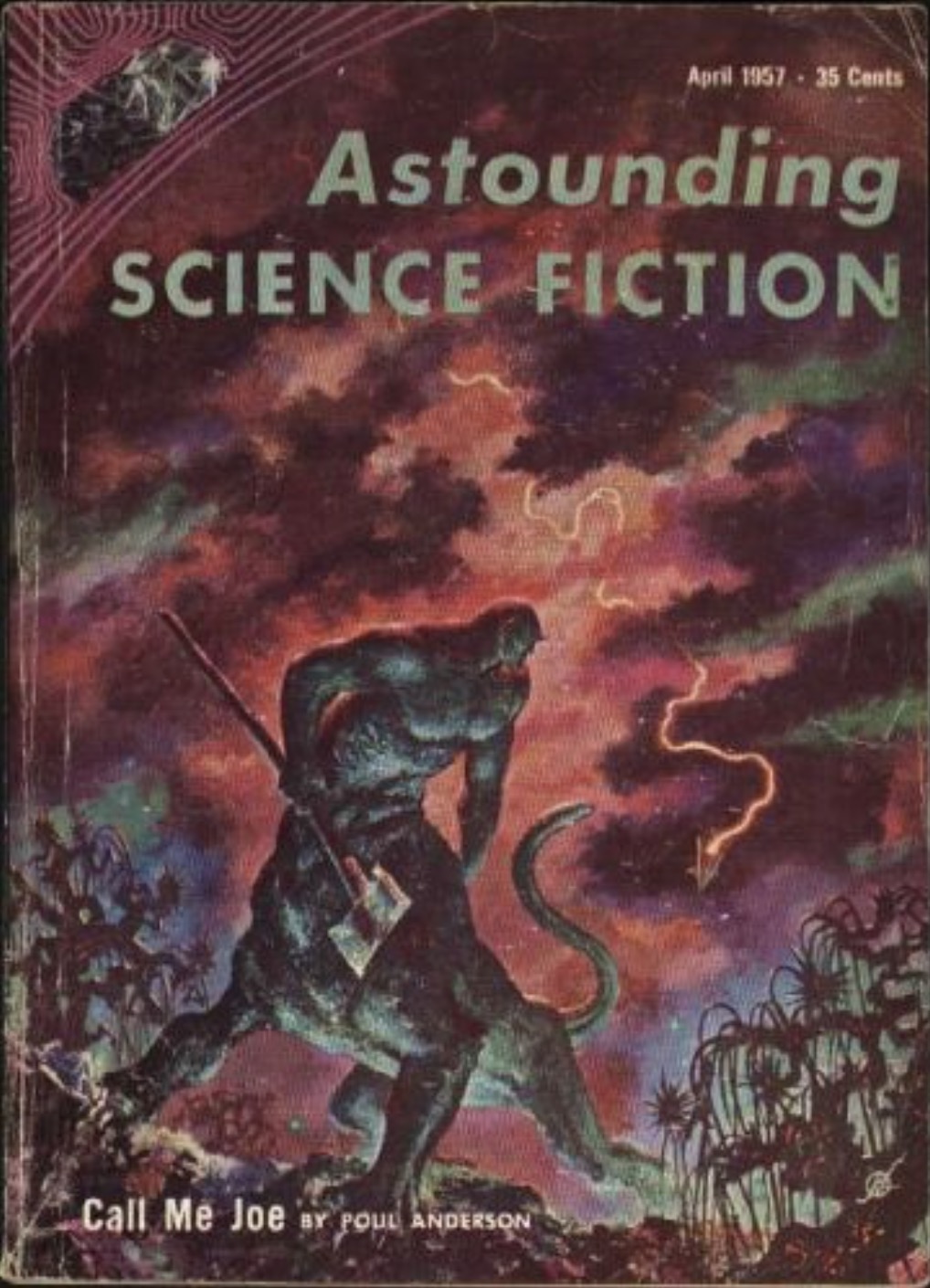
Astounding Science Fiction, April 1957
1957

Astounding Science Fiction, May 1958
1958
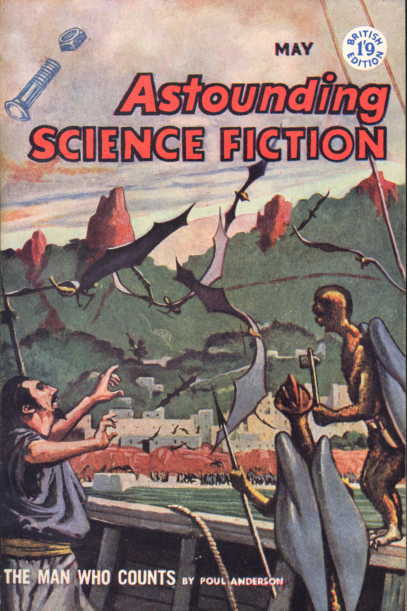
Astounding Science Fiction, May 1958 - British edition
1958
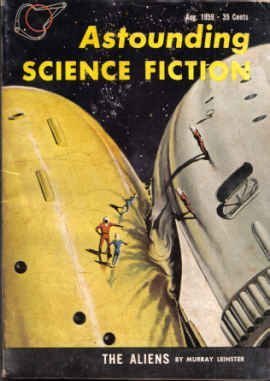
Astounding Science Fiction, August 1959
1959
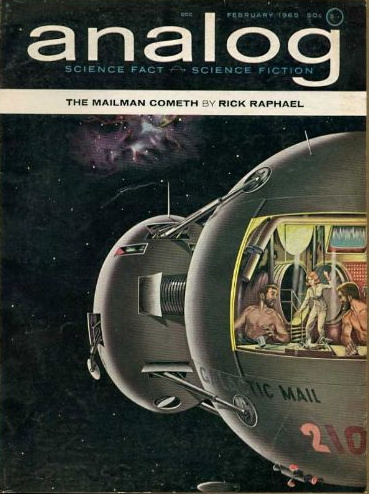
Analog Science Fact - Science Fiction, February 1965
1965
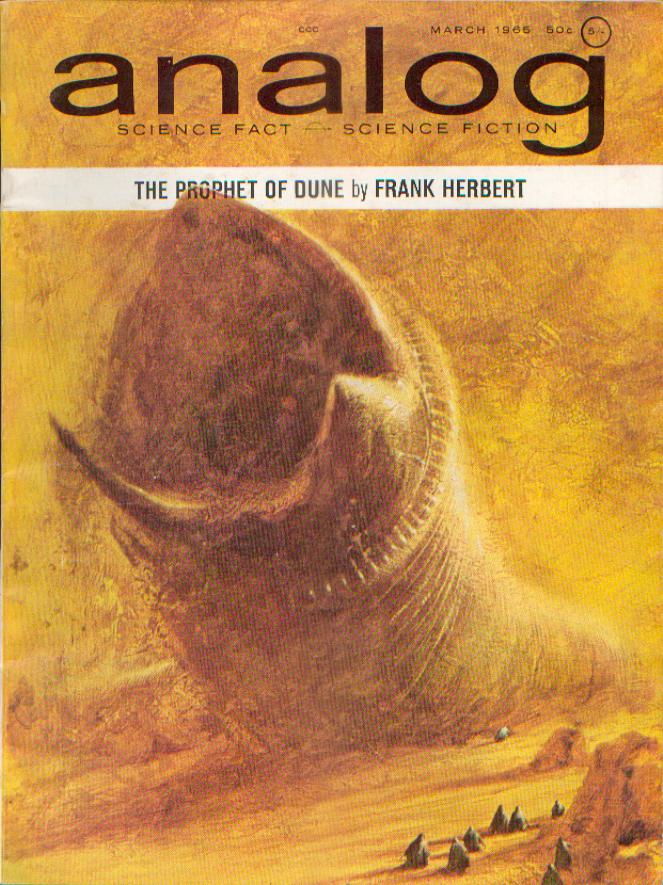
Analog Science Fact - Science Fiction, March 1965
1965

Analog Science Fiction/Science Fact, October 1967
1967

Analog Science Fiction & Fact, January/February 2021
2021

Analog Science Fiction and Fact, July/August 2021
2021

Analog Science Fiction & Fact, September/October 2021
2021

Analog Science Fiction & Fact, November/December 2021
2021

Analog Science Fiction & Fact, January/February 2022
2021

Analog Science Fiction & Fact, March/April 2022
2022

Analog Science Fiction & Fact, July/August 2022
2022

Analog Science Fiction & Fact, September/October 2022
2022

Analog Science Fiction & Fact, November/December 2022
2022

Analog Science Fiction & Fact, January/February 2023
2023

Analog Science Fiction & Fact, March/April 2023
2023

Analog Science Fiction & Fact, May/June 2023
2023
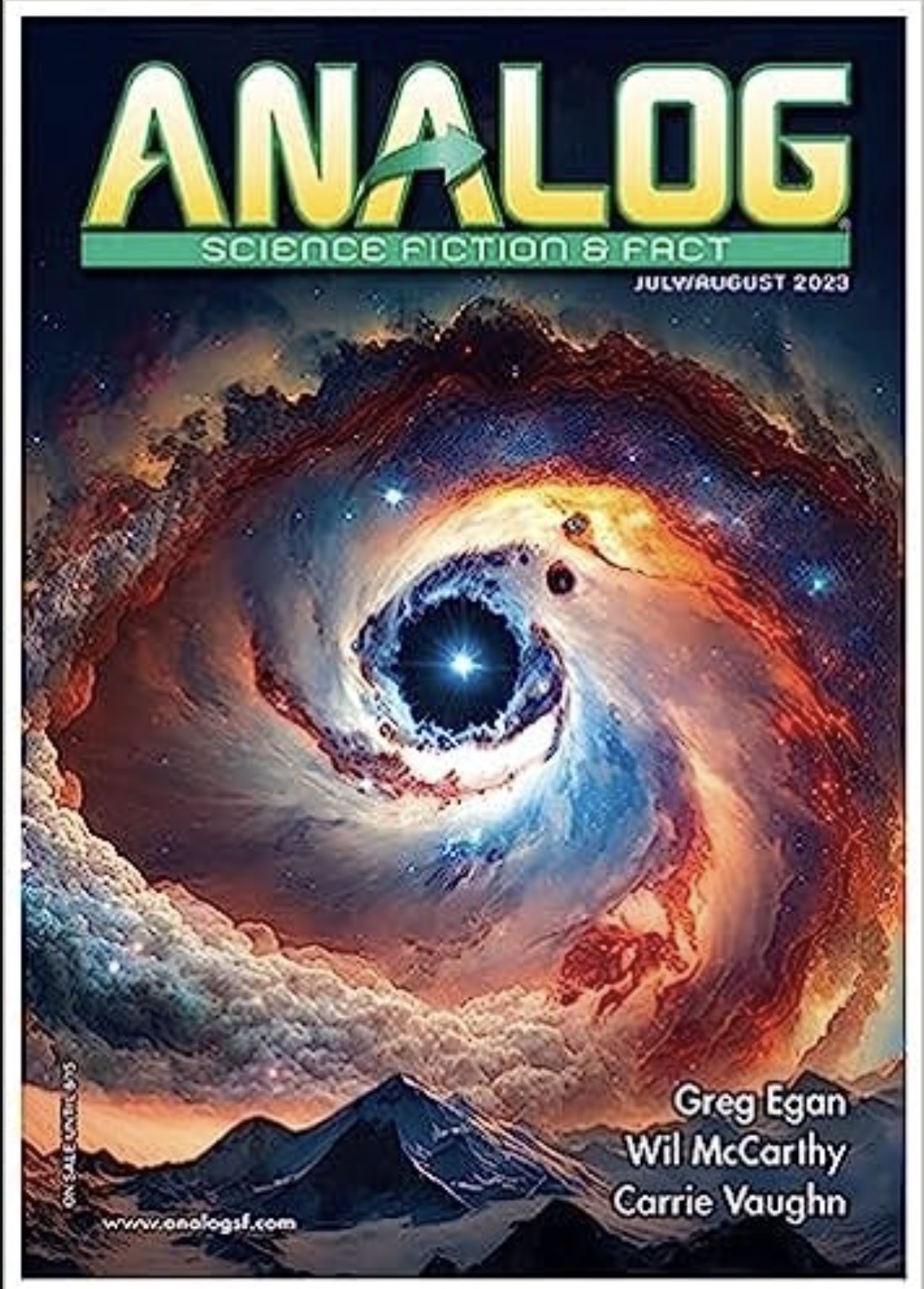
Analog Science Fiction & Fact, July/August 2023
2023
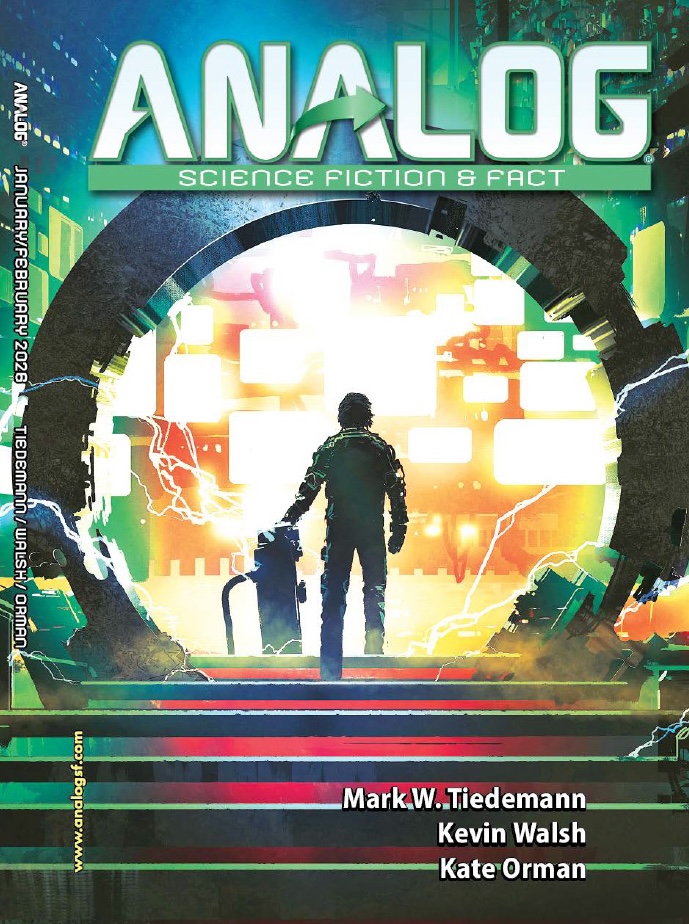
Analog Science Fiction & Fact, January/February 2026
2025
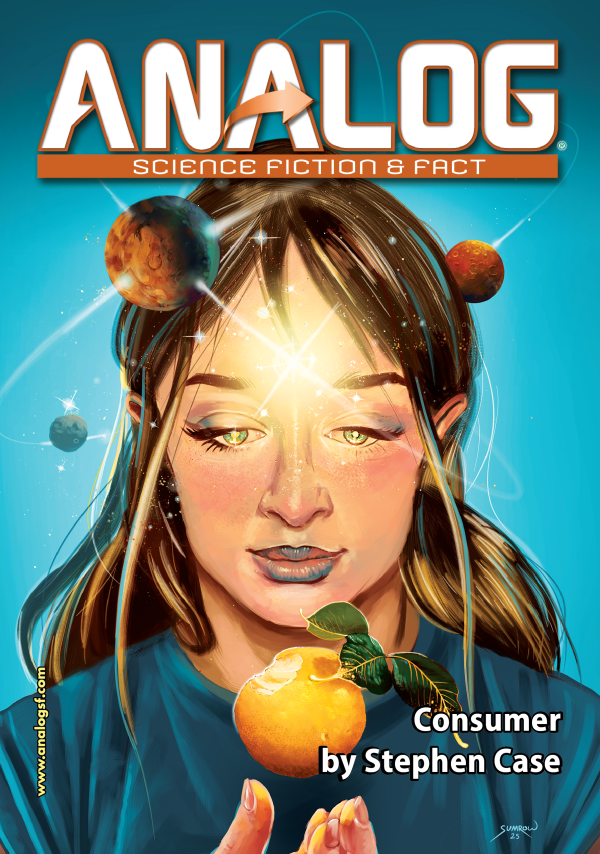
Analog Science Fiction & Fact, March/April 2026
2026
Authors
Paul Frederick Ernst was an American pulp fiction writer. He is best known as the author of the original 24 "Avenger" novels, published by Street & Smith under the house name Kenneth Robeson. He "[took] up fiction writing in his early twenties." Credited by pulp-expert Don Hutchison as "a prolific manufacturer of potboilers-made-to-order," his stories appeared in a number of early Science fiction and fantasy magazines. His writing appeared in Astounding Stories, Strange Tales and Amazing, and he was the author of the Doctor Satan series which ran in Weird Tales from August, 1935. His most famous work was in writing the original 24 The Avenger stories in the eponymous magazine between 1939 and 1942. When pulp magazine work began to dry up, Ernst "was able to make a painless transition into the more prestigious "slick" magazines, where his word skill earned him higher financial rewards." As of 1971, he was "still active as a writer," including penning "Blackout" for the July 1971 issue of Good Housekeeping magazine. He died in Pinellas County, Florida. [https://en.m.wikipedia.org/wiki/Paul\_...] Librarian note: There is more than one author in the Goodreads database with this name. Paul^Ernst
Raymond Fisher Jones (November 15, 1915, Salt Lake City, Utah - January 24, 1994, Sandy, Salt Lake County, Utah) was an American science fiction author. He is best known for his 1952 novel, This Island Earth, which was adapted into the 1955 film This Island Earth and for the short story "The Children's Room", which was adapted for television as Episode Two of the ABC network show Tales of Tomorrow, first aired on February 29, 1952. Jones' career was at its peak during the 1940s, 1950s, and 1960s. His stories were published mainly in magazines such as Thrilling Wonder Stories, Astounding Stories, and Galaxy. His short story Noise Level is known as one of his best works. His short story "The Alien Machine", first published in the June, 1949 Thrilling Wonder Stories, was later expanded into the novel This Island Earth, along with two other short stories, "The Shroud of Secrecy", and "The Greater Conflict", known as The Peace Engineers Trilogy, featuring the character Cal Meacham. Jones also wrote the story upon which the episode "The Children's Room" was based for the television program Tales of Tomorrow in 1952.


Donald Albert Wandrei was an American science fiction, fantasy and weird fiction writer, poet and editor. He was the older brother of science fiction writer and artist Howard Wandrei. He died in St. Paul in 1987. http://www.fantasticfiction.co.uk/w/d... Along with August Derleth, he was co-founder of Arkham House publishers.

Laurence van Cott Niven's best known work is Ringworld (Ringworld, #1) (1970), which received the Hugo, Locus, Ditmar, and Nebula awards. His work is primarily hard science fiction, using big science concepts and theoretical physics. The creation of thoroughly worked-out alien species, which are very different from humans both physically and mentally, is recognized as one of Niven's main strengths. Niven also often includes elements of detective fiction and adventure stories. His fantasy includes The Magic Goes Away series, which utilizes an exhaustible resource, called Mana, to make the magic a non-renewable resource. Niven created an alien species, the Kzin, which were featured in a series of twelve collection books, the Man-Kzin Wars. He co-authored a number of novels with Jerry Pournelle. In fact, much of his writing since the 1970s has been in collaboration, particularly with Pournelle, Steven Barnes, Brenda Cooper, or Edward M. Lerner. He briefly attended the California Institute of Technology and graduated with a Bachelor of Arts in mathematics (with a minor in psychology) from Washburn University, Topeka, Kansas, in 1962. He did a year of graduate work in mathematics at the University of California at Los Angeles. He has since lived in Los Angeles suburbs, including Chatsworth and Tarzana, as a full-time writer. He married Marilyn Joyce "Fuzzy Pink" Wisowaty, herself a well-known science fiction and Regency literature fan, on September 6, 1969. Niven won the Hugo Award for Best Short Story for Neutron Star in 1967. In 1972, for Inconstant Moon, and in 1975 for The Hole Man. In 1976, he won the Hugo Award for Best Novelette for The Borderland of Sol. Niven has written scripts for various science fiction television shows, including the original Land of the Lost series and Star Trek: The Animated Series, for which he adapted his early Kzin story The Soft Weapon. He adapted his story Inconstant Moon for an episode of the television series The Outer Limits in 1996. He has also written for the DC Comics character Green Lantern including in his stories hard science fiction concepts such as universal entropy and the redshift effect, which are unusual in comic books. http://us.macmillan.com/author/larryn...
A prolific author in various genres under his own name, John Francis Russell Fearn also used these pseudonyms: Astron del Martia, Brian Shaw, Conrad G. Holt, Dennis Clive, Frank Jones, Geoffrey Armstrong, Griff, Hugo Blayn, John Russell, K. Thomas Mark Denholm, Paul Lorraine, Polton Cross, Spike Gordon, Thornton Ayre, Vargo Statten, Volsted Gridban, Dom Passante, John Cotton, Ephriam Winiki, Lawrence F. Rose, Earl Titan, Ephraim Winiki. John Russell Fearn was an extremely prolific and popular British writer, who began in the American pulps, then almost single-handedly drove the post-World War II boom in British publishing with a flood of science fiction, detective stories, westerns, and adventure fiction. He was so popular that one of his pseudonyms became the editor of Vargo Staten’s Science Fiction Magazine in the 1950’s! His work is noted for its vigor and wild imagination. He has always had a substantial cult following and has been popular in translation around the world.

Malcolm Jameson began writing only seven years before his death. Yet in that short span he wrote and sold more than 70 novelettes and short stories. Critic Groff Conklin calls Jameson's work "lively, ingenious and readable." The majority of Jameson's work appeared in the magazines "Astounding Science Fiction" and "Unknown Worlds" but he was also published in a number of the other pulp magazines of the late 1930's and early 40's. His novella "Blind Alley", first published in the June 1943 issue of Unknown, was the basis for the Twilight Zone episode "Of Late I Think of Cliffordville" starring Albert Salmi, John Anderson, and Julie Newmar. The hour-long episode was broadcast on April 11, 1963.

Leigh Brackett was born on December 7, 1915 in Los Angeles, and raised near Santa Monica. Having spent her youth as an athletic tom-boy - playing volleyball and reading stories by Edgar Rice Burroughs and H Rider Haggard - she began writing fantastic adventures of her own. Several of these early efforts were read by Henry Kuttner, who critiqued her stories and introduced her to the SF personalities then living in California, including Robert Heinlein, Julius Schwartz, Jack Williamson, Edmond Hamilton - and another aspiring writer, Ray Bradbury. In 1944, based on the hard-boiled dialogue in her first novel, No Good From a Corpse, producer/director Howard Hawks hired Brackett to collaborate with William Faulkner on the screenplay of Raymond Chandler's The Big Sleep. Brackett maintained an on-again/off-again relationship with Hollywood for the remainder of her life. Between writing screenplays for such films as Rio Bravo, El Dorado, Hatari!, and The Long Goodbye, she produced novels such as the classic The Long Tomorrow (1955) and the Spur Award-winning Western, Follow the Free Wind (1963). Brackett married Edmond Hamilton on New Year's Eve in 1946, and the couple maintained homes in the high-desert of California and the rural farmland of Kinsman, Ohio. Just weeks before her death on March 17, 1978, she turned in the first draft screenplay for The Empire Strikes Back and the film was posthumously dedicated to her.



Arthur Bertram Chandler (28 March 1912–6 June 1984) was an Australian science fiction author. He also wrote under the pseudonyms George Whitley, George Whitely, Andrew Dunstan, and S.H.M. He was born in Aldershot, England. He was a merchant marine officer, sailing the world in everything from tramp steamers to troopships. He emigrated to Australia in 1956 and became an Australian citizen. He commanded various ships in the Australian and New Zealand merchant navies, and was the last master of the Australian aircraft carrier HMAS Melbourne as the law required that it have an officer on board while it was laid up waiting to be towed to China to be broken up.


Kate Maruyama writes, teaches, cooks, and eats in Los Angeles, where she lives with her family. Her novel, Harrowgate was published by 47North in 2013 and her novella Family Solstice, out now from Omnium Gatherum was named Best Fiction Book of the 2021 by Rue Morgue Magazine. Her duo of novellas, Bleak Houses is coming from Raw Dog Screaming Press August 3, 2023. Her short work has been published in Asimov's Magazine, Analog Science Fiction & Fact, The Coachella Review, and on Entropy, Gemini Magazine, Salon, The Rumpus and Duende, among others. She has two upcoming novels, The Collective a horror novel serialized from Writ Large Press, and a family drama, Alterations coming from Running Wild Press in 2024. She is a member of the SFWA and HWA where she serves on the Diverse Works Inclusion Committee. She has served as a jury chair for The Bram Stoker Awards and twice as a juror for the Shirley Jackson Awards. You can keep up with Kate's news with her newsletter, Read. Write. Cook. which you can sign up for on her website!



Howard Phillips Lovecraft, of Providence, Rhode Island, was an American author of horror, fantasy and science fiction. Lovecraft's major inspiration and invention was cosmic horror: life is incomprehensible to human minds and the universe is fundamentally alien. Those who genuinely reason, like his protagonists, gamble with sanity. Lovecraft has developed a cult following for his Cthulhu Mythos, a series of loosely interconnected fictions featuring a pantheon of human-nullifying entities, as well as the Necronomicon, a fictional grimoire of magical rites and forbidden lore. His works were deeply pessimistic and cynical, challenging the values of the Enlightenment, Romanticism and Christianity. Lovecraft's protagonists usually achieve the mirror-opposite of traditional gnosis and mysticism by momentarily glimpsing the horror of ultimate reality. Although Lovecraft's readership was limited during his life, his reputation has grown over the decades. He is now commonly regarded as one of the most influential horror writers of the 20th Century, exerting widespread and indirect influence, and frequently compared to Edgar Allan Poe. — Wikipedia






 A science-fiction lover since childhood, Michèle Laframboise has written 19 novels and published more than 80 short-stories, in French and English, earning a wide recognition. You can read her in French and English, in the magazines Solaris, Galaxies, Brins d’Éternité, Tesseracts, Fiction River, Compelling Science Fiction, Future SF Digest, Asimov's et Analog.
She has also penned humorous comic books and blogs.
Drawing from her scientific background, Michèle elaborates intricate plots filled with sense of wonder, poetry and adventure.
Ex-scientifique devenue auteure de science-fiction, Michèle Laframboise a publié 19 romans et plus de 80 nouvelles, récoltant plusieurs distinctions au Canada et en Europe. Ses nouvelles sont parues dans les revues Solaris, Galaxies, Brins d’Éternité, Tesseracts, Fiction River, Compelling Science Fiction, Abyss&Apex, Future SF Digest, Asimov's et Analog.
Dessinatrice enthousiaste, elle a aussi publié une douzaine de BD et entretient un blog illustré.
En dessins ou en mots, Michèle concocte des intrigues captivantes se déroulant dans des mondes empreints de poésie.
A science-fiction lover since childhood, Michèle Laframboise has written 19 novels and published more than 80 short-stories, in French and English, earning a wide recognition. You can read her in French and English, in the magazines Solaris, Galaxies, Brins d’Éternité, Tesseracts, Fiction River, Compelling Science Fiction, Future SF Digest, Asimov's et Analog.
She has also penned humorous comic books and blogs.
Drawing from her scientific background, Michèle elaborates intricate plots filled with sense of wonder, poetry and adventure.
Ex-scientifique devenue auteure de science-fiction, Michèle Laframboise a publié 19 romans et plus de 80 nouvelles, récoltant plusieurs distinctions au Canada et en Europe. Ses nouvelles sont parues dans les revues Solaris, Galaxies, Brins d’Éternité, Tesseracts, Fiction River, Compelling Science Fiction, Abyss&Apex, Future SF Digest, Asimov's et Analog.
Dessinatrice enthousiaste, elle a aussi publié une douzaine de BD et entretient un blog illustré.
En dessins ou en mots, Michèle concocte des intrigues captivantes se déroulant dans des mondes empreints de poésie.

Mystery Writers of America Awards "Grand Master" 2008 Shamus Awards Best Novel winner (1999) for Boobytrap Edgar Awards Best Novel nominee (1998) for A Wasteland of Strangers Shamus Awards Best Novel nominee (1997) for Sentinels Shamus Awards "The Eye" (Lifetime achievment award) 1987 Shamus Awards Best Novel winner (1982) for Hoodwink Married to author Marcia Muller. Pseudonyms: Robert Hart Davis (collaboration with Jeffrey M. Wallmann) Jack Foxx William Jeffrey (collaboration with Jeffrey M. Wallmann) Alex Saxon

Harry Clement Stubbs better known by the pen name Hal Clement , was an American science fiction writer and a leader of the hard science fiction subgenre. Further details at Wikipedia.

Raymond Arthur Palmer, also known as Raymond Alfred Palmer, and Ray Palmer. He was the influential editor of Amazing Stories from 1938 through 1949, when he left publisher Ziff-Davis to publish and edit Fate Magazine, and eventually many other magazines and books through his own publishing houses, including Amherst Press and Palmer Publications. In addition to magazines such as Mystic, Search, and 'Flying Saucers," he published numerous spirtualist books, including Oahspe: A New Bible, as well as several books related to flying saucers, including "The Coming of the Saucers," co-written by Palmer with Kenneth Arnold. Palmer was also a prolific author of science fiction and fantasy stories, many of which were published under pseudonyms. According to Bruce Lanier Wright, "Palmer was hit by a truck at age seven and suffered a broken back." An unsuccessful operation on Palmer's spine stunted his growth (he stood about four feet tall), and left him with a hunchback. Palmer found refuge in science fiction, which he read voraciously. He rose through the ranks of science fiction fandom and is credited, along with Walter Dennis, with editing the first fanzine, The Comet, in May, 1930. Ziff-Davis acquired Amazing Stories in 1938. The publisher sacked then editor T. O'Conor Sloane and, on the recommendation of popular author Ralph Milne Farley, offered the editorship to Palmer. In 1939, Palmer began a companion magazine to Amazing Stories titled Fantastic Adventures, which lasted until 1953. When Ziff-Davis moved its magazine production from Chicago to New York City in 1949, Palmer resigned and, with Curtis Fuller, another Ziff-Davis editor who did not want to leave the Midwest, founded Clark Publishing Co. As an editor, Palmer tended to favour adventurous, fast-moving space opera-type stories. His tenure at Amazing Stories was notable for his purchase of Isaac Asimov's first professional story, "Marooned Off Vesta". Palmer was also known for his support of the long running and controversial Shaver Mystery stories, a series of stories by Richard S. Shaver. Palmer's support of the truth of Shaver's stories (which maintained that the world is dominated by insane inhabitants of the hollow earth), was controversial in the science fiction community. It is unclear whether Palmer believed the Shaver stories to be true, or if he was just using the stories to sell magazines. Palmer began his own science fiction publishing ventures while working for Ziff-Davis, eventually leaving the company to form his own publishing house, Clark Publishing Company, which was responsible for the titles Imagination and Other Worlds, among others. None of these magazines achieved the success of Amazing Stories during the Palmer years, but Palmer published Space World magazine until his death. In 1948, Palmer and Curtis Fuller co-founded Fate, which covered divination methods, Fortean events, belief in the survival of personality after death, predictive dreams, accounts of ghosts, mental telepathy, archaeology, flying saucer sightings, cryptozoology, alternative medicine, warnings of death, and other paranormal topics, many contributed by readers. Curtis Fuller and his wife Mary took full control of Fate in 1955, when Palmer sold his interest in the venture. The magazine has continued in publication under a series of editors and publishers to the present day. Another paranormal magazine Palmer created along the line of Fate was Mystic magazine, which after about two years of publication became Search magazine. In the 1970s, Palmer also published Ray Palmer's News Letter which was combined into another of his publications called Forum in March 1975. In the first issue of Fate, Palmer published Kenneth Arnold's report of "flying discs." Arnold's sighting marked the beginning of the modern UFO era, and his story propelled the fledgling Fate to national recognition. Through Fate, Palmer was instrumental in popularizing belief in fl

Winner of the Jim Baen and L Ron Hubbard Writer’s of the Future awards, C. Stuart Hardwick is a regular in Analog magazine, known for hard sci-fi that soars through the cosmos, exploring the depths of human nature and the mysteries of space and time. His evocative prose, enriched by scientific rigor, ignites the imagination and leaves an indelible mark on the human mind. When he’s not at the keyboard or on his bicycle, Stuart can often be found building or dismantling things with equal glee, helping electrons find their way across the lonely Texas power grid, or developing new novel writing software when he should, just maybe, be writing new novels instead.

Pseudonym of Leslie F. Silberberg (born Leslie Frances Rubenstein). She was the author of several science fiction stories, published in the 1920s-1940s in American pulp magazines such as "Amazing Stories", "Wonder Stories" and "Weird Tales". Her story "Out of the Void" was expanded and republished as a novel in 1967.

Hugh Barnett Cave was a prolific writer of pulp fiction who also excelled in other genres. Sources differ as to when Cave sold his first story: some say it was while he still attended Brookline High School, others cite "Island Ordeal", written at age 19 in 1929 while still working for the vanity press. In his early career he contributed to such pulp magazines as Astounding, Black Mask, and Weird Tales. By his own estimate, in the 1930s alone, he published roughly 800 short stories in nearly 100 periodicals under a number of pseudonyms. Of particular interest during this time was his series featuring an independent gentleman of courageous action and questionable morals called simply The Eel. These adventures appeared in the late 1930s and early 40s under the pen name Justin Case. Cave was also one of the most successful contributors to the weird menace or "shudder pulps" of the 1930s. In 1943, drawing on his experience as a war reporter, he authored one of his most highly regarded novels, Long Were the Nights, telling of the first PT boats at Guadalcanal. He also wrote a number of other books on the war in the Pacific during this period. During his post-war sojourn in Haiti, he became so familiar with the religion of Voodoo that he published Haiti: High Road to Adventure, a nonfiction work critically acclaimed as the "best report on voodoo in English." His Caribbean experiences led to his best-selling Voodoo-themed novel, The Cross On The Drum (1959), an interracial story in which a white Christian missionary falls in love with a black Voodoo priest's sister. During this midpoint in his career Cave advanced his writing to the "slick" magazines, including Collier's, Family Circle, Ladies' Home Journal, Redbook, and the Saturday Evening Post. It was in this latter publication, in 1959, that "The Mission," his most popular short story, appeared—subsequently issued in hardcover by Doubleday, reprinted in textbooks, and translated into a number of languages. But his career took a dip in the early 1970s. According to The Guardian, with the golden era of pulp fiction now in the past, Cave's "only regular market was writing romance for women's magazines." He was rediscovered, however, by Karl Edward Wagner, who published Murgunstrumm and Others, a horror story collection that won Cave the 1978 World Fantasy Award. Other collections followed and Cave also published new horror fiction. His later career included the publication in the late 1970s and early 1980s of four successful fantasy novels: Legion of the Dead (1979), The Nebulon Horror (1980), The Evil (1981), and Shades of Evil (1982). Two other notable late works are Lucifer's Eye (1991) and The Mountains of Madness (2004). Moreover, Cave took naturally to the Internet, championing the e-book to such an extent that electronic versions of his stories can readily be purchased online. Over his entire career he wrote more than 1,000 short stories in nearly all genres (though he is best remembered for his horror and crime pieces), approximately forty novels, and a notable body of nonfiction. He received the Phoenix Award as well as lifetime achievement awards from the International Horror Guild, the Horror Writers Association, and the World Fantasy Convention. (From Wikipedia.) Used the pseudonyms John Starr and Justin Case

Full name: Stanley Grauman Weinbaum "In his short career, Stanley G. Weinbaum revolutionized science fiction. We are still exploring the themes he gave us." - Poul Anderson "Stanley G. Weinbaum's name deserves to rank with those of Wells and Heinlein - and no more than a handful of others - as among the great shapers of modern science fiction." - Frederik Pohl

Aka William Callahan, Arthur Allport. Raymond Zinke Gallun (March 22, 1911 - April 2, 1994) was an early science fiction writer. Gallun (rhymes with "balloon") was born in Beaver Dam, Wisconsin. He lived a drifter's existence, working a multitude of jobs around the world in the years leading up to World War II. He sold many popular stories to pulp magazines in the 1930s. "Old Faithful" (1934) was his first noted story. "The Gentle Brain" was published in "Science Fiction Quarterly" under the pseudonym Arthur Allport. Another of his pseudonyms was William Callahan.
A pseudonym used by brothers Earl Andrew Binder and Otto Oscar Binder

Algis Budrys was a Lithuanian-American science fiction author, editor, and critic. He was also known under the pen names Frank Mason, Alger Rome, John A. Sentry, William Scarff, Paul Janvier, and Sam & Janet Argo. Called "AJ" by friends, Budrys was born Algirdas Jonas Budrys in Königsberg in East Prussia. He was the son of the consul general of the Lithuanian government, (the pre-World War II government still recognized after the war by the United States, even though the Soviet-sponsored government was in power throughout most of Budrys' life). His family was sent to the United States by the Lithuanian government in 1936 when Budrys was 5 years old. During most of his adult life, he held a captain's commission in the Free Lithuanian Army. Budrys was educated at the University of Miami, and later at Columbia University in New York. His first published science fiction story was The High Purpose, which appeared in Astounding Science Fiction in 1952. Beginning in 1952 Budrys worked as editor and manager for such science fiction publishers as Gnome Press and Galaxy Science Fiction. Some of his science fiction in the 1950s was published under the pen name "John A. Sentry", a reconfigured Anglification of his Lithuanian name. Among his other pseudonyms in the SF magazines of the 1950s and elsewhere, several revived as bylines for vignettes in his magazine Tomorrow Speculative Fiction, is "William Scarff". He also wrote several stories under the names "Ivan Janvier" or "Paul Janvier." He also used the pen name "Alger Rome" in his collaborations with Jerome Bixby. Budrys' 1960 novella Rogue Moon was nominated for a Hugo Award, and was later anthologized in The Science Fiction Hall of Fame, Volume Two (1973). His Cold War science fiction novel Who? was adapted for the screen in 1973. In addition to numerous Hugo Award and Nebula Award nominations, Budrys won the Science Fiction Research Association's 2007 Pilgrim Award for lifetime contributions to speculative fiction scholarship. In 2009, he was the recipient of one of the first three Solstice Awards presented by the SFWA in recognition of his contributions to the field of science fiction. Budrys was married to Edna Duna; they had four sons. He last resided in Evanston, Illinois. He died at home, from metastatic malignant melanoma on June 9, 2008.

Aka Lyda Belknap Long. Frank Belknap Long was a prolific American writer of horror fiction, fantasy, science fiction, poetry, gothic romance, comic books, and non-fiction. Though his writing career spanned seven decades, he is best known for his horror and science fiction short stories, including early contributions to the Cthulhu Mythos. During his life, Long received the World Fantasy Award for Life Achievement (at the 1978 World Fantasy Convention), the Bram Stoker Award for Lifetime Achievement (in 1987, from the Horror Writers Association), and the First Fandom Hall of Fame Award (1977).

Drew Pisarra once toured his monologues on both coasts and even had a ventriloquist act but has since retired from the world of dummies. His poetry has been called "brazen and lusty and often amusing" by "The Washington Post" while his short stories have been described as "thematically complex and often disturbing" by "The Empty Closet." He is also the recipient of grants/commissions from Cafe Royal Cultural Foundation, Curious Elixirs: Curious Creators, Portland Art Museum, P.I.C.A., Brooklyn Arts Exchange, and Imago Theatre. Additionally, he was a featured poet at The Whitney Biennial 2022, as part of a two-day reading marathon hosted by A Gathering of the Tribes.
Juliet Kemp (they/them) is a queer, non-binary, writer. They live by the river in London, with their partners, child, and dog. The first book of their fantasy series, The Deep And Shining Dark was on the Locus 2018 Recommended Reads list; the fourth and final book, The City Revealed came out in 2023. Their short fiction has appeared in venues including Uncanny, Analog, and Cast of Wonders; they were short-listed for the WSFA Small Press Award in 2020 and 2023; and they had a story in the 2021 Lambda Awards shortlisted anthology Trans-Galactic Bike Ride. They've also written non-fiction. When not writing or child-wrangling, Juliet knits, climbs, indulges their fountain pen habit, and tries to fit an ever-increasing number of plants into a microscopic back garden. They can be found on Twitter as @julietk, on Mastodon as @juliet@zirk.us, and on Bluesky as @julietk.bsky.social.

Isaac Asimov was a Russian-born, American author, a professor of biochemistry, and a highly successful writer, best known for his works of science fiction and for his popular science books. Professor Asimov is generally considered one of the most prolific writers of all time, having written or edited more than 500 books and an estimated 90,000 letters and postcards. He has works published in nine of the ten major categories of the Dewey Decimal System (lacking only an entry in the 100s category of Philosophy). Asimov is widely considered a master of the science-fiction genre and, along with Robert A. Heinlein and Arthur C. Clarke, was considered one of the "Big Three" science-fiction writers during his lifetime. Asimov's most famous work is the Foundation Series; his other major series are the Galactic Empire series and the Robot series, both of which he later tied into the same fictional universe as the Foundation Series to create a unified "future history" for his stories much like those pioneered by Robert A. Heinlein and previously produced by Cordwainer Smith and Poul Anderson. He penned numerous short stories, among them "Nightfall", which in 1964 was voted by the Science Fiction Writers of America the best short science fiction story of all time, a title many still honor. He also wrote mysteries and fantasy, as well as a great amount of nonfiction. Asimov wrote the Lucky Starr series of juvenile science-fiction novels using the pen name Paul French. Most of Asimov's popularized science books explain scientific concepts in a historical way, going as far back as possible to a time when the science in question was at its simplest stage. He often provides nationalities, birth dates, and death dates for the scientists he mentions, as well as etymologies and pronunciation guides for technical terms. Examples include his Guide to Science, the three volume set Understanding Physics, and Asimov's Chronology of Science and Discovery. Asimov was a long-time member and Vice President of Mensa International, albeit reluctantly; he described some members of that organization as "brain-proud and aggressive about their IQs" He took more joy in being president of the American Humanist Association. The asteroid 5020 Asimov, the magazine Asimov's Science Fiction, a Brooklyn, NY elementary school, and two different Isaac Asimov Awards are named in his honor.

Also credited as Mark Tiedemann and M. William Tiedemann. Mark W. Tiedemann has published ten novels—-three in the Asimov's Robot Universe series, /Mirage, Chimera /and/ Aurora/—-three in his own Secantis Sequence, /Compass Reach, Metal of Night, /and /Peace & Memory/—-as well as stand-alones /Realtime, Hour of the Wolf/ (a Terminator novel), and /Remains/, plus /Of Stars & Shadows/, one of the Yard Dog Doubledog series. As well, he has published over fifty short stories, all this between 1990 and 2005. /Compass Reach/ was shortlisted for the Philip K. Dick Award in 2002 and /Remains /was shortlisted for the James Tiptree Jr. Award in 2006. For five years he served as president of the Missouri Center for the Book (http://books.missouri.org) from which position he has recently stepped down. He is now concentrating on writing new novels, a few short stories, and stirring a little chaos in the blogosphere at DangerousIntersection.org and his own blog at MarkTiedemann.com Should anyone be interested, he is represented by Jen Udden and Stacia Decker of the Donald Maass Literary Agency. Oh, he still does a little photography and has started dabbling in art again after a long hiatus.

John Allyn Berryman (originally John Allyn Smith) was an American poet, born in McAlester, Oklahoma. He was a major figure in American poetry in the second half of the 20th century and often considered one of the founders of the Confessional school of poetry. He was the author of The Dream Songs, which are playful, witty, and morbid. Berryman committed suicide in 1972. A pamphlet entitled Poems was published in 1942 and his first proper book, The Dispossessed, appeared six years later. Of his youthful self he said, 'I didn't want to be like Yeats; I wanted to be Yeats.' His first major work, in which he began to develop his own unique style of writing, was Homage to Mistress Bradstreet, which appeared in Partisan Review in 1953 and was published as a book in 1956. Another pamphle. His thought made pockets & the plane buckt, followed. It was the collection called Dream Songs that earned him the most admiration. The first volume, entitled 77 Dream Songs, was published in 1964 and won the Pulitzer Prize for poetry. The second volume, entitled His Toy, His Dream, His Rest, appeared in 1968. The two volumes were combined as The Dream Songs in 1969. By that time Berryman, though not a "popular" poet, was well established as an important force in the literary world, and he was widely read among his contemporaries. In 1970 he published the drastically different Love & Fame. It received many negative reviews, along with a little praise, most notably from Saul Bellow and John Bailey. Despite its negative reception, its colloquial style and sexual forthrightness have influenced many younger poets, especially from Britain and Ireland. Delusions Etc., his bleak final collection, which he prepared for printing but did not live to see appear, continues in a similar vein. Another book of poems, Henry's Fate, culled from Berryman's manuscripts, appeared posthumously, as did a book of essays, The Freedom of the Poet, and some drafts of a novel, Recovery. The poems that form Dream Songs involve a character who is by turns the narrator and the person addressed by a narrator. Because readers assumed that these voices were the poet speaking directly of himself, Berryman's poetry was considered part of the Confessional poetry movement. Berryman, however, scorned the idea that he was a Confessional poet.
George Oliver Smith (April 9, 1911 - May 27, 1981) (also known as Wesley Long) was an American science fiction author. He is not to be confused with George H. Smith, another American science fiction author. Smith was an active contributor to Astounding Science Fiction during the Golden Age of Science Fiction in the 1940s. His collaboration with the magazine's editor, John W. Campbell, Jr. was interrupted when Campbell's first wife, Doña, left him in 1949 and married Smith. Smith continued regularly publishing science fiction novels and stories until 1960. His output greatly diminished in the 1960s and 1970s when he had a job that required his undivided attention. He was given the First Fandom Hall of Fame award in 1980. He was a member of the all-male literary banqueting club the Trap Door Spiders, which served as the basis of Isaac Asimov's fictional group of mystery solvers the Black Widowers. Smith wrote mainly about outer space, with such works as Operation Interstellar (1950), Lost in Space (1959), and Troubled Star (1957). He is remembered chiefly for his Venus Equilateral series of short stories about a communications station in outer space. The stories were collected in Venus Equilateral (1947), which was later expanded as The Complete Venus Equilateral (1976). His novel The Fourth "R" (1959) - re-published as The Brain Machine (1968) - was a digression from his focus on outer space, and provides one of the more interesting examinations of a child prodigy in science fiction.

Christopher L. Bennett is a lifelong resident of Cincinnati, Ohio, with a B.S. in Physics and a B.A. in History from the University of Cincinnati. A fan of science and science fiction since age five, he has spent the past two decades selling original short fiction to magazines such as Analog Science Fiction and Fact (home of his "Hub" series of comedy adventures), BuzzyMag, and Galaxy's Edge. Since 2003, he has been one of Pocket Books' most prolific and popular authors of Star Trek tie-in fiction, including the epic Next Generation prequel The Buried Age, the Star Trek: Department of Temporal Investigations series, and the Star Trek: Enterprise—Rise of the Federation series. He has also written two Marvel Comics novels, X-Men: Watchers on the Walls and Spider-Man: Drowned in Thunder. His original novel Only Superhuman, perhaps the first hard science fiction superhero novel, was voted Library Journal's SF/Fantasy Debut of the Month for October 2012. Other tales in the same universe can be found in Among the Wild Cybers and the upcoming Arachne's Crime, both from eSpec Books. His Hub stories are available in two collections from Mystique Press. Christopher's homepage, fiction annotations, and blog can be found at christopherlbennett.wordpress.com. His Patreon page with original fiction and reviews is at https://www.patreon.com/christopherlb..., and his Facebook author page is at www.facebook.com/ChristopherLBennettA....



From the Wikipedia article, "Walter M. Miller, Jr.": Miller was born in New Smyrna Beach, Florida. Educated at the University of Tennessee and the University of Texas, he worked as an engineer. During World War II, he served in the Army Air Corps as a radioman and tail gunner, flying more than fifty bombing missions over Italy. He took part in the bombing of the Benedictine Abbey at Monte Cassino, which proved a traumatic experience for him. Joe Haldeman reported that Miller "had Post Traumatic Stress Disorder for 30 years before it had a name". After the war, Miller converted to Catholicism. He married Anna Louise Becker in 1945, and they had four children. For several months in 1953 he lived with science-fiction writer Judith Merril, ex-wife of Frederik Pohl and a noted science-fiction author in her own right. Between 1951 and 1957, Miller published over three dozen science fiction short stories, winning a Hugo Award in 1955 for the story "The Darfsteller". He also wrote scripts for the television show Captain Video in 1953. Late in the 1950s, Miller assembled a novel from three closely related novellas he had published in The Magazine of Fantasy and Science Fiction in 1955, 1956, and 1957. The novel, entitled A Canticle for Leibowitz, was published in 1959. A Canticle for Leibowitz is a post-apocalyptic (post-holocaust) novel revolving around the canonisation of Saint Leibowitz and is considered a masterpiece of the genre. It won the 1961 Hugo Award for Best Novel. The novel is also a powerful meditation on the cycles of world history and Roman Catholicism as a force of stability during history's dark times. After the success of A Canticle for Leibowitz, Miller never published another new novel or story in his lifetime, although several compilations of Miller's earlier stories were issued in the 1960s and 1970s. In Miller's later years, he became a recluse, avoiding contact with nearly everyone, including family members; he never allowed his literary agent, Don Congdon, to meet him. According to science fiction writer Terry Bisson, Miller struggled with depression during his later years, but had managed to nearly complete a 600-page manuscript for the sequel to Canticle before taking his own life with a gun in January 1996, shortly after his wife's death. The sequel, titled Saint Leibowitz and the Wild Horse Woman, was completed by Bisson and published in 1997.

Works of American science-fiction writer Robert Anson Heinlein include Stranger in a Strange Land (1961) and The Moon Is a Harsh Mistress (1966). People often call this novelist "the dean of science fiction writers", one of the most popular, influential, and controversial authors of "hard science fiction." He set a high standard for science and engineering plausibility and helped to raise the standards of literary quality of the genre. He was the first science-fiction writer to break into mainstream, general magazines such as The Saturday Evening Post, in the late 1940s. He was also among the first authors of bestselling, novel-length science fiction in the modern, mass-market era. Also wrote under Pen names: Anson McDonald, Lyle Monroe, Caleb Saunders, John Riverside and Simon York.

In English: offical website. На български: Биография в БГ-Фантастика.

Lester del Rey was an American science fiction author and editor. Del Rey is especially famous for his juvenile novels such as those which are part of the Winston Science Fiction series, and for Del Rey Books, the fantasy and science fiction branch of Ballantine Books edited by Lester del Rey and his fourth wife Judy-Lynn del Rey. Also published as: Philip St. John Eric van Lihn Erik van Lhin Kenneth Wright Edson McCann (with Frederik Pohl)


Raymund Eich files patent applications, earned a Ph.D., won a national quiz bowl championship, writes science fiction, and affirms Robert Heinlein's dictum that specialization is for insects. In a typical day, he may talk with biochemists, electrical engineers, patent attorneys, and rocket scientists. Hundreds of papers cite his graduate research on the reactions of nitric oxide with heme proteins. His novels include the Stone Chalmers series of wormhole espionage adventures—THE PROGRESS OF MANKIND, THE GREATER GLORY OF GOD, TO ALL HIGH EMPRISE CONSECRATED, and IN PUBLIC CONVOCATION ASSEMBLED—the Confederated Worlds military science fiction series—TAKE THE SHILLING, OPERATION IAGO, and A BODYGUARD OF LIES—and evolutionary psychology hard science fiction novel NEW CALIFORNIA. He lives in Houston with his wife, son, and daughter.
Peter Schuyler Miller (February 21, 1912 – October 13, 1974) was an American science fiction writer and critic. Miller was raised in New York's Mohawk Valley, which led to a lifelong interest in the Iroquois Indians. He pursued this as an amateur archaeologist and a member of the New York State Archaeological Association. He received his M.S. in chemistry from Union College in Schenectady. He subsequently worked as a technical writer for General Electric in the 1940s, and for the Fisher Scientific Company in Pittsburgh from 1952 until his death. Miller died October 13, 1974 on Blennerhassett Island, West Virginia. He was on an archaeological tour to the "Fort Ancient culture" site west of Parkersburg at the time. Miller wrote pulp science fiction beginning in the 1930s, and is considered one of the more popular authors of the period. His work appeared in such magazines as Amazing Stories, Astounding, Comet, The Magazine of Fantasy and Science Fiction, Marvel Tales, Science Fiction Digest, Super Science Stories, Unknown, Weird Tales, and Wonder Stories, among others. An active fan of others' work as well as an author, he is also known as an early bibliographer of Robert E. Howard's "Conan" stories in the 1930s, together with his friend John D. Clark. Miller gradually shifted into book reviewing beginning in 1945, initially for Astounding Science Fiction and later for its successor, Analog. He began a regularly monthly review column in the former in October, 1951. As a critic he was notable for his enthusiasm for a wide coverage of the science fiction field. He was awarded a special Hugo Award for book reviews in 1963. His extensive collection of papers, maps, books and periodicals, accumulated largely as a result of his review work, was donated to the Carnegie Museum after his death by his sister Mary E. Drake. They now form the basis of the P. Schuyler Miller Memorial Library at the Edward O'Neill Research Center in Pittsburgh.

Before becoming a science fiction writer, Allen Steele was a journalist for newspapers and magazines in Massachusetts, New Hampshire, Missouri, and his home state of Tennessee. But science fiction was his first love, so he eventually ditched journalism and began producing that which had made him decide to become a writer in the first place. Since then, Steele has published eighteen novels and nearly one hundred short stories. His work has received numerous accolades, including three Hugo Awards, and has been translated worldwide, mainly into languages he can’t read. He serves on the board of advisors for the Space Frontier Foundation and is a member of the Science Fiction and Fantasy Writers of America. He also belongs to Sigma, a group of science fiction writers who frequently serve as unpaid consultants on matters regarding technology and security. Allen Steele is a lifelong space buff, and this interest has not only influenced his writing, it has taken him to some interesting places. He has witnessed numerous space shuttle launches from Kennedy Space Center and has flown NASA’s shuttle cockpit simulator at the Johnson Space Center. In 2001, he testified before the US House of Representatives in hearings regarding the future of space exploration. He would like very much to go into orbit, and hopes that one day he’ll be able to afford to do so. Steele lives in western Massachusetts with his wife, Linda, and a continual procession of adopted dogs. He collects vintage science fiction books and magazines, spacecraft model kits, and dreams.

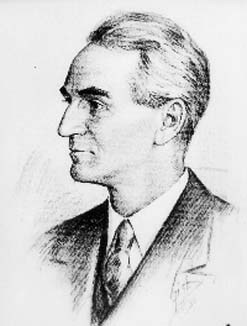
Hiram Gilmore "Harry" Bates III (October 9, 1900 – September 1981) was an American science fiction editor and writer. His short story "Farewell to the Master" (1940) was the basis of the well-known science fiction movie The Day the Earth Stood Still (1951). https://en.wikipedia.org/wiki/Harry\_B... see also under the following pen-names: Anthony Gilmore (with D.W. Hall) A.R. Holmes H.G. Winter (with D.W. Hall) Librarian Note: There is more than one author in the Goodreads database with this name.

James Benjamin Blish was an American author of fantasy and science fiction. Blish also wrote literary criticism of science fiction using the pen-name William Atheling Jr. In the late 1930's to the early 1940's, Blish was a member of the Futurians. Blish trained as a biologist at Rutgers and Columbia University, and spent 1942–1944 as a medical technician in the U.S. Army. After the war he became the science editor for the Pfizer pharmaceutical company. His first published story appeared in 1940, and his writing career progressed until he gave up his job to become a professional writer. He is credited with coining the term gas giant, in the story "Solar Plexus" as it appeared in the anthology Beyond Human Ken, edited by Judith Merril. (The story was originally published in 1941, but that version did not contain the term; Blish apparently added it in a rewrite done for the anthology, which was first published in 1952.) Blish was married to the literary agent Virginia Kidd from 1947 to 1963. From 1962 to 1968, he worked for the Tobacco Institute. Between 1967 and his death from lung cancer in 1975, Blish became the first author to write short story collections based upon the classic TV series Star Trek. In total, Blish wrote 11 volumes of short stories adapted from episodes of the 1960s TV series, as well as an original novel, Spock Must Die! in 1970 — the first original novel for adult readers based upon the series (since then hundreds more have been published). He died midway through writing Star Trek 12; his wife, J.A. Lawrence, completed the book, and later completed the adaptations in the volume Mudd's Angels. Blish lived in Milford, Pennsylvania at Arrowhead until the mid-1960s. In 1968, Blish emigrated to England, and lived in Oxford until his death in 1975. He is buried in Holywell Cemetery, Oxford, near the grave of Kenneth Grahame. His name in Greek is Τζέημς Μπλις"

"He was honored by fans with three Hugo awards and by colleagues with one Nebula award and was named the third Grand Master by the Science Fiction and Fantasy Writers of America (SFWA) in 1977." (Wikipedia) See http://en.wikipedia.org/wiki/Clifford...

T. L. Huchu (he/him) has been published previously (as Tendai Huchu ) in the adult market, but the Edinburgh Nights series is his genre fiction debut. His previous books (The Hairdresser of Harare and The Maestro, The Magistrate and the Mathematician) have been translated into multiple languages and his short fiction has won awards. Tendai grew up in Zimbabwe but has lived in Edinburgh for most of his adult life.

Alfred Elton van Vogt was a Canadian-born science fiction author regarded by some as one of the most popular and complex science fiction writers of the mid-twentieth century—the "Golden Age" of the genre. van Vogt was born to Russian Mennonite family. Until he was four years old, van Vogt and his family spoke only a dialect of Low German in the home. He began his writing career with 'true story' romances, but then moved to writing science fiction, a field he identified with. His first story was Black Destroyer, that appeared as the front cover story for the July 1939 edtion of the popular "Astounding Science Fiction" magazine.

Mjke was born on the Isle of Man and now lives in the Wirral, UK. He began writing in his late twenties, then but took a break in order to concentrate on accountancy exams. He returned to writing in 2007, and became the first winner of the Jim Baen Memorial Writing competition. He followed on from that success by winning the L Ron Hubbard Writers of the Future Competition. His Science Fiction and Fantasy short stories have appeared in many print and online venues. He is an active member of SFWA, the Science Fiction and Fantasy Writers of America, as well as the British Science Fiction Association (BSFA) and the British Fantasy Society (BFS). Mjke has worked as a Shop Assistant, a Bus Scheduler and a Finance Manager. He plays alto saxophone and clarinet in several Big Bands and can often be found working in pit orchestras around Merseyside and North Wales. Several of his Fantasy and Science Fiction stories have featured public transport, accountants, and musicians. Mjke also writes sofa travel, for which he uses the more conventional name, Mike Wood.


Dr Harry Norman Turtledove is an American novelist, who has produced a sizeable number of works in several genres including alternate history, historical fiction, fantasy and science fiction. Harry Turtledove attended UCLA, where he received a Ph.D. in Byzantine history in 1977. Turtledove has been dubbed "The Master of Alternate History". Within this genre he is known both for creating original scenarios: such as survival of the Byzantine Empire; an alien invasion in the middle of the World War II; and for giving a fresh and original treatment to themes previously dealt with by other authors, such as the victory of the South in the American Civil War; and of Nazi Germany in the Second World War. His novels have been credited with bringing alternate history into the mainstream. His style of alternate history has a strong military theme.

Theodore Sturgeon (1918–1985) is considered one of the godfathers of contemporary science fiction and dark fantasy. The author of numerous acclaimed short stories and novels, among them the classics More Than Human, Venus Plus X, and To Marry Medusa, Sturgeon also wrote for television and holds among his credits two episodes of the original 1960s Star Trek series, for which he created the Vulcan mating ritual and the expression “Live long and prosper.” He is also credited as the inspiration for Kurt Vonnegut’s recurring fictional character Kilgore Trout. Sturgeon is the recipient of the Hugo Award, the Nebula Award, and the International Fantasy Award. In 2000, he was posthumously honored with a World Fantasy Award for Life Achievement.













